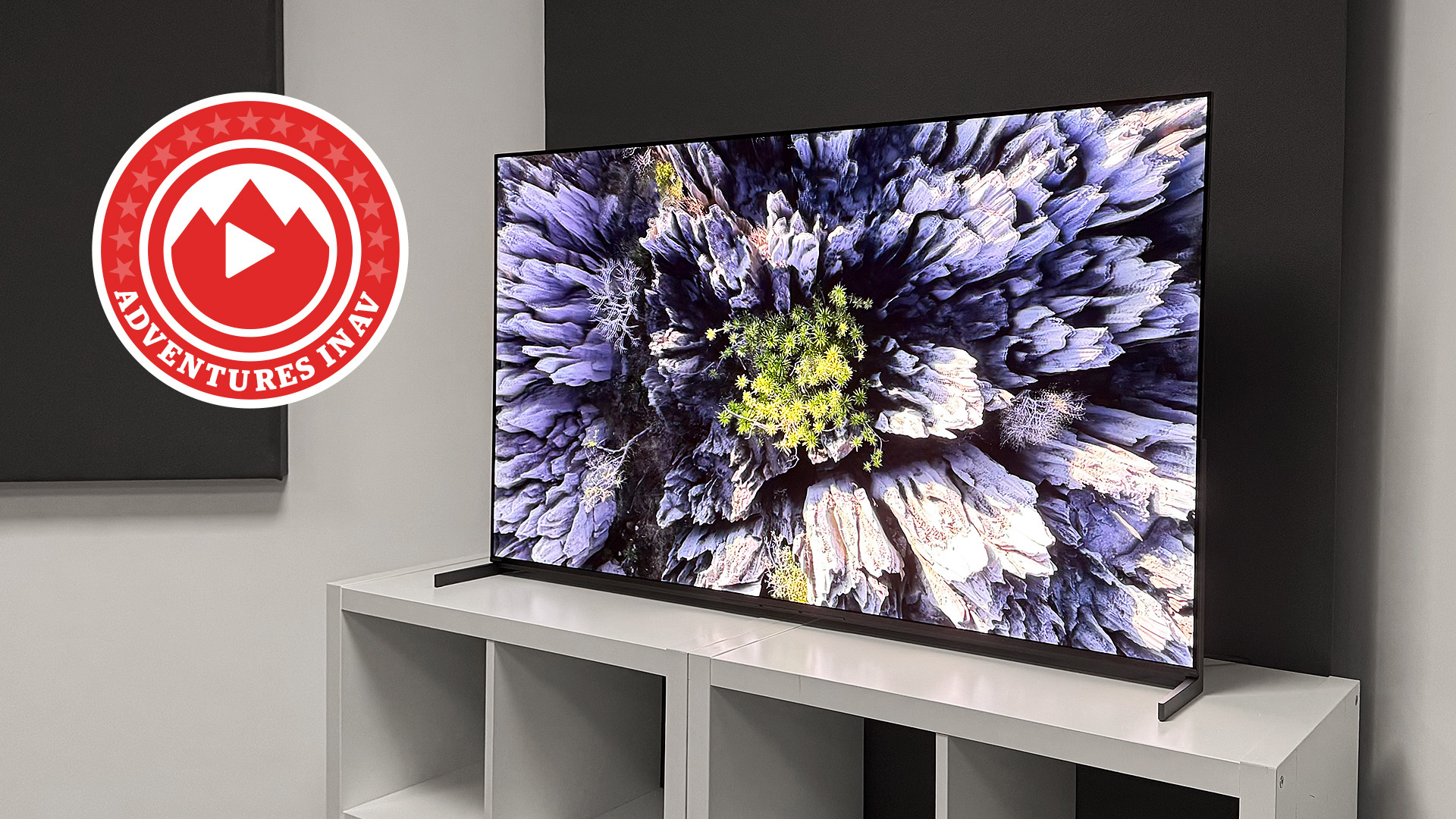Best headphones with a mic 2025: top options for music and calls tested
Headphones that deliver excellent audio for phone and video calls
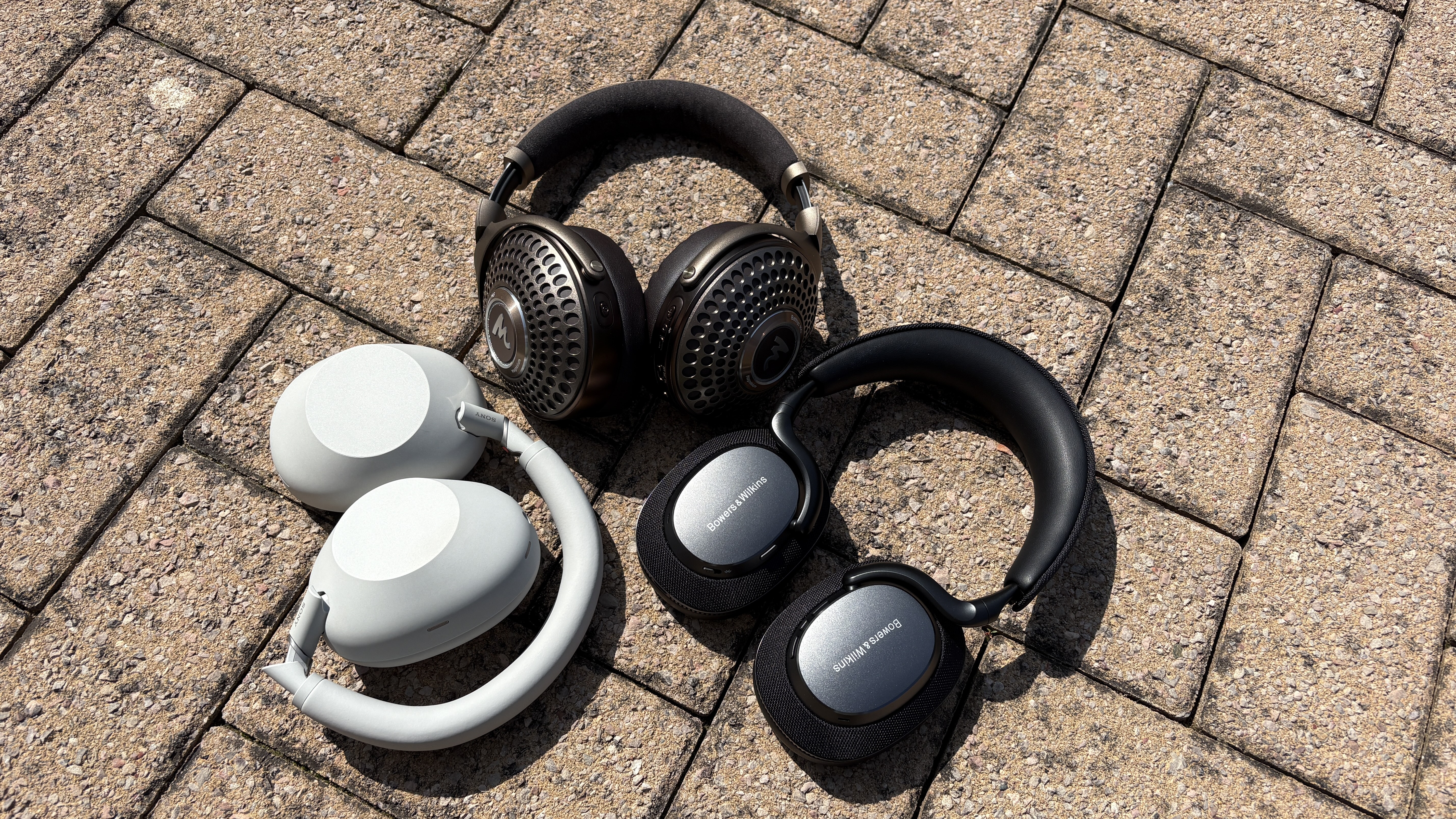
We expect a lot from our headphones these days. Not only do they have to sound good, but we also want them to work as functioning headsets to take and make calls on.
And having tested more headphones and earbuds than we care to count over the near half century we’ve existed, trust us when we say, finding a set that can do both is very difficult. Which is why we constantly update this page with the best headphones with a mic we’ve tested and know will deliver the goods for both purposes.
Every set on this list has been thoroughly tested to make sure it can deliver good enough audio to delight serious music fans, but also offer solid enough mic performance to let you take and make calls, even in demanding outdoor conditions.
If that’s not enough to assure you, then you can find out more about how we test headphones with a mic at the bottom of this page.
If you don’t find a set that quite ticks all the boxes make sure to also check out our main best headphones and best wireless earbuds guides.
The quick list
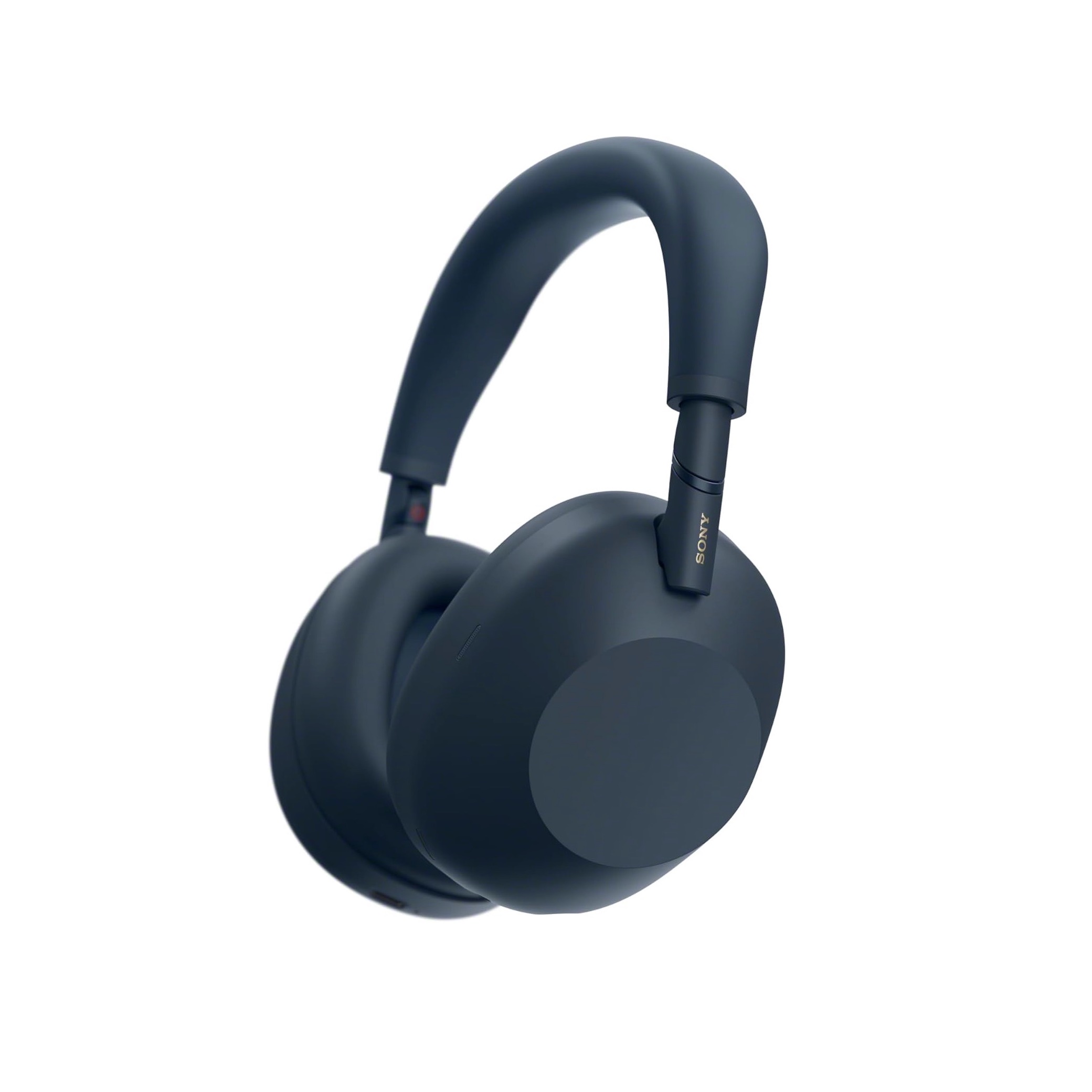
The best over-ears
The WH-1000XM6 aren’t just the best over-ear headphones with a mic for making calls, they’re also brilliant all round performers. As well as crystal clear call quality they offer a comfortable fit, wonderfully detailed audio, reliable ANC and lengthy battery life.
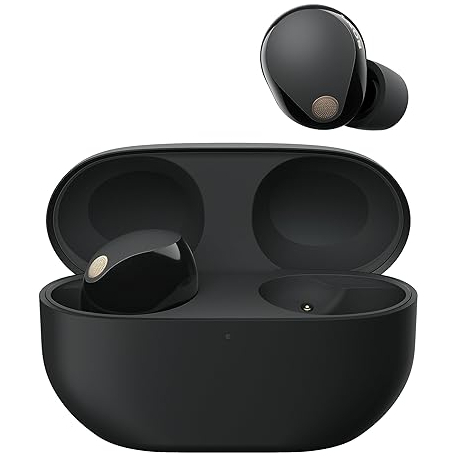
Best earbuds
The WF-1000XM5 are the best wireless earbuds we currently recommend to most people. As well as excellent mic quality, they deliver great audio and reliable ANC making them a great choice for any buyer with cash to burn.
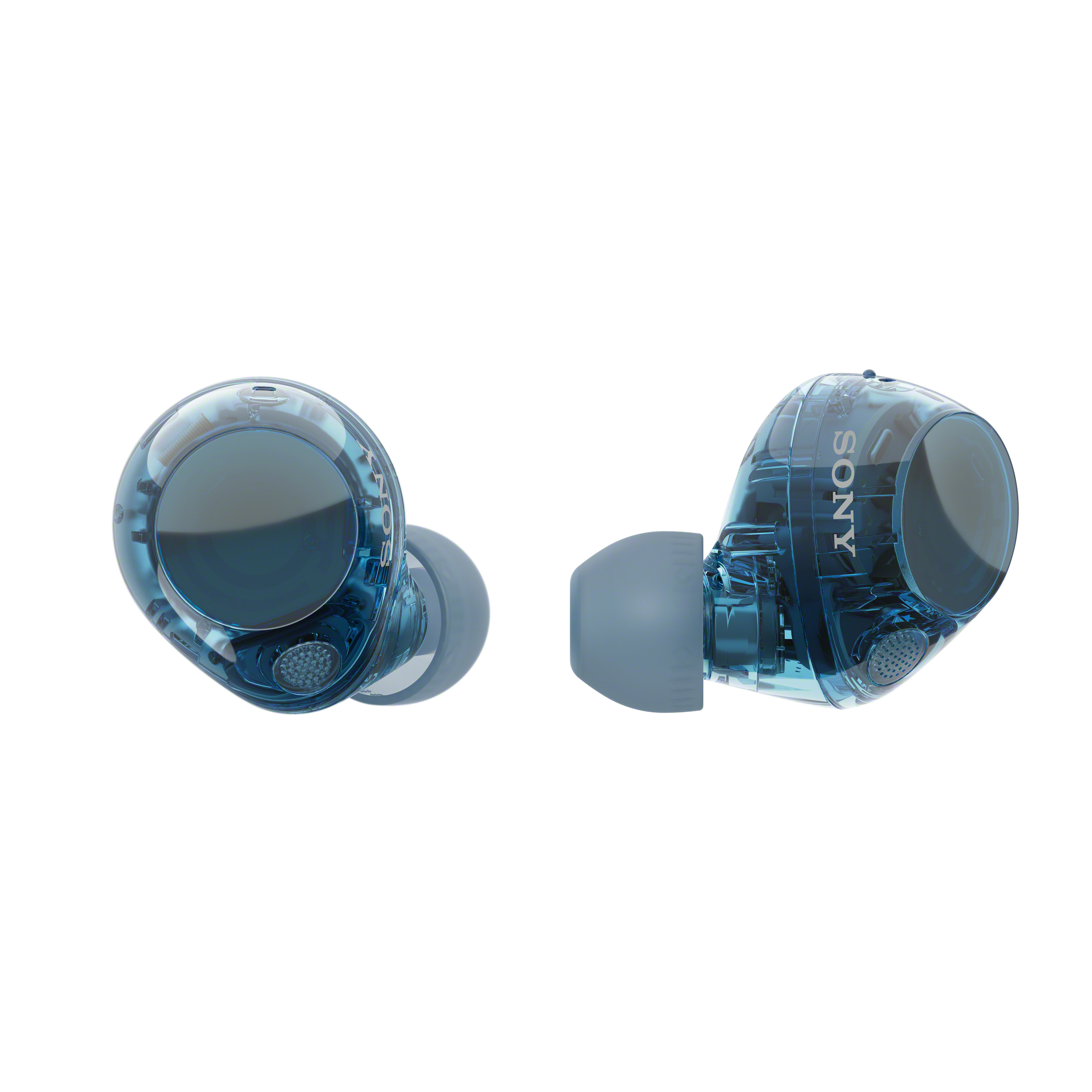
The best cheap
The Sony WF-C710 are the best cheap earbuds available offering the best call, audio and ANC performance you will find at their price.
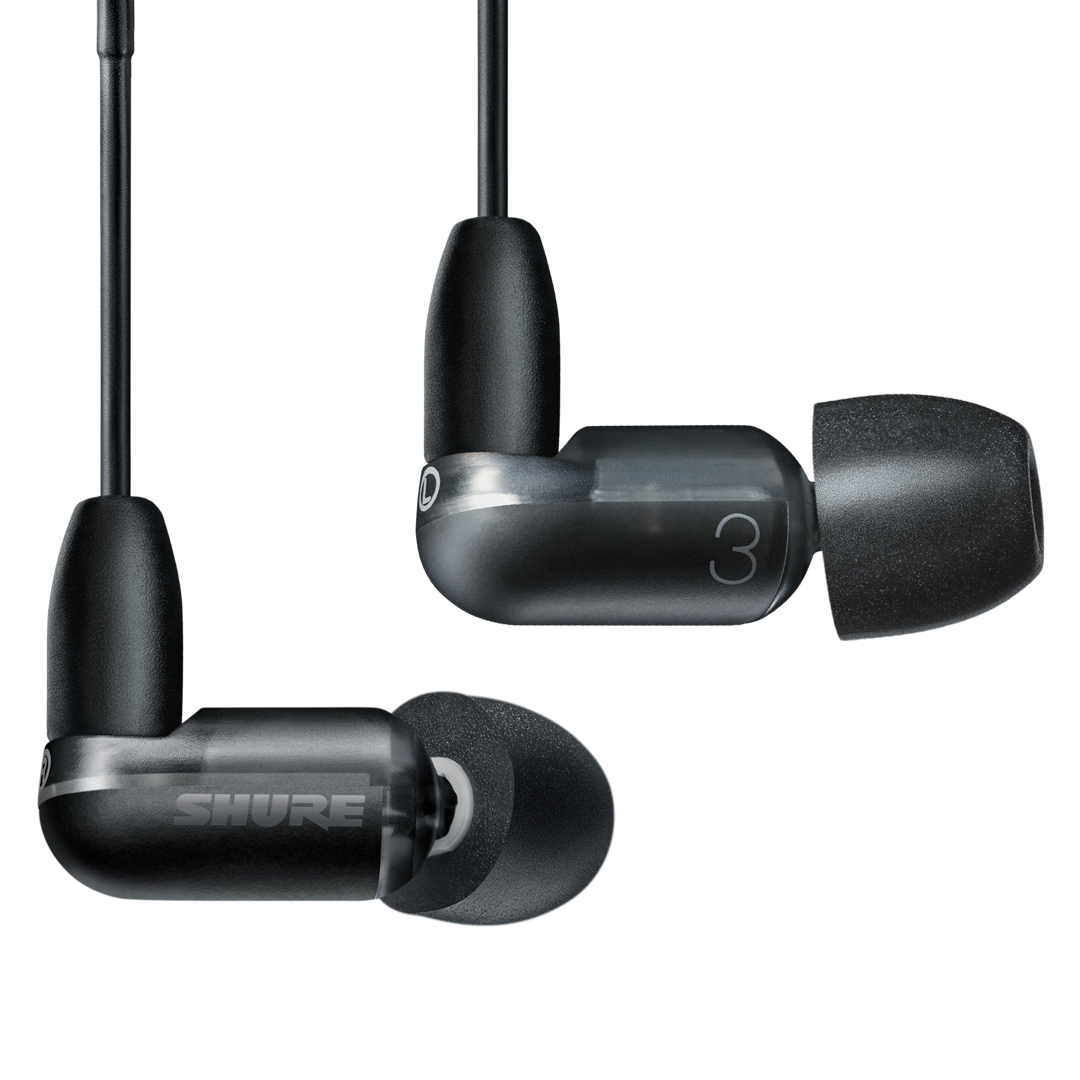
The best wired
If you're old school and want a wired pair of headphones with a decent mic, then the Shure Aonic 3 are the ones to get, based on our checks. In our tests, they deliver a reliable call-ready seal as well as excellent mic and audio quality.
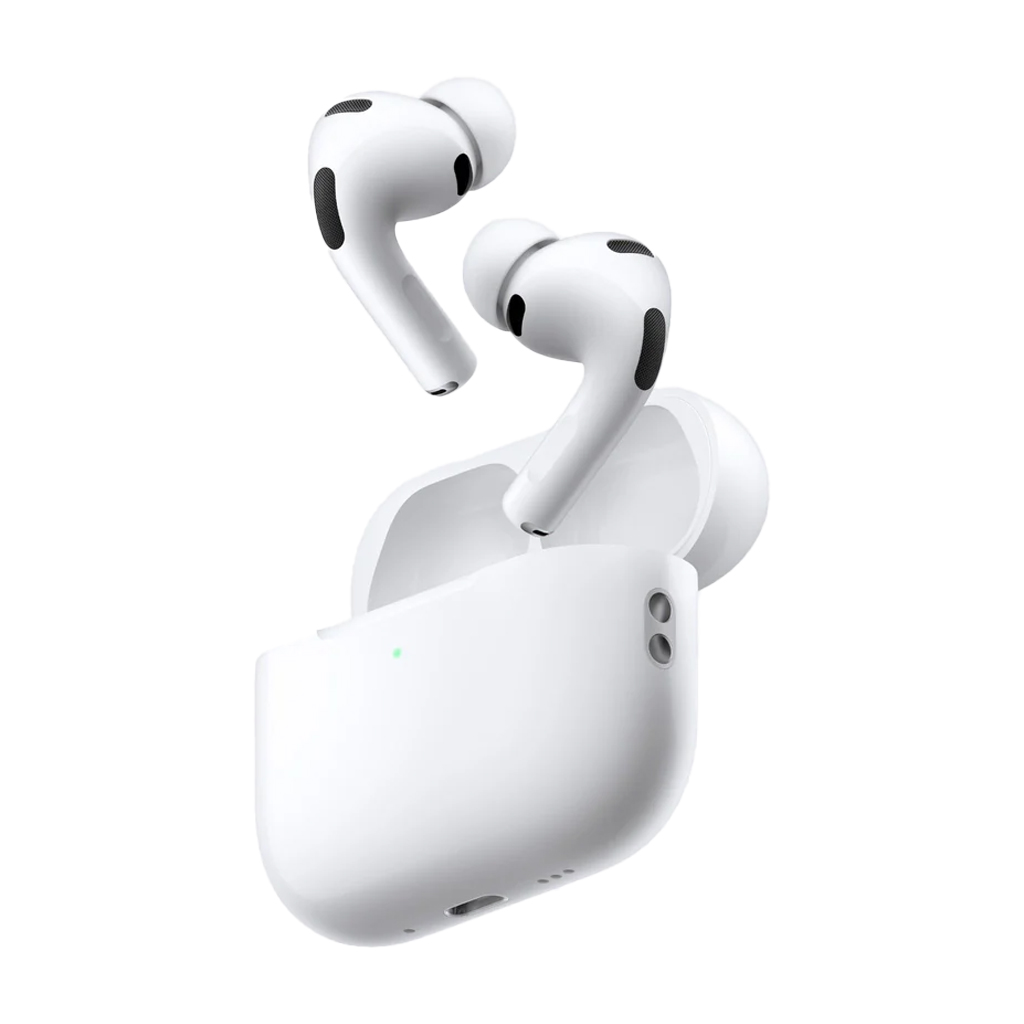
The best Apple earbuds
If you have an iPhone and want an in-ear set of wireless earbuds with a decent mic then the Airpods Pro 3 is the set to get. During our checks, they provided great call quality, which coupled with their excellent ANC made them great for any buyer after a pair of true-wireless for chatting and listening to music on the go.
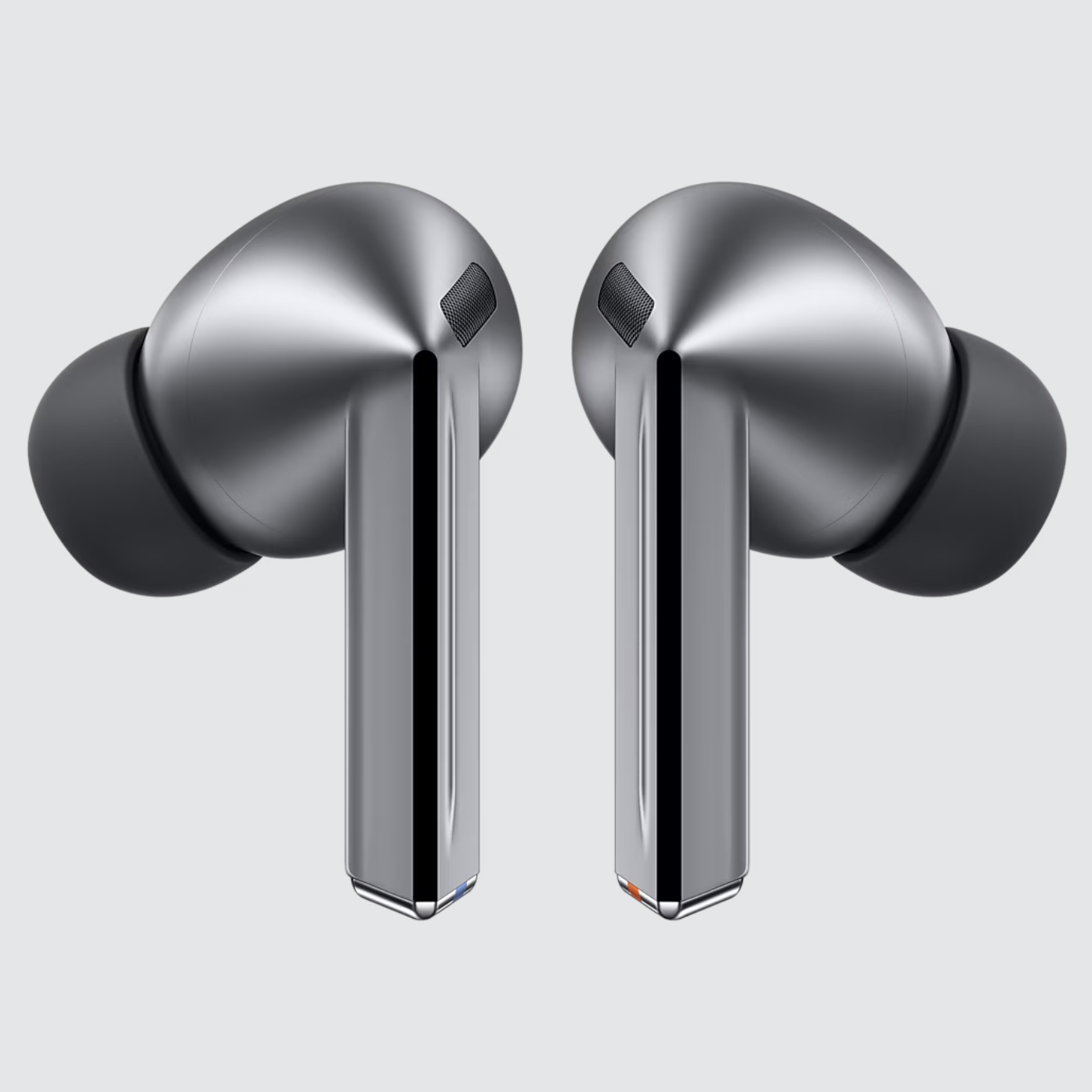
Best for Samsung phone owners
The Galaxy Buds 3 Pro are the best earbuds for Samsung phone owners. They feature a wealth of custom features, including access to a hi-res, Samsung-exclusive wireless codec, solid audio quality and reliable ANC. But most importantly for this list, they are also great for taking and making calls on.
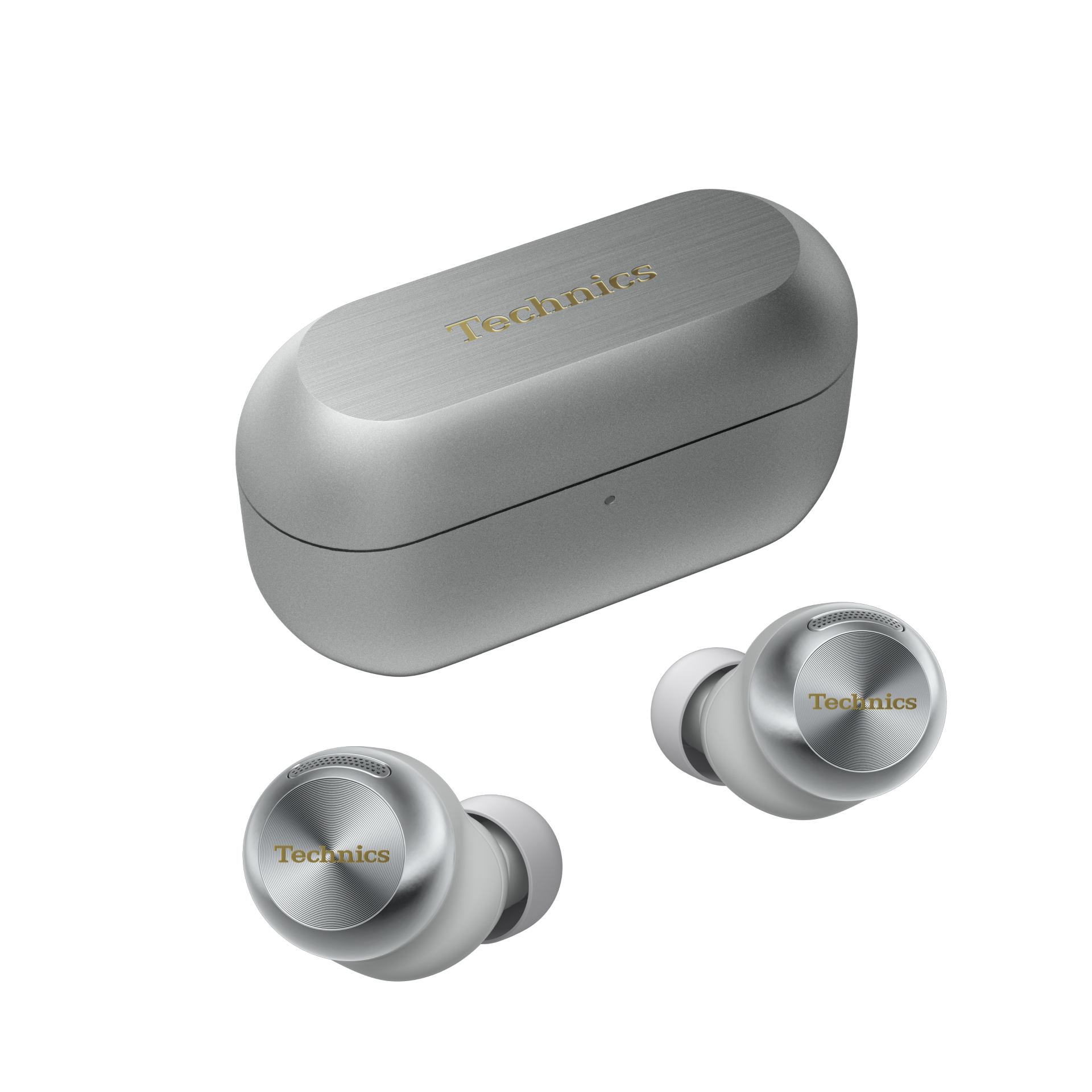
Best for ANC
The Technics EAH-AZ100 are the best earbuds we've tested for call and ANC quality. Add to this stellar audio and they're an easy recommendation.Technics EAH-AZ100

I’ve been a tech journalist covering the headphones beat for 17 years. As the guiding hand overseeing this best headphones with a mic list, I liaise with our team of reviewers to help identify the best options we’ve tried and tested. Every set on this list has had its call quality checked by multiple people to ensure it is the best of the best.
16th January 2026: Sony WH-1000XM6, Apple AirPods Pro 3 and Technics EAH-AZ100 added to reflect our latest testing and buying advice.
The best headphones with a mic we recommend in 2025
Why you can trust What Hi-Fi?
Best over-ears
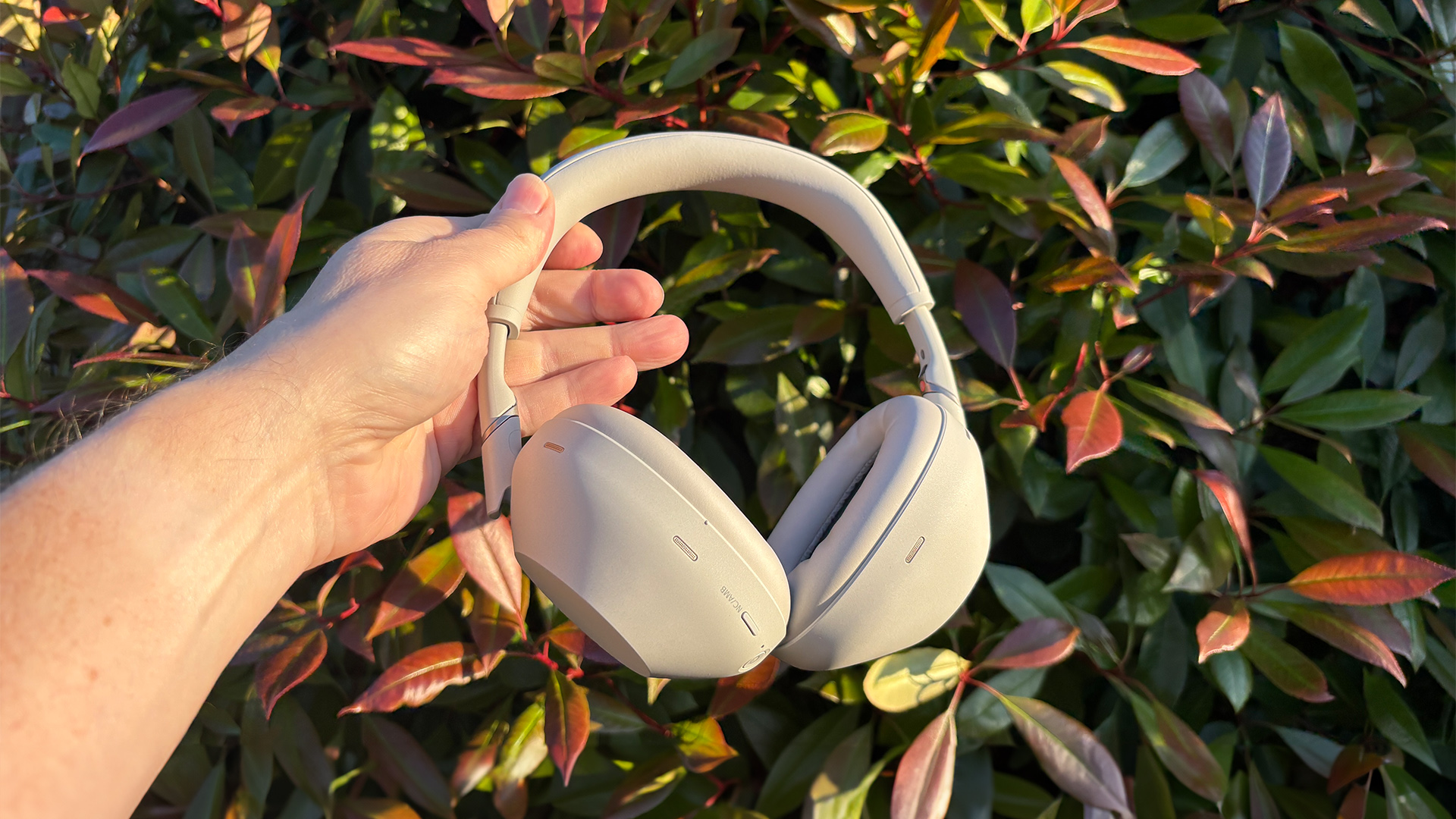
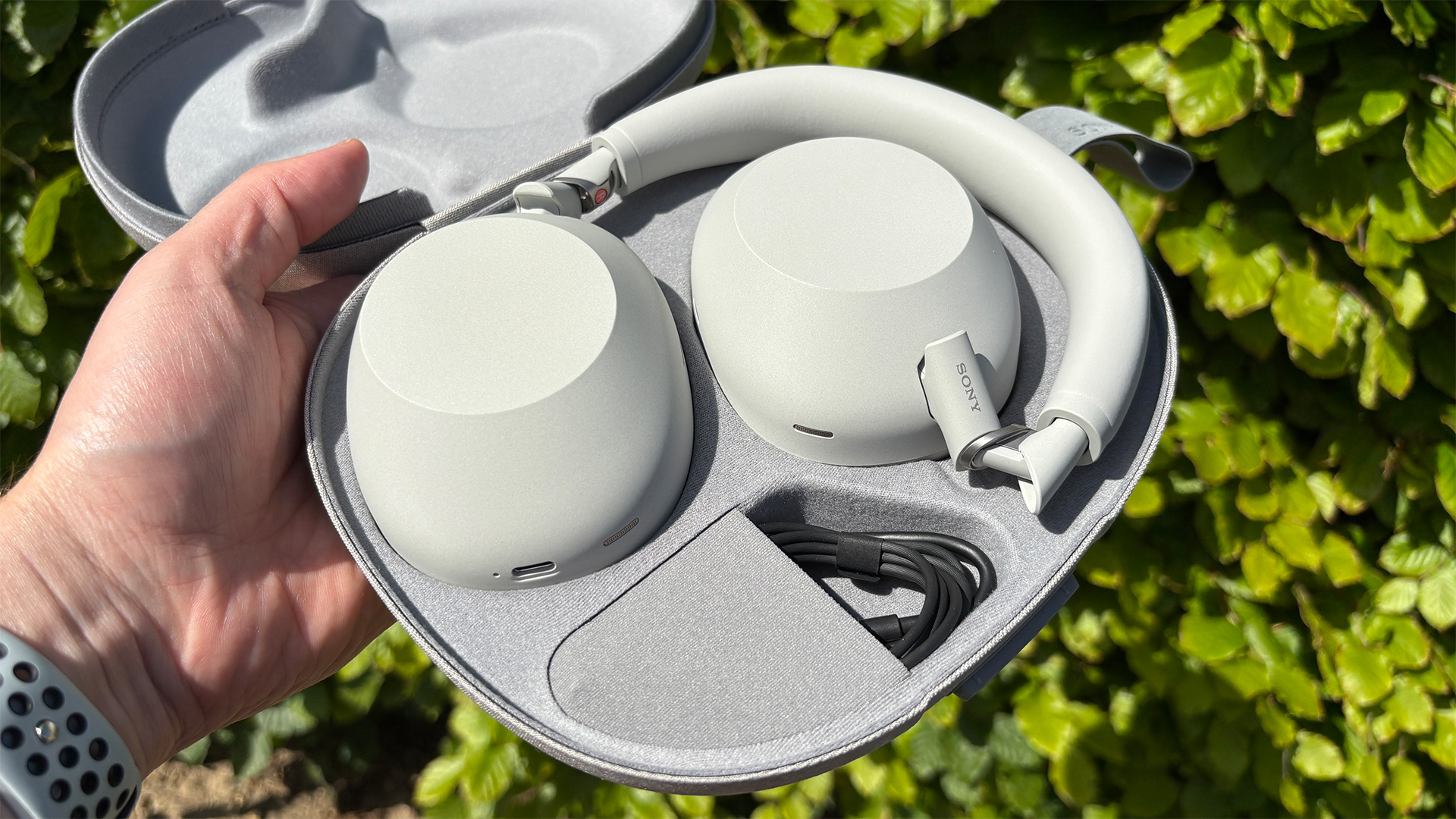
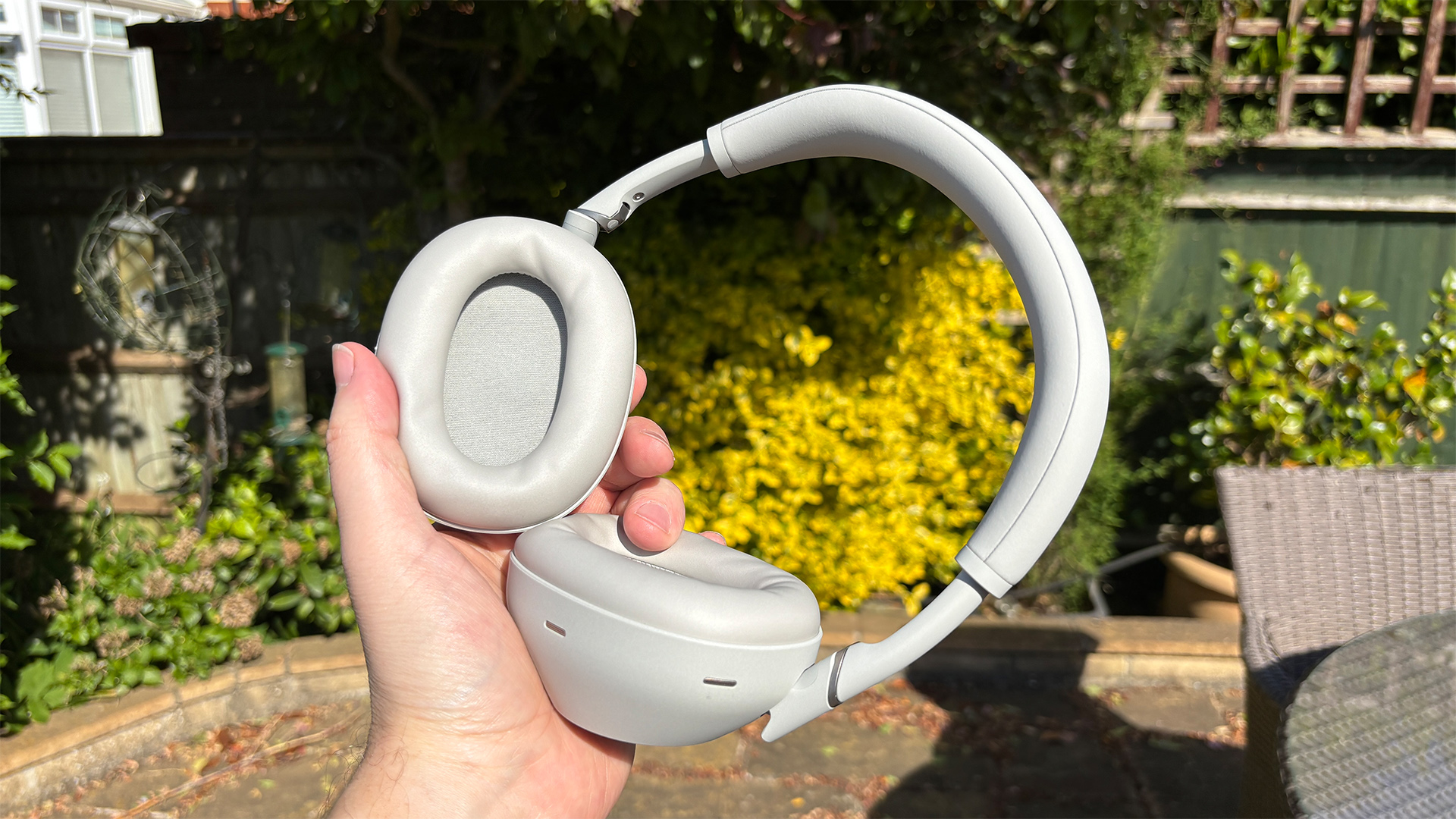
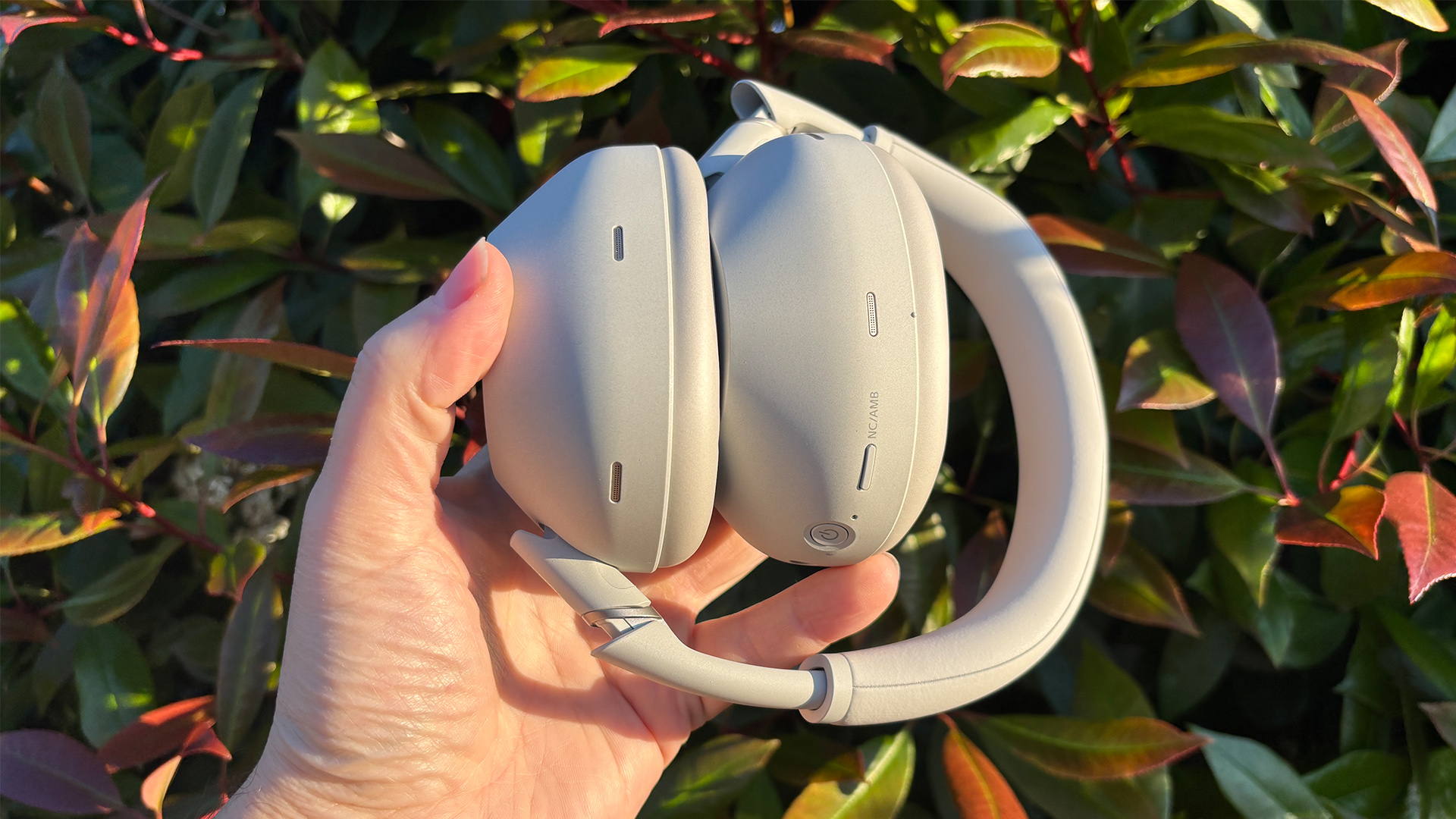
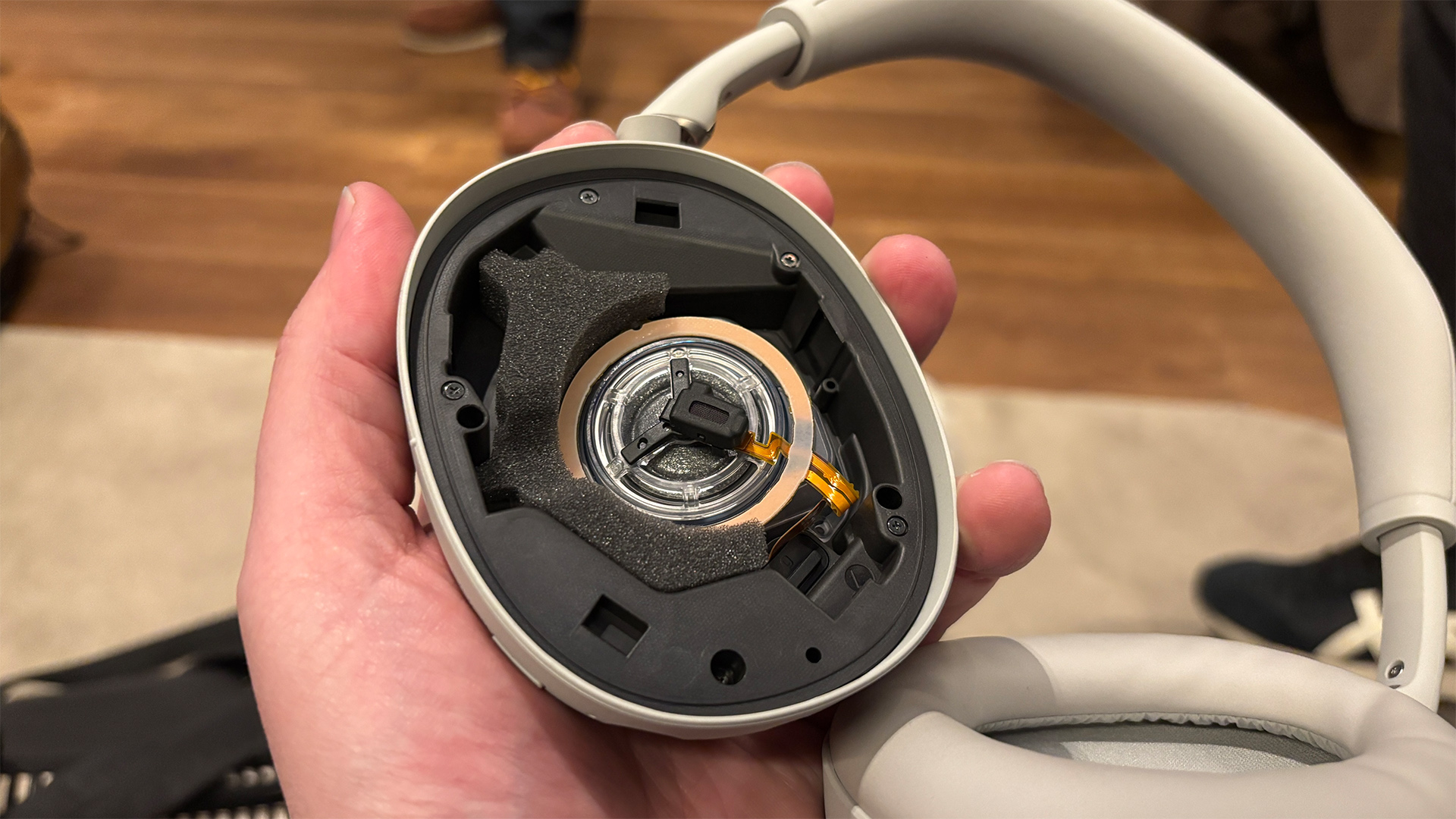
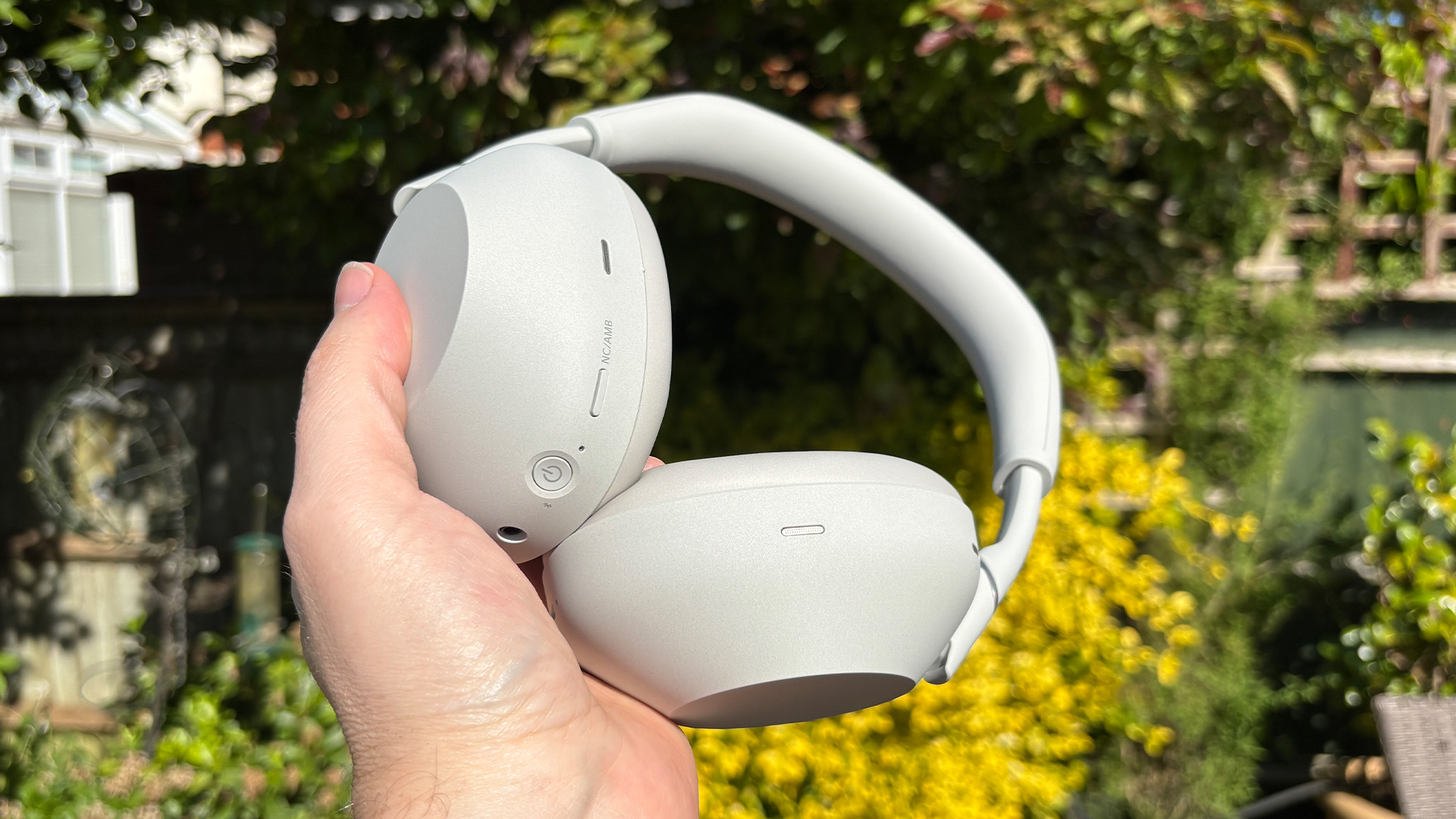
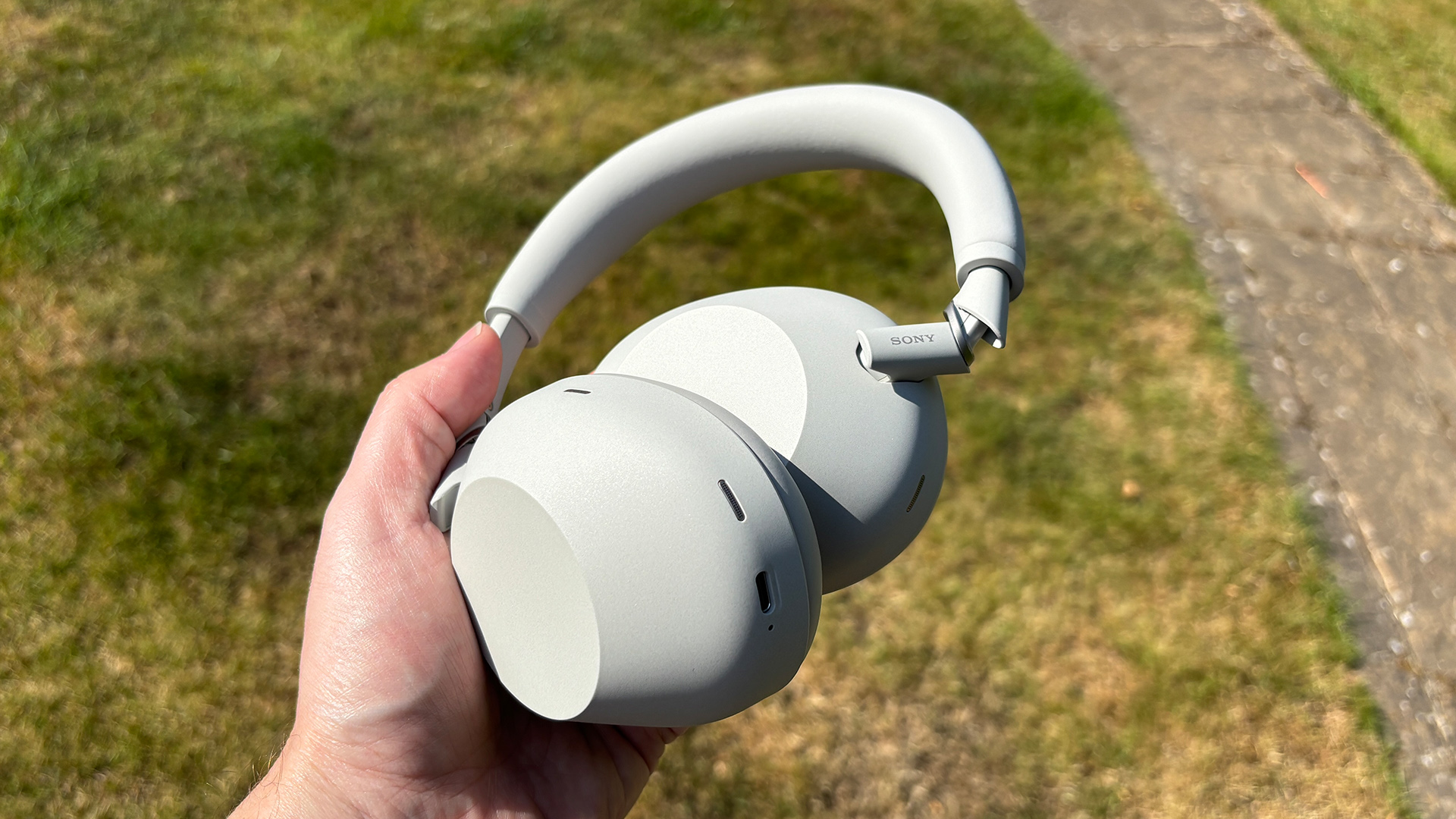
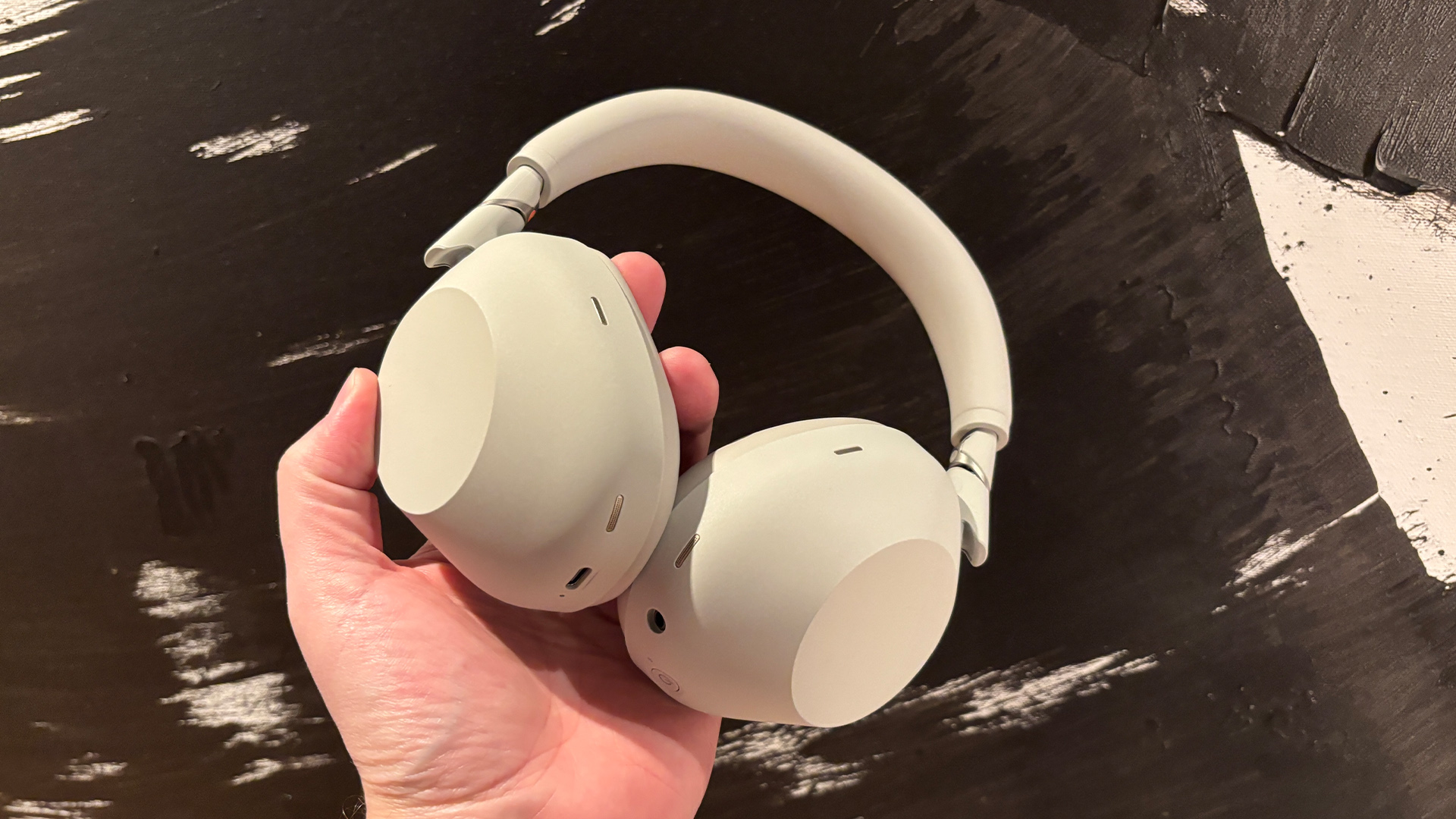
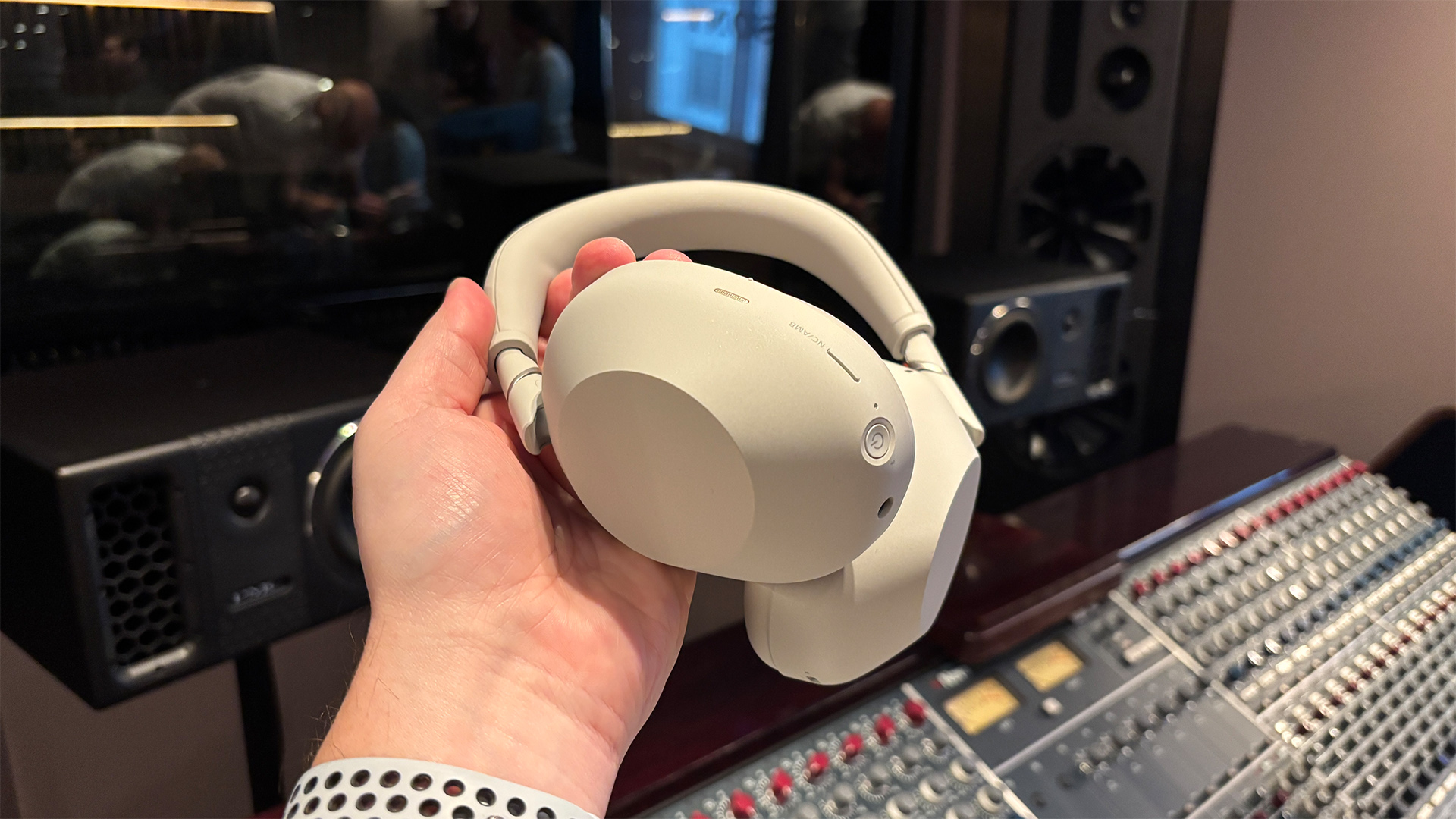
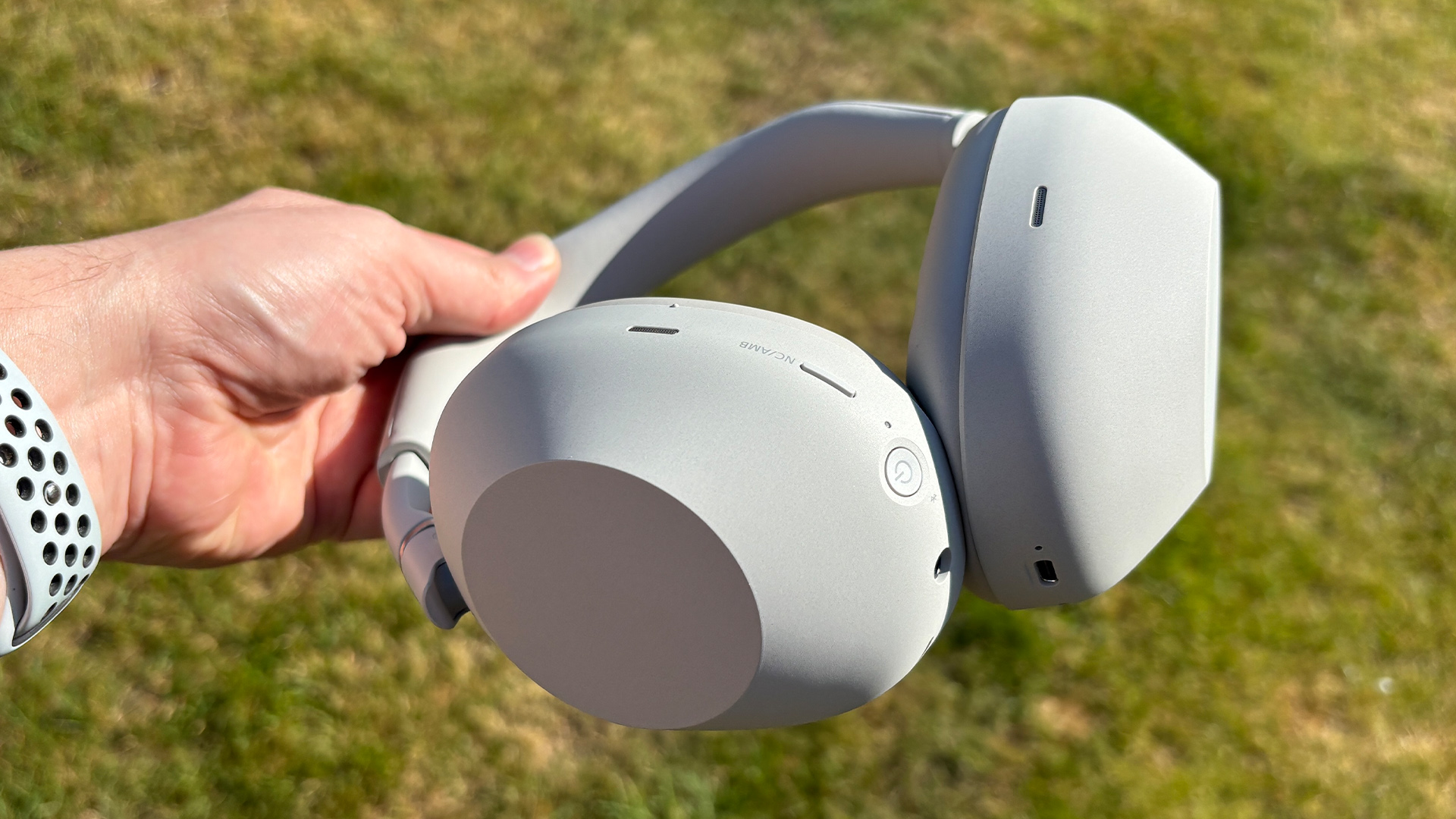
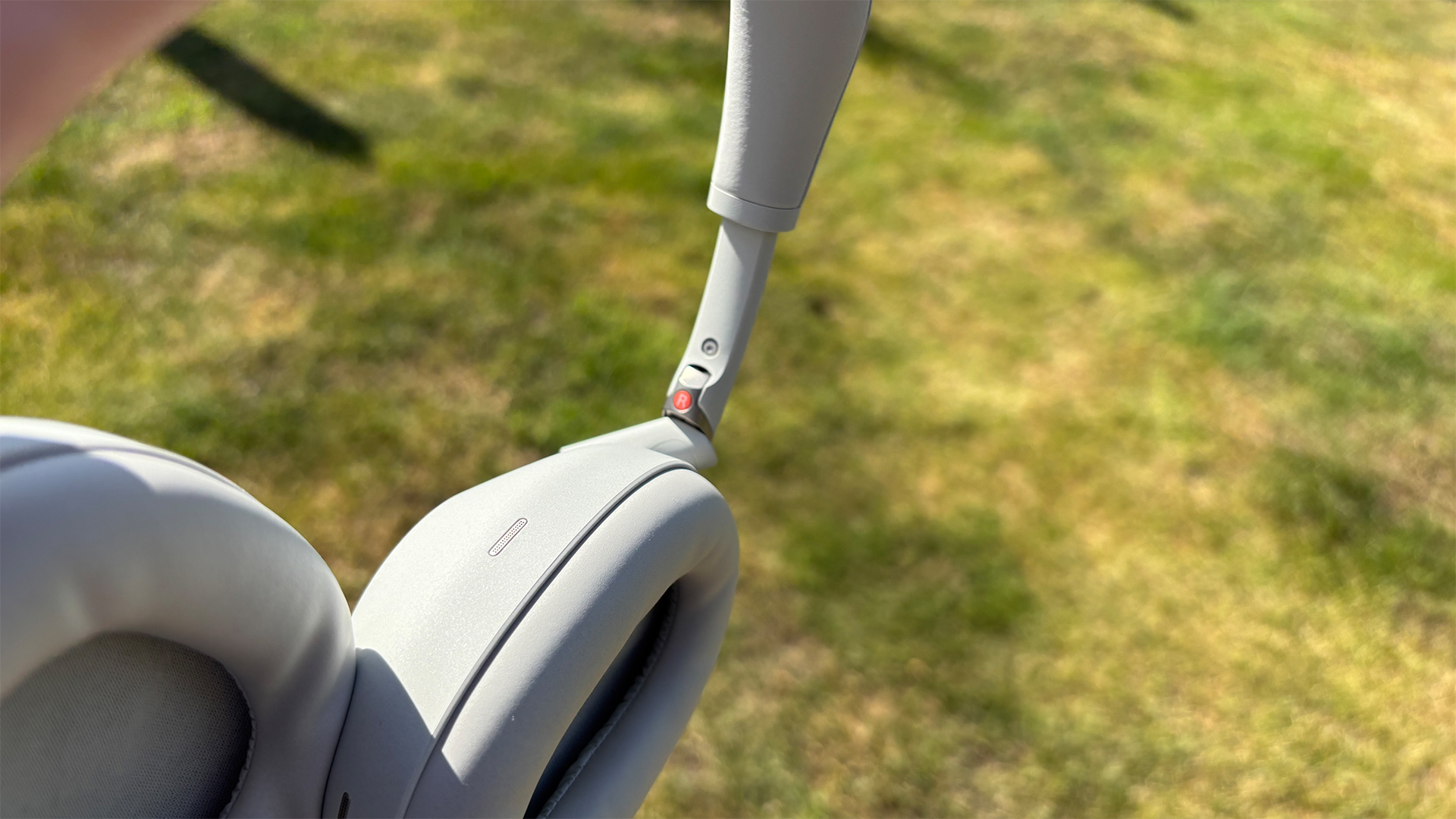
Specifications
Reasons to buy
Reasons to avoid
The WH-1000XM6 are Sony’s latest flagship over-ear, wireless headphones. As well as being a 2025 What Hi-Fi? Award winner, they’re also the best option if you want a pair of great-sounding cans capable of delivering decent call quality.
The headphones are completely different to their predecessors, featuring a new folding design, different drivers and a wealth of new hardware. These all work together to boost everything from audio to call quality. And when we ran the two models head-to-head, we’re pleased to report Sony’s work has paid off.
From a call quality perspective, the biggest change is the fact that the XM6 has 12, rather than eight, microphones. The setup places six on each earcup; four spaced around the outer edge and two inside, beneath the removable ear pads.
As an added perk, the outer microphones are now covered by a mesh that has been bespoke designed to reduce wind noise.
During testing the design, plus the integration of improved beamforming AI to help remove external noise and concentrate audio on your voice, yielded the best results we’ve experienced on a pair of over-ear headphones.
This, plus their stellar audio quality, reliable ANC and solid battery life, make them the best option for music fans looking for an over-ear set to take calls, as well as listen to music on.
As we said in our XM6 review:
“During testing, we find noise more or less completely cut out of the conversation, leaving our voice isolated with a quiet background. The person on the other end of the line has no trouble hearing what we say, even when there was some wind and traffic noise to contend with.
“It’s a solid step up from the WH-1000XM5 and a bigger step up from close rivals like the Bose QuietComfort Ultra Headphones, Bowers & Wilkins Px7 S3, and even the more expensive AirPods Max can’t compete with the Sonys.”
Read the full Sony WH-1000XM6 review
Best earbuds
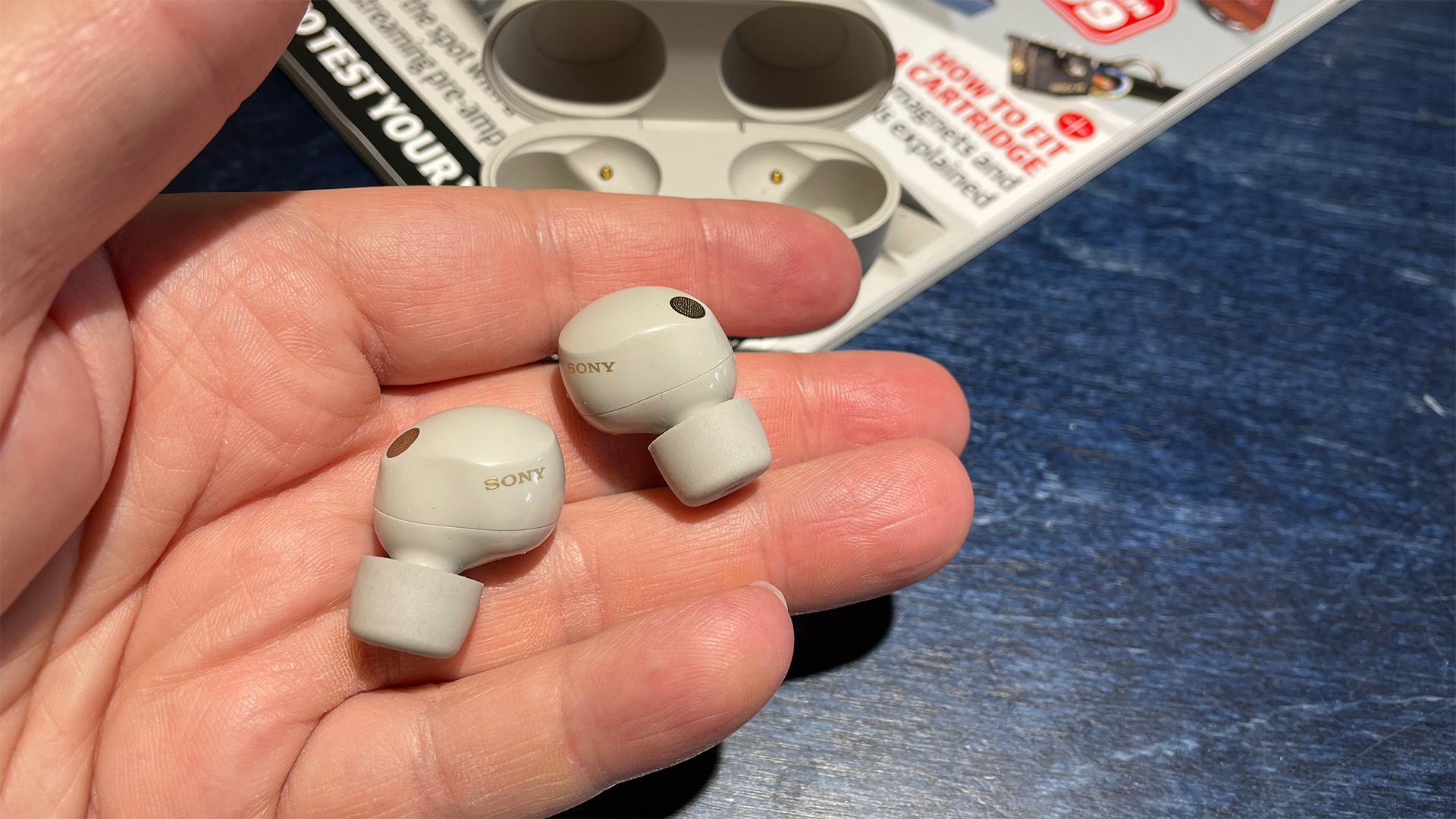
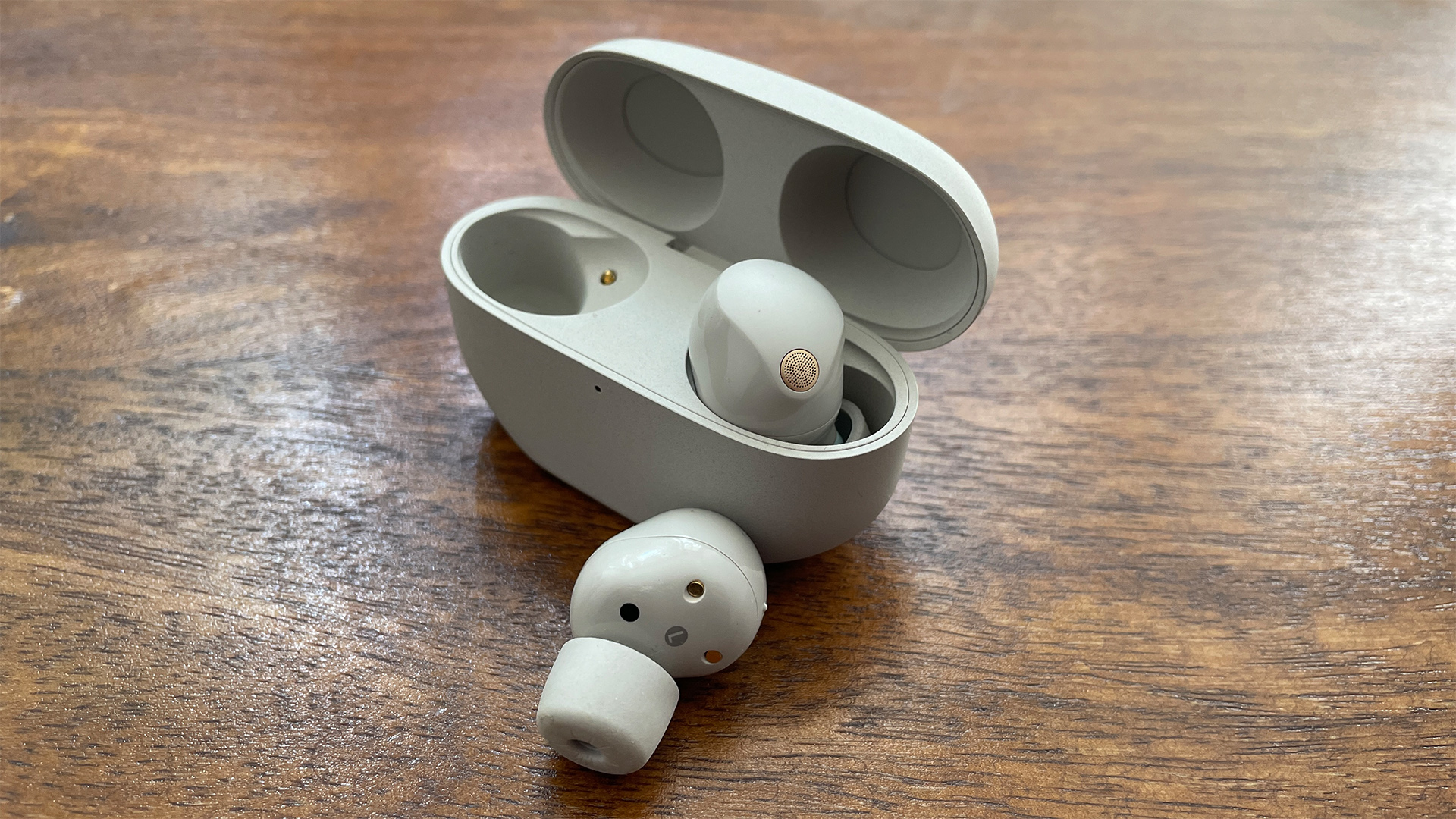
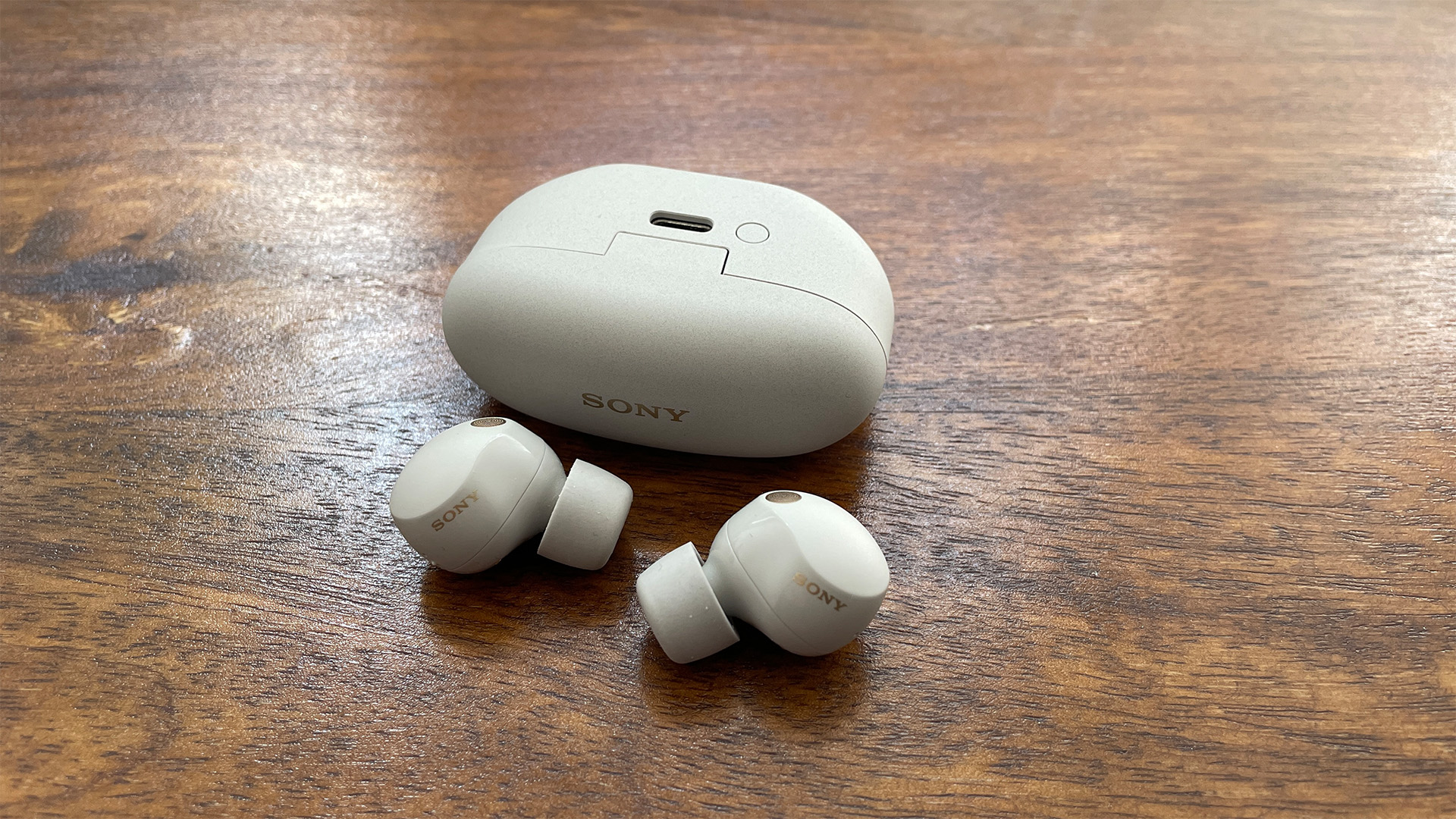
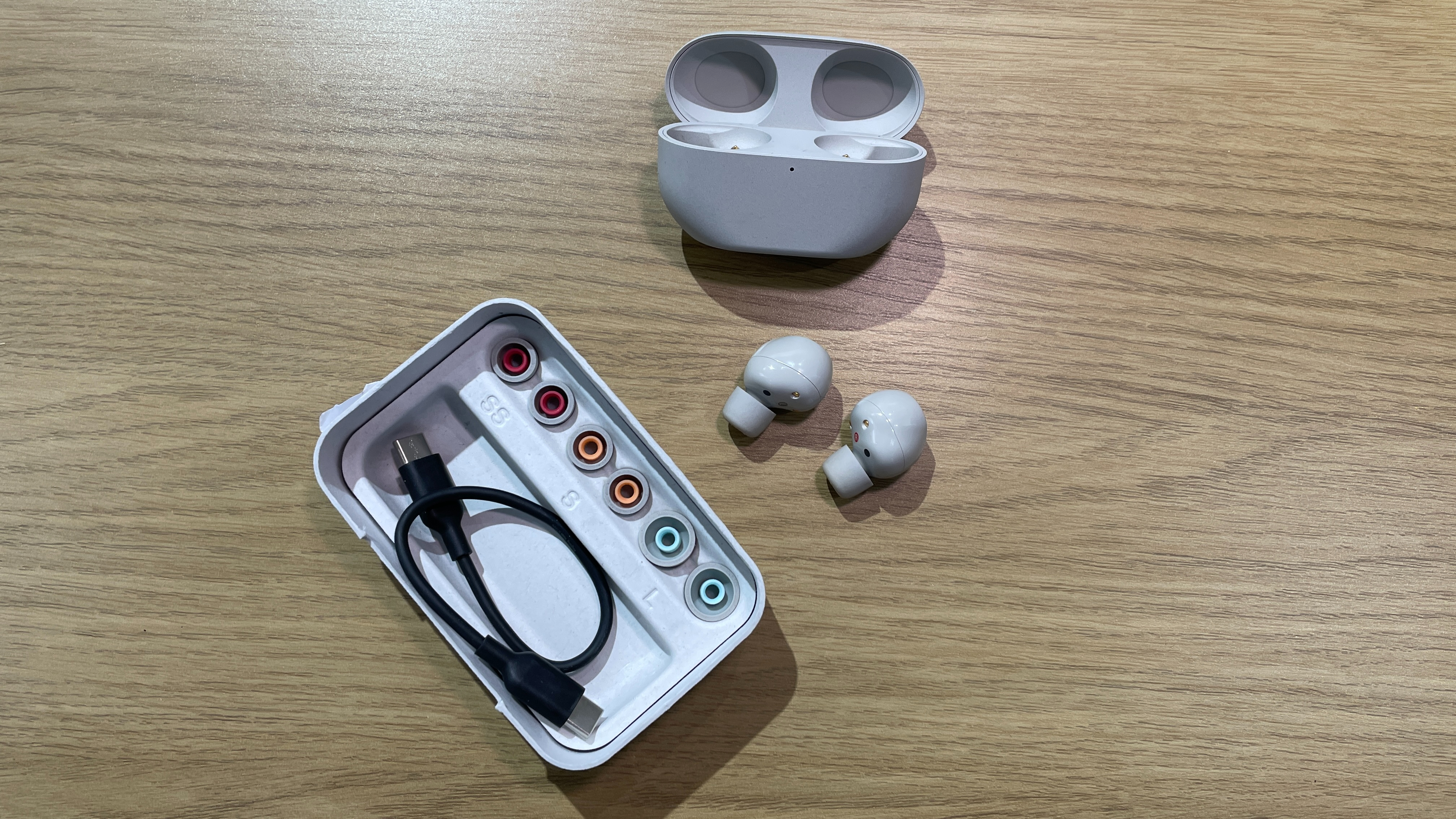

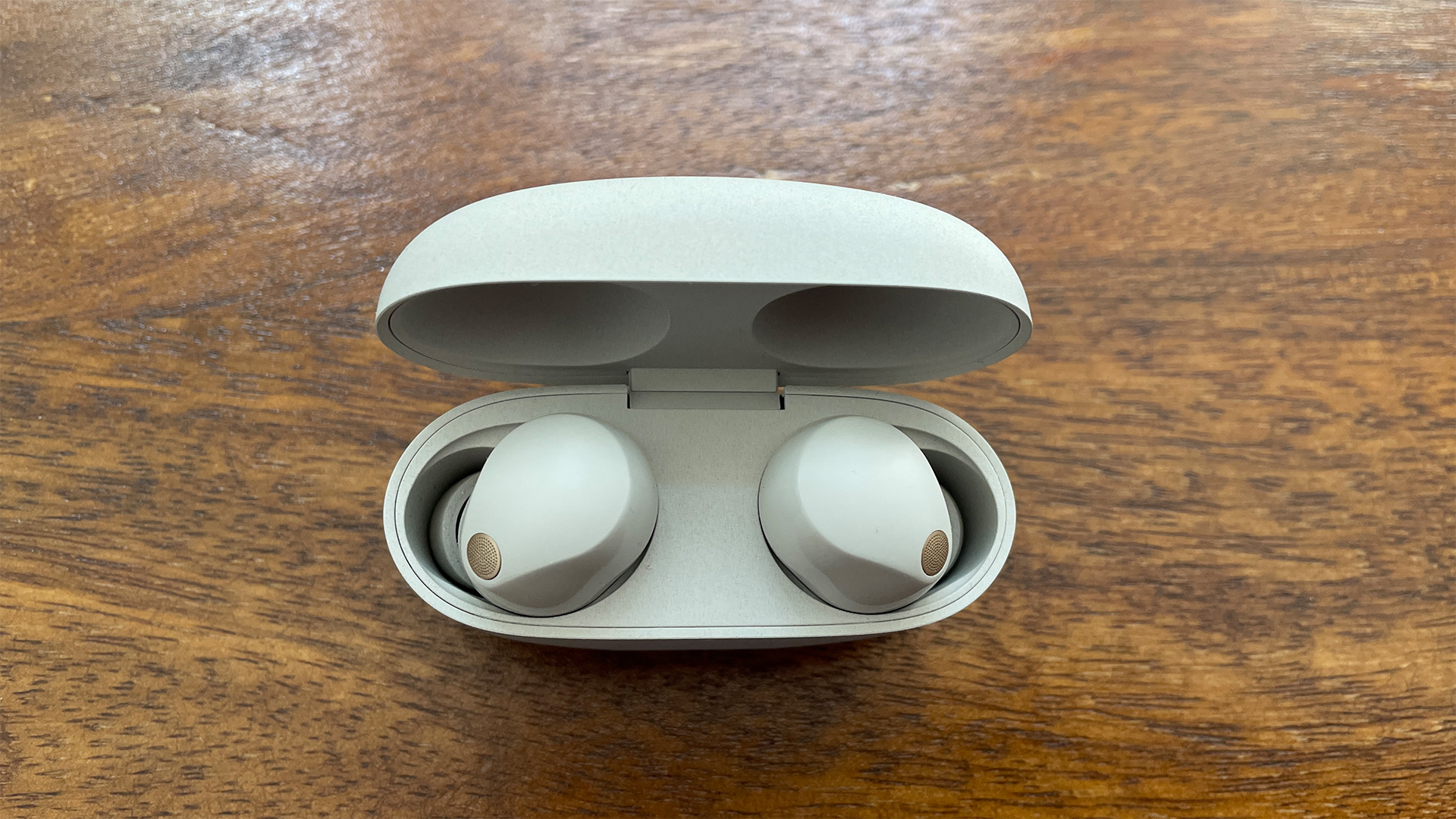
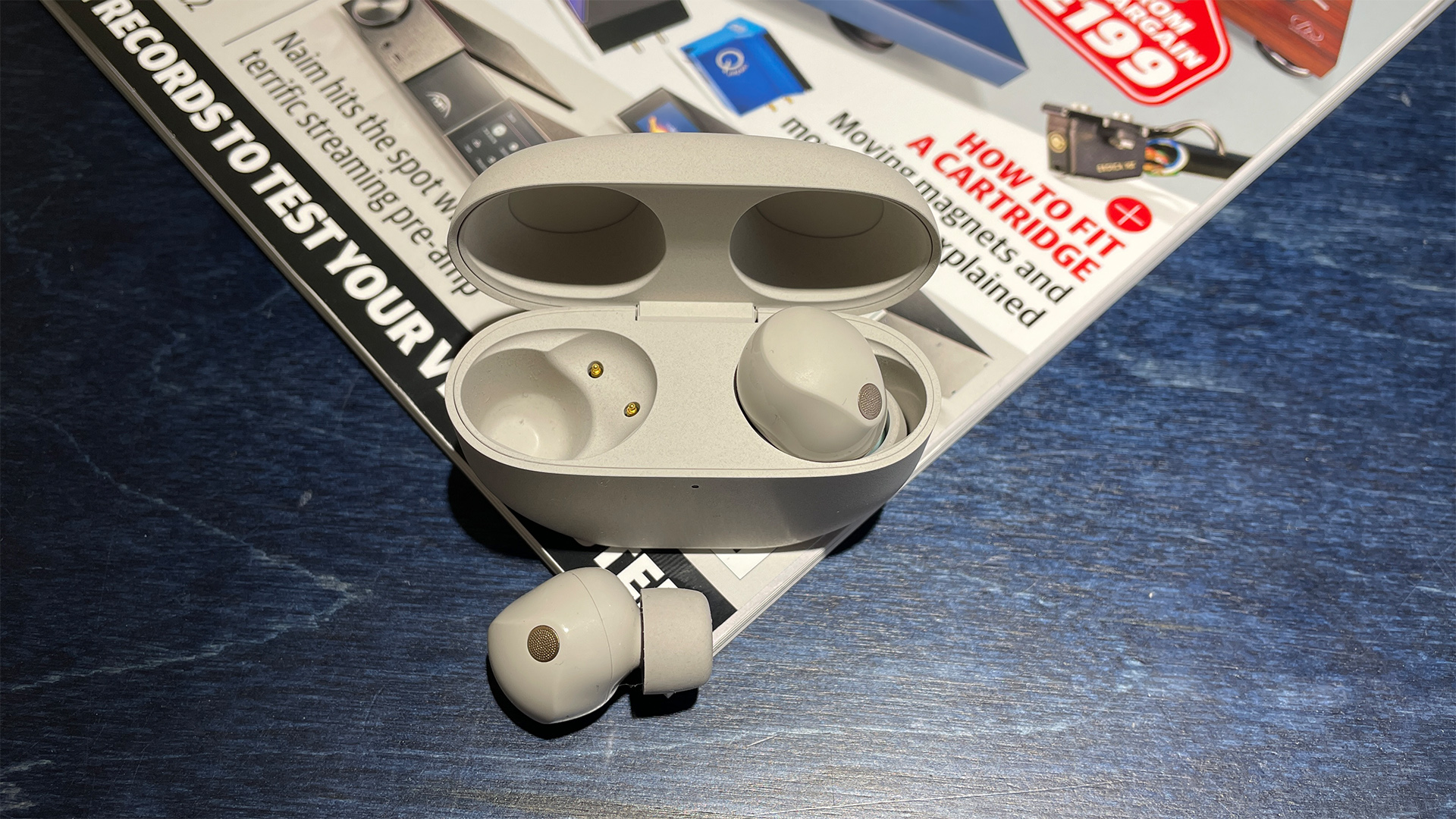
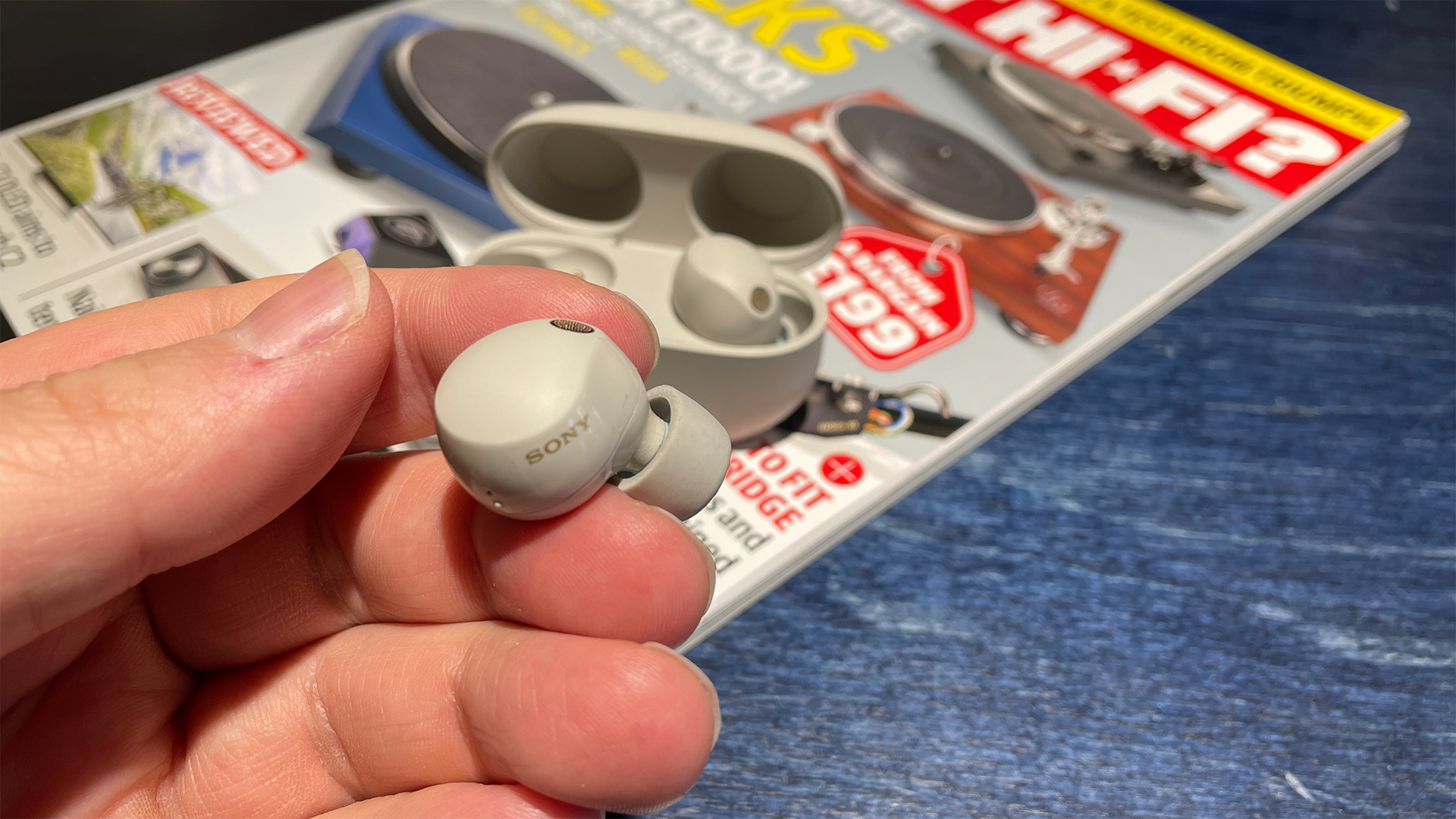
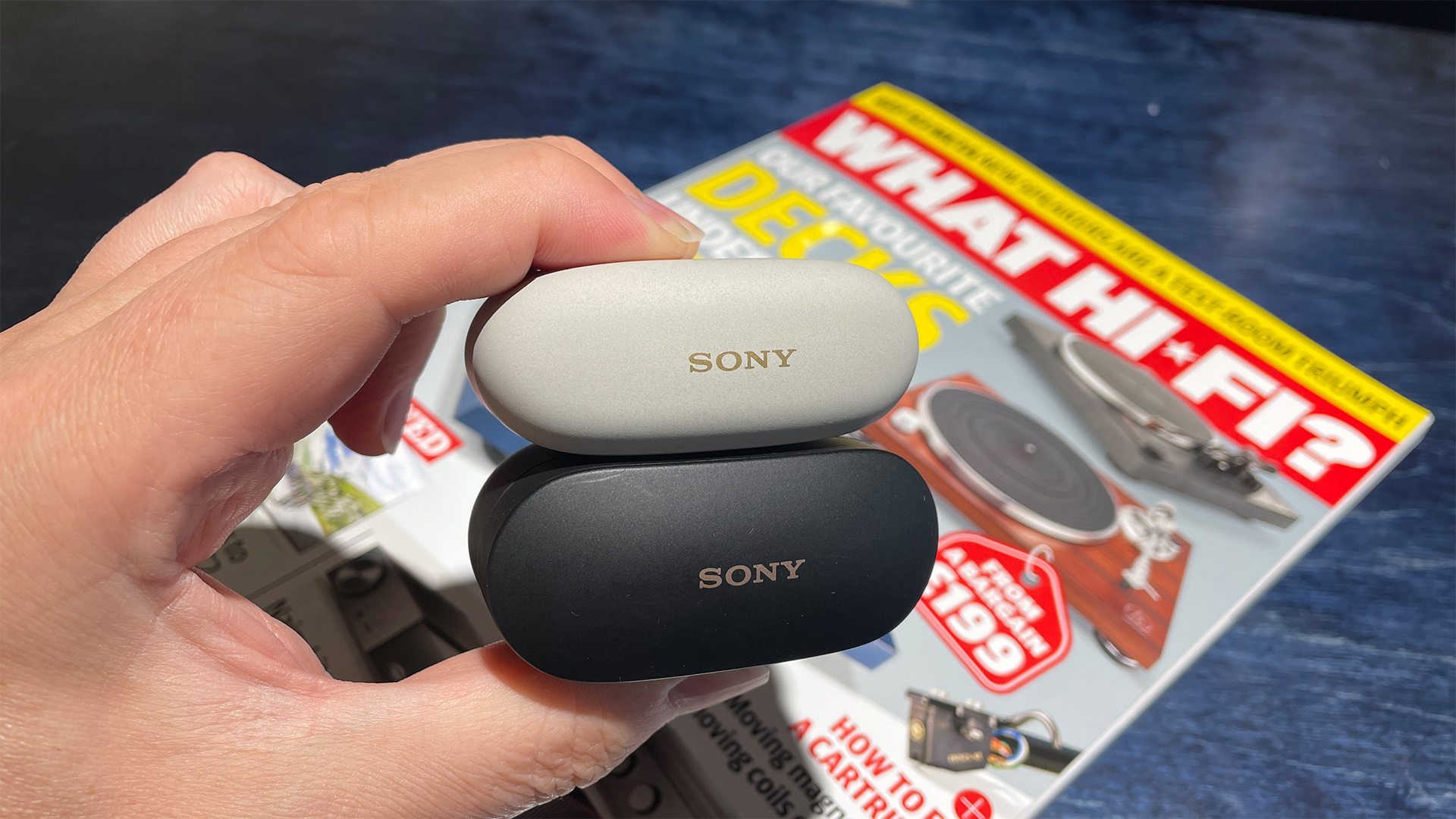
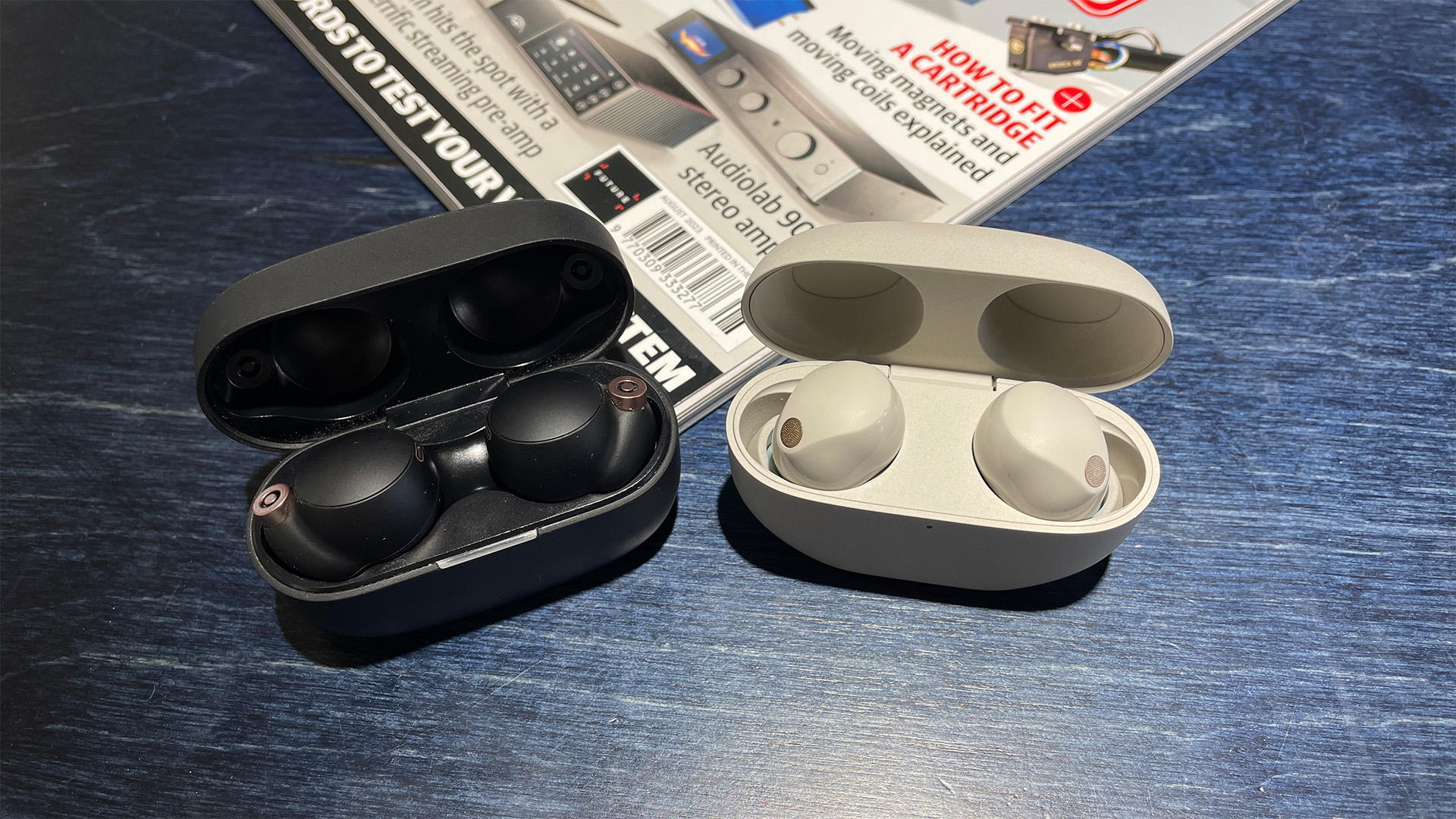
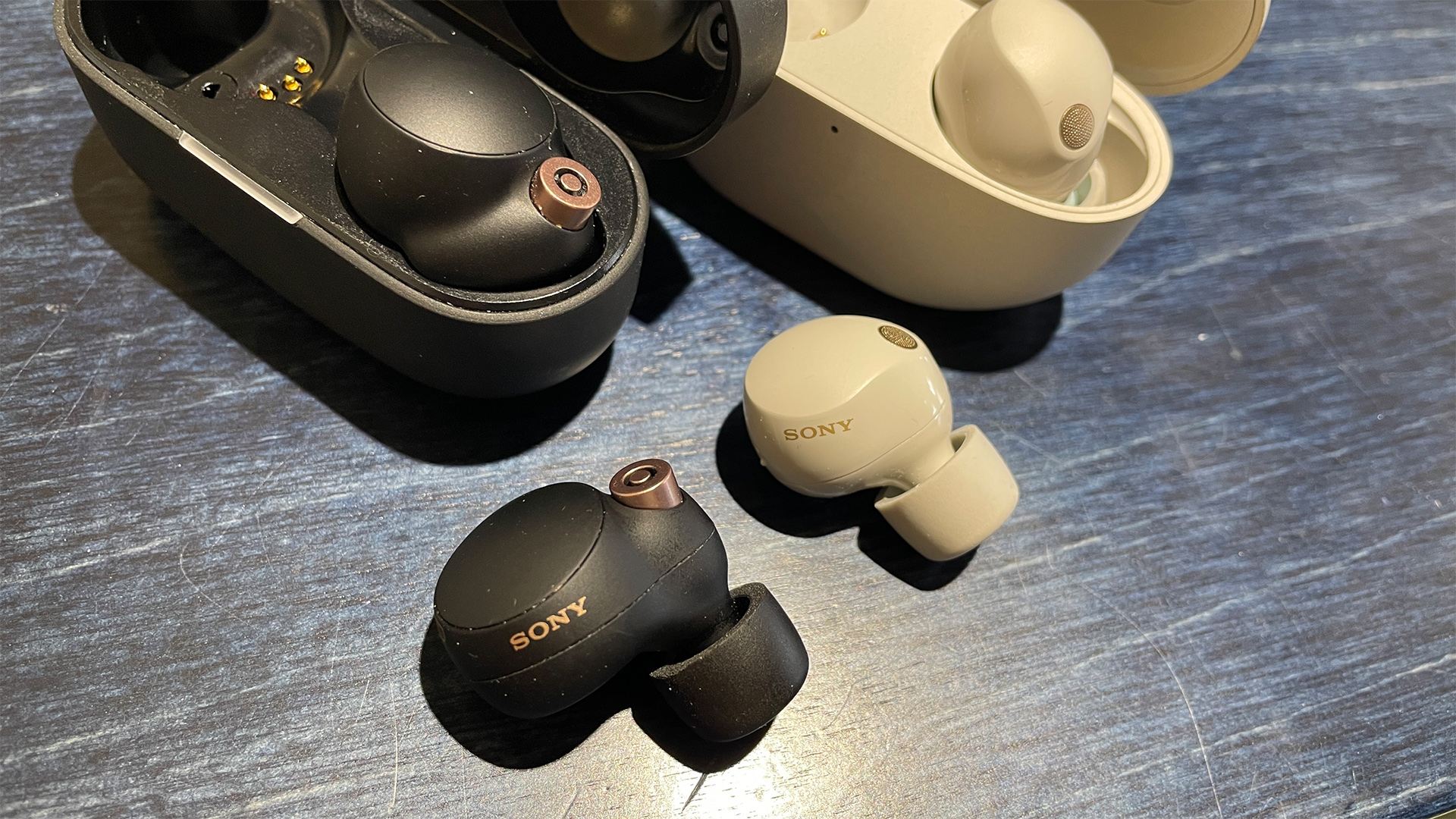
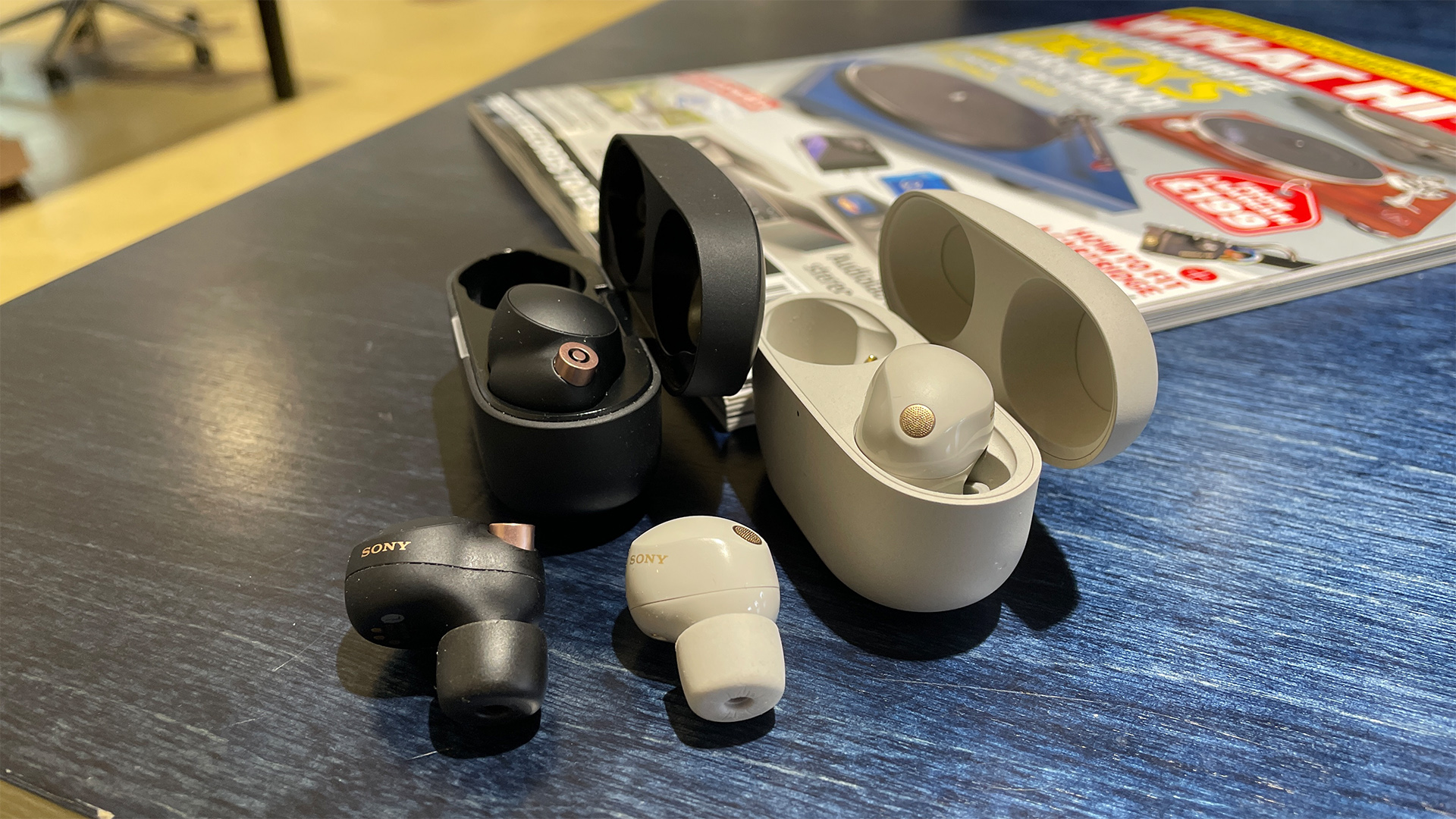
Specifications
Reasons to buy
Reasons to avoid
The Sony WF-1000XM5 are currently the top option and overall recommendation in our general best wireless earbuds guide. Thankfully, as well as sounding great delivering class-leading levels of detail and clarity in our checks, they are also very good for taking and making calls.
Using them in the office, windy outdoor conditions and busy signal areas, the mics consistently delivered reliable audio, with our test subject on the other end of the line reporting clear audio during all our checks.
We were particularly impressed with how well the mics dealt with wind noise, a factor aided by their new noise reduction structure, which is designed to help them work in difficult outdoor environments. The inclusion of a new bone conductor sensor, which uses AI wizardry to help the earbuds know when you’re talking also made them feel more responsive than most rivals when taking calls.
This is why our testers reported:
“The design and tech changes seem to have done the job. Wind noise is largely subdued, even in the blustery conditions in which we found ourselves during testing. Our voice sounded detailed, clear and easy to follow, which isn’t always the case with wireless earbuds.”
The combination of factors means the WF-1000XM5 are the best headphones with a mic for most people at the moment.
Read our full Sony WF-1000XM5 review
Best cheap
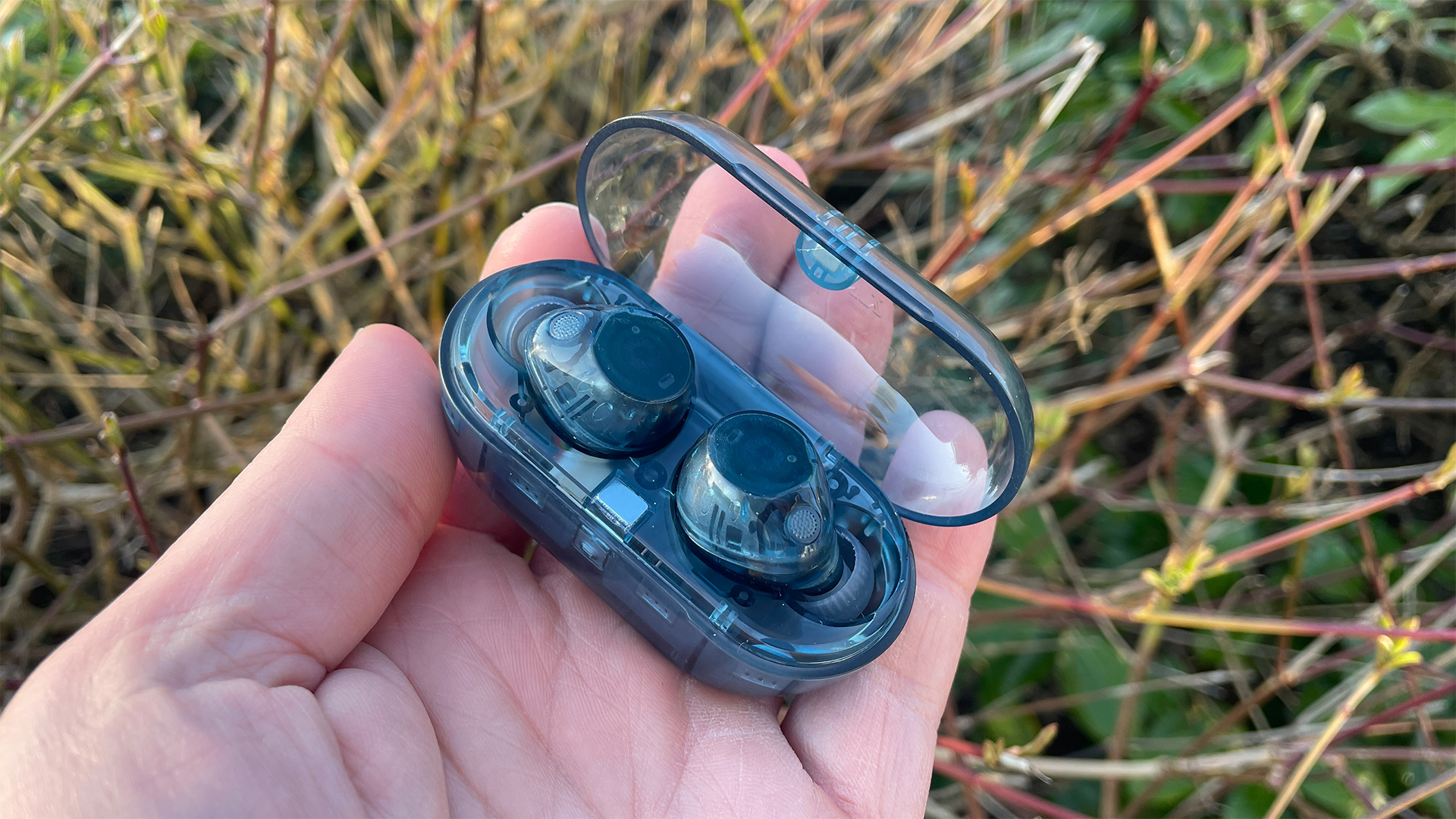
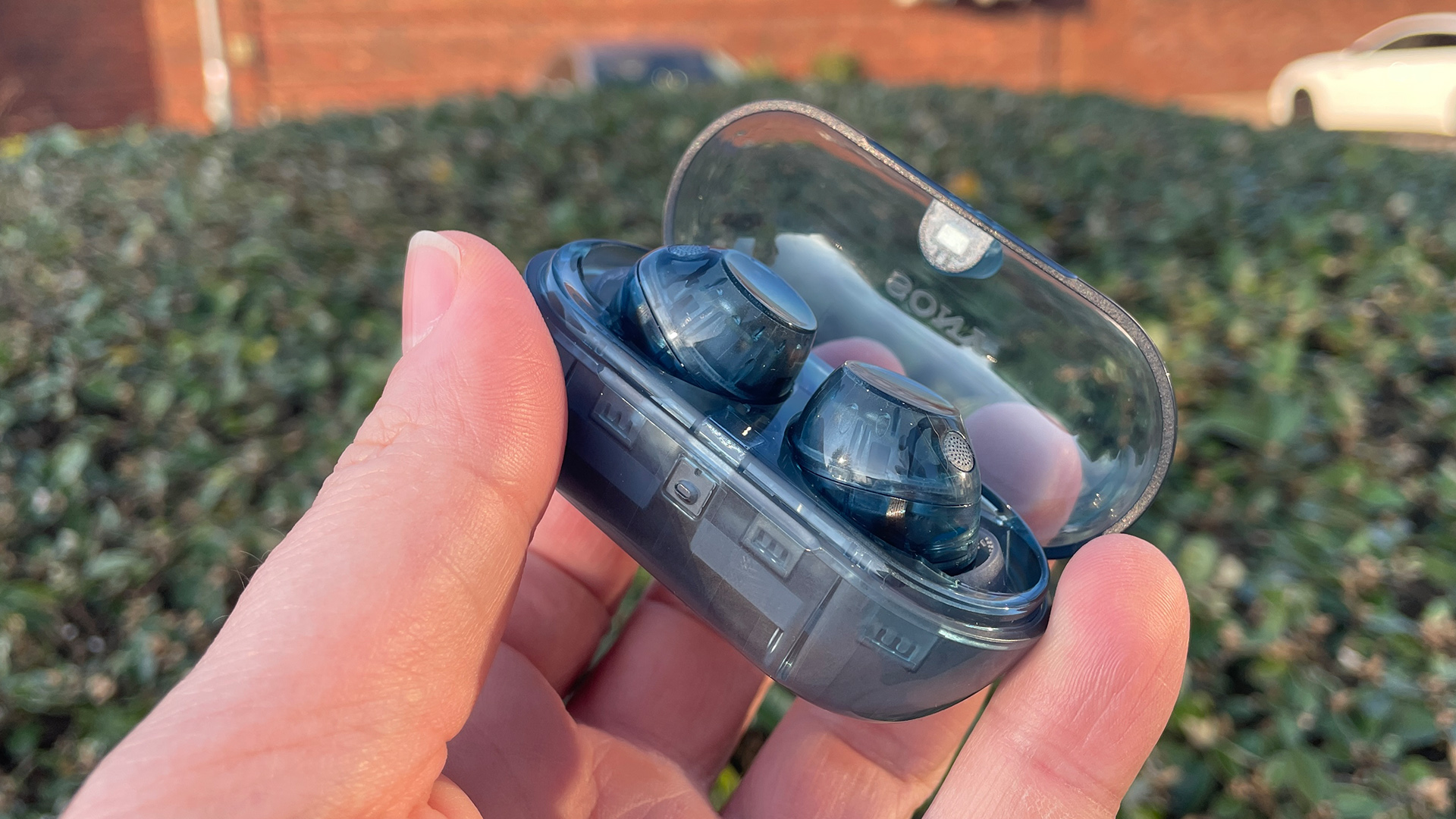
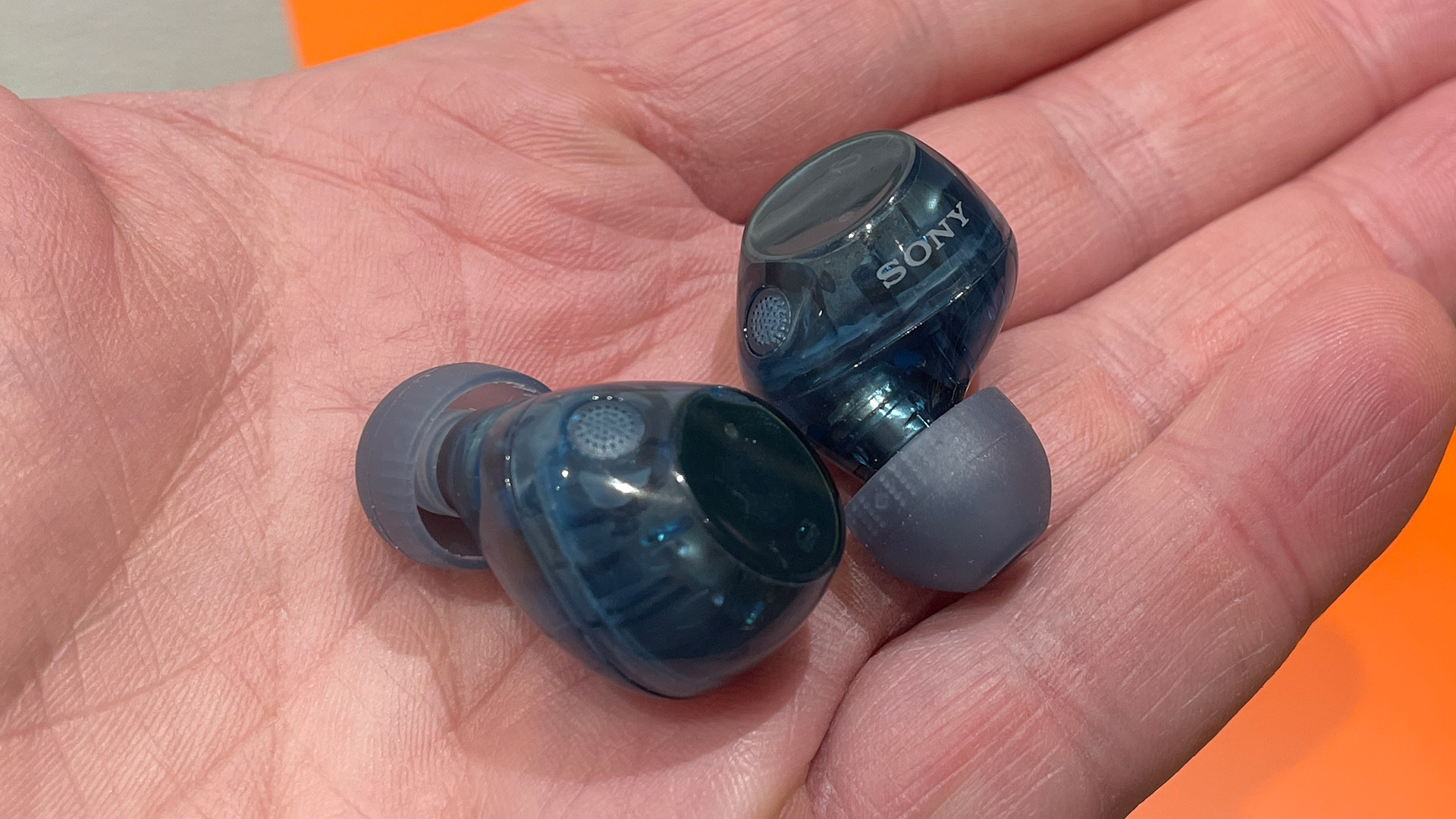
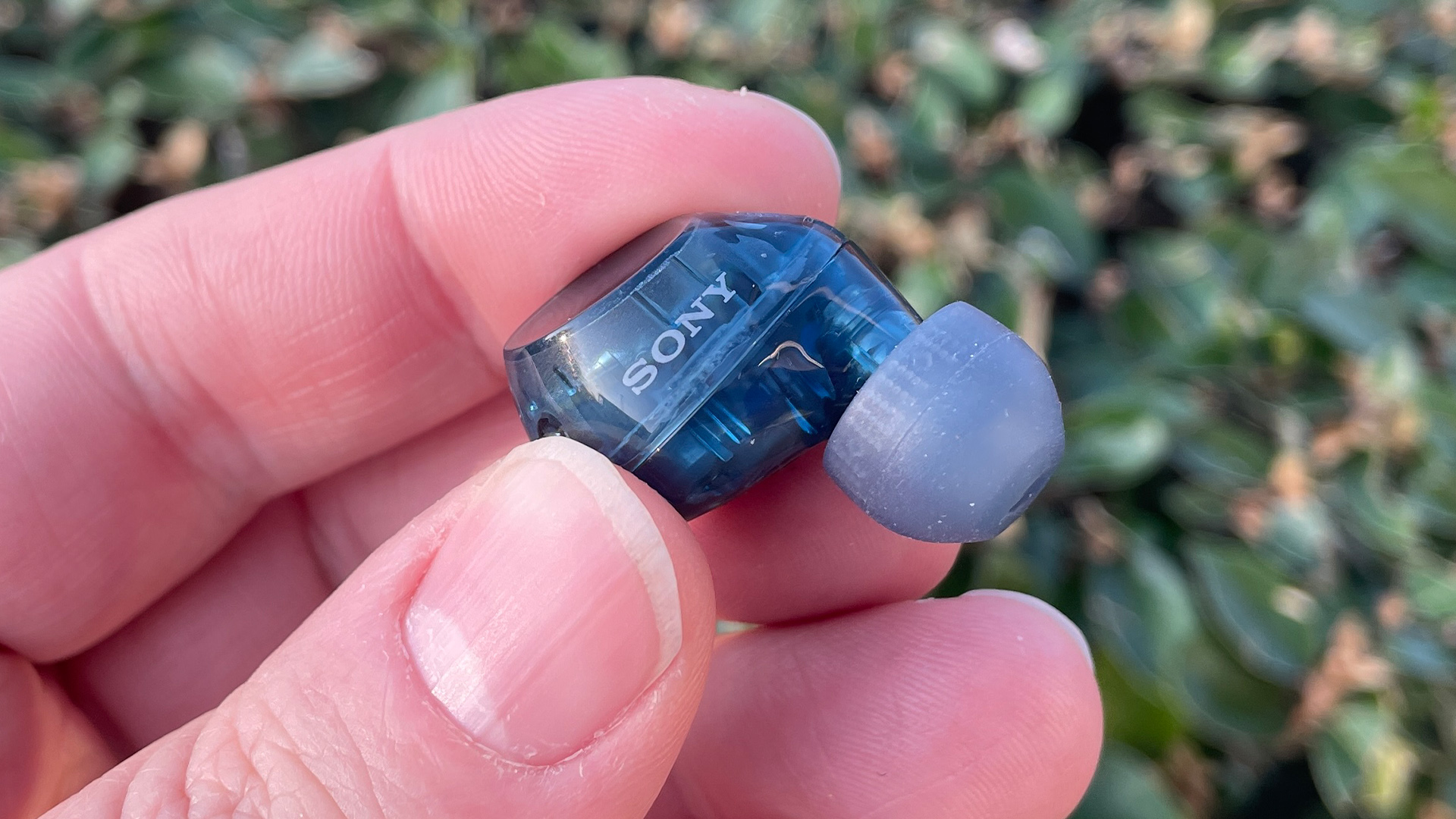
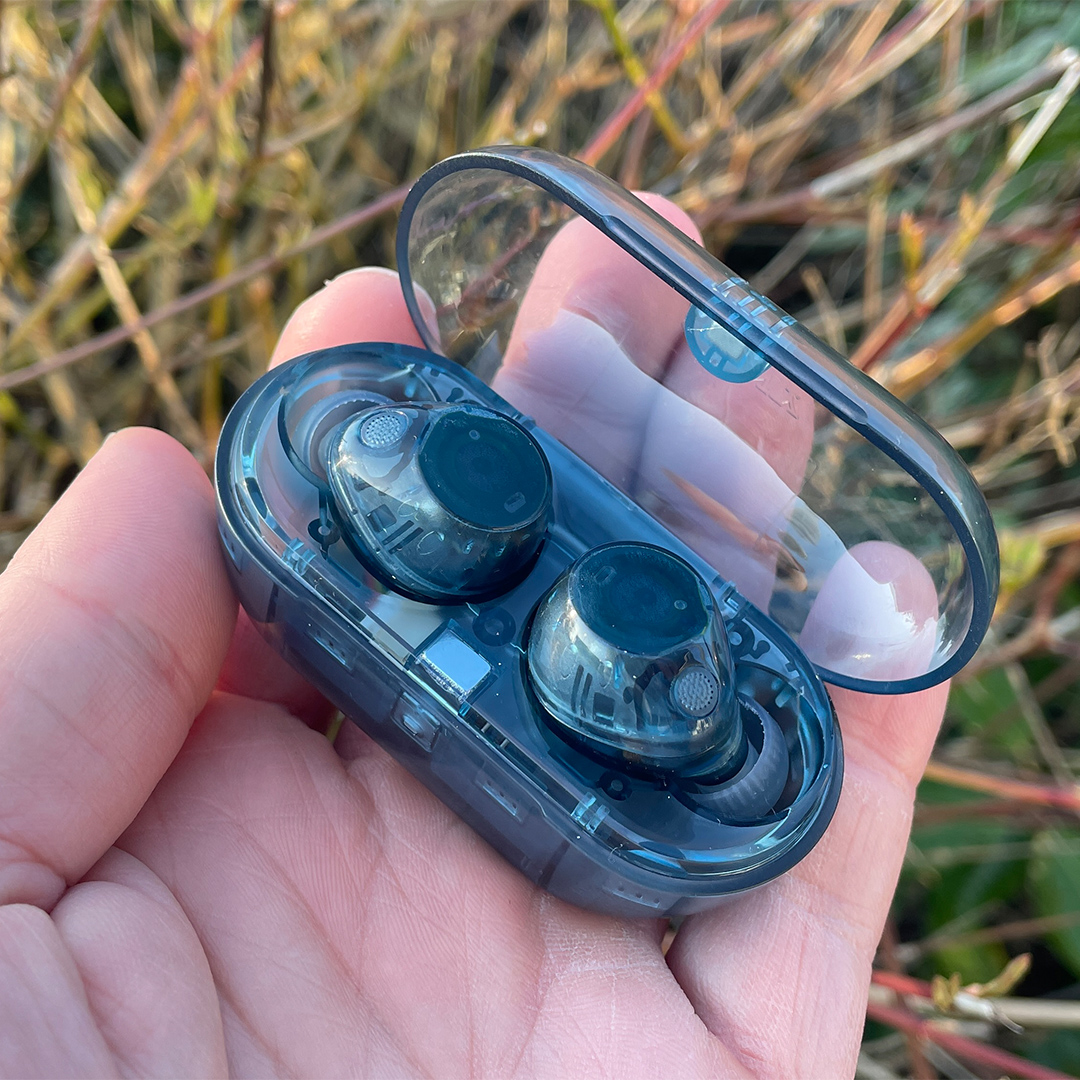
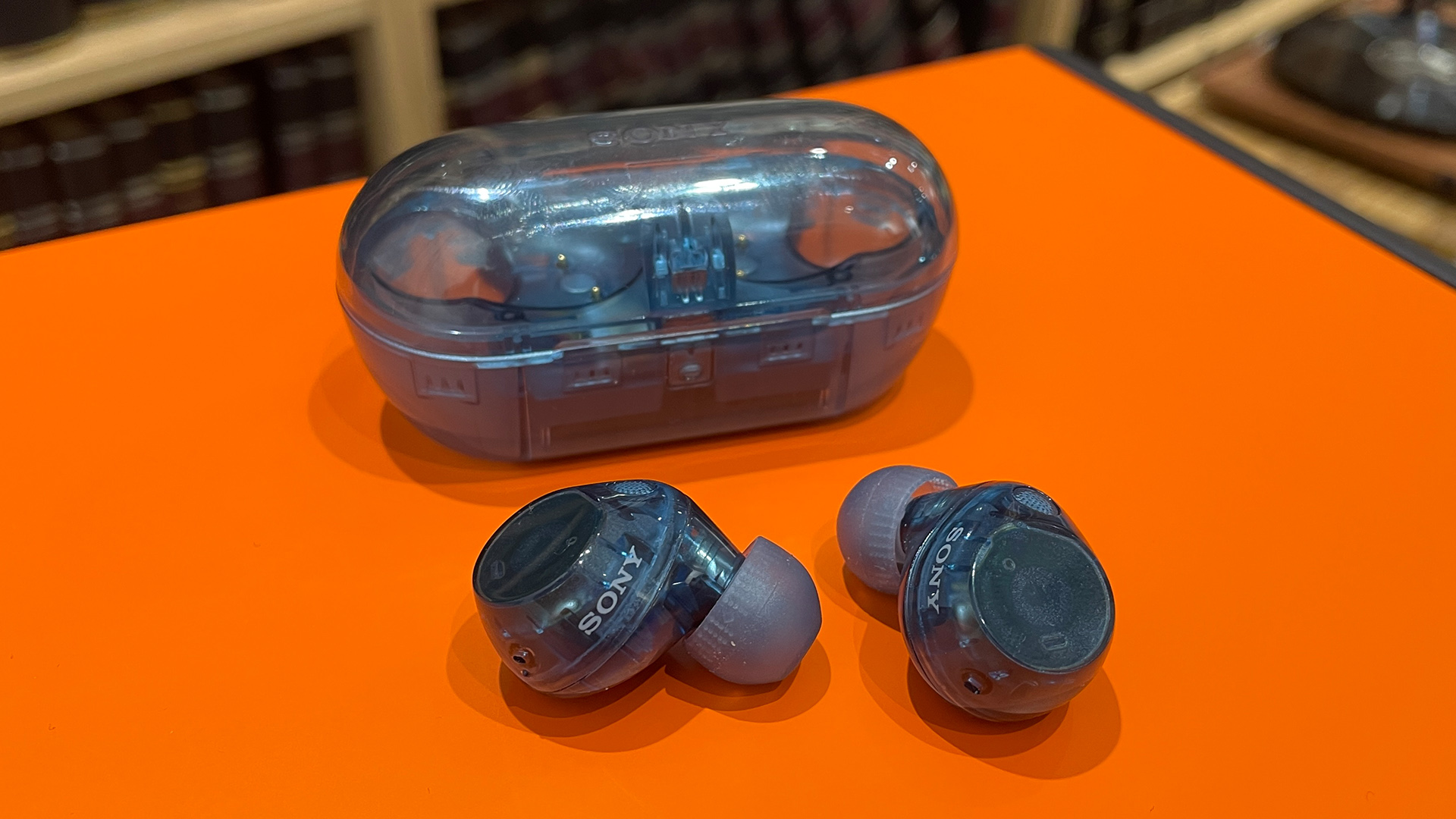
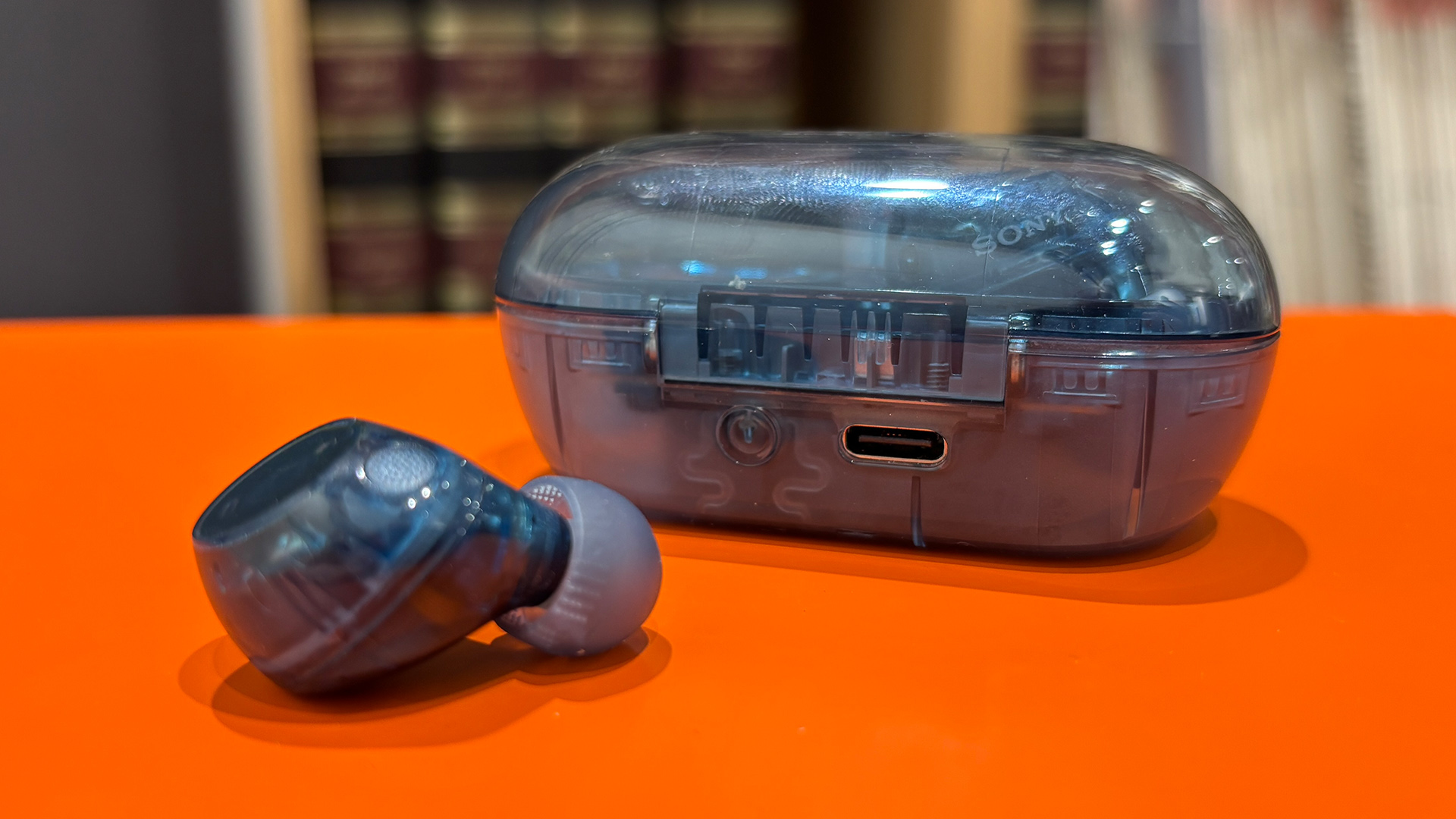
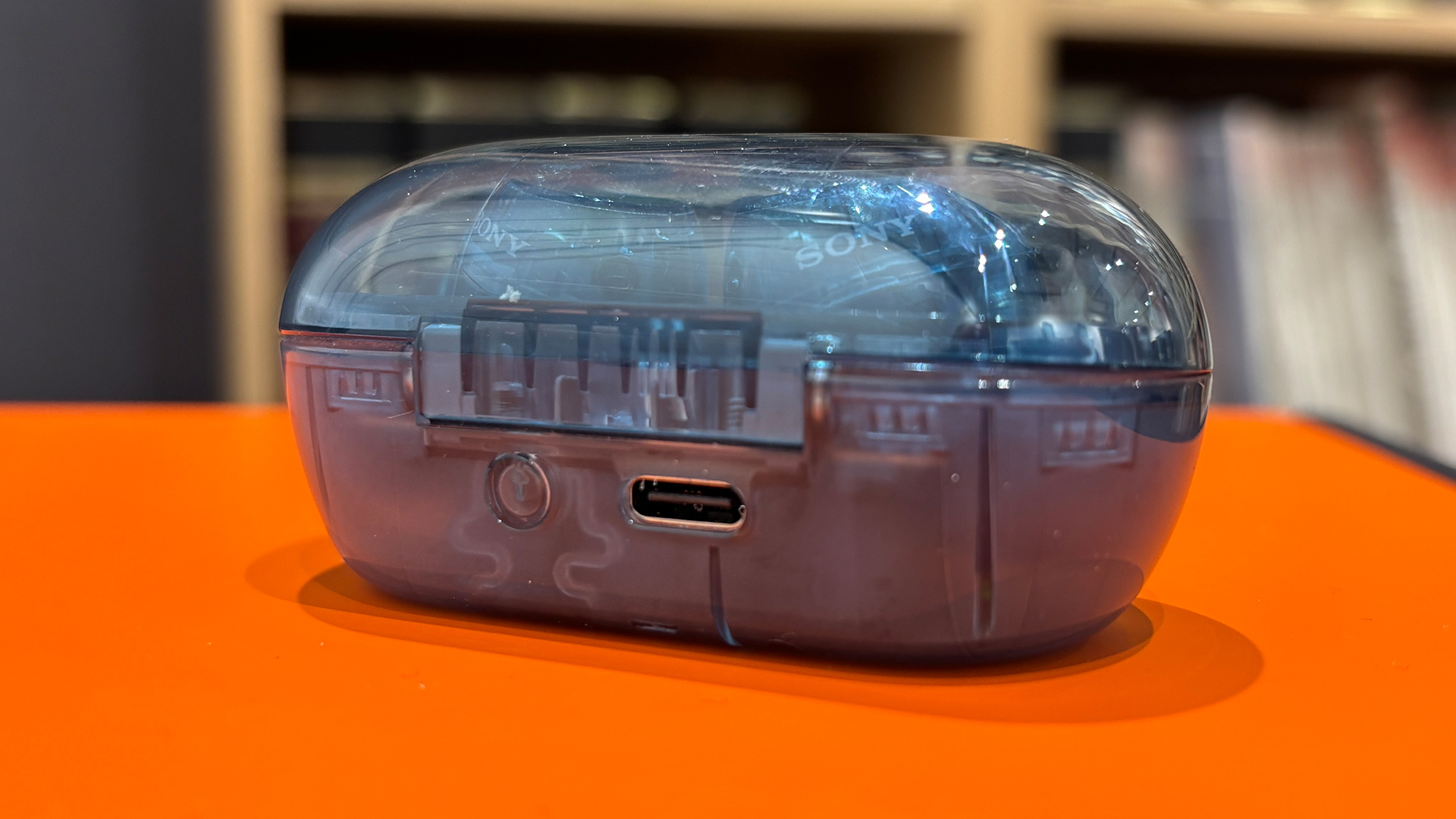
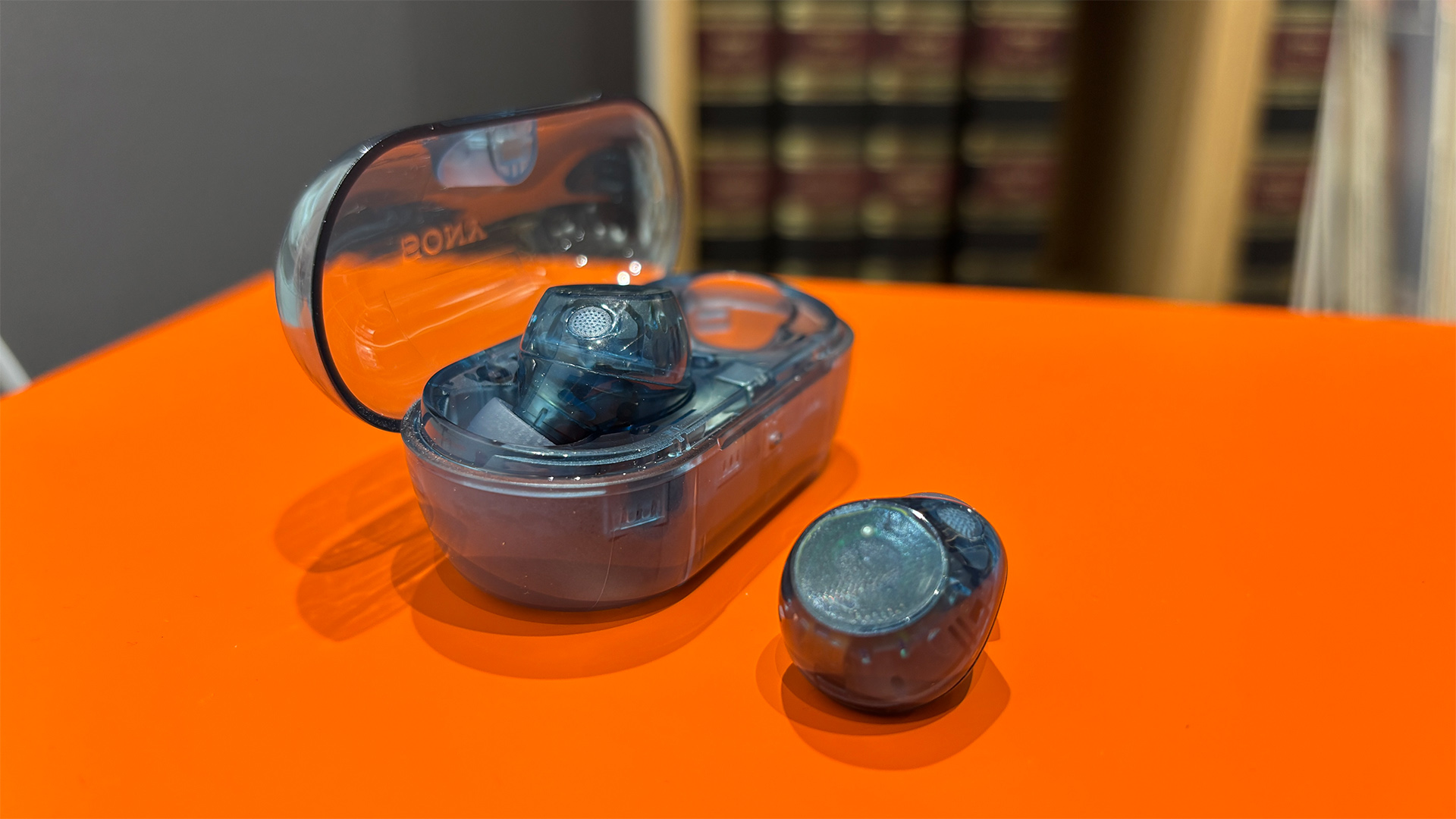

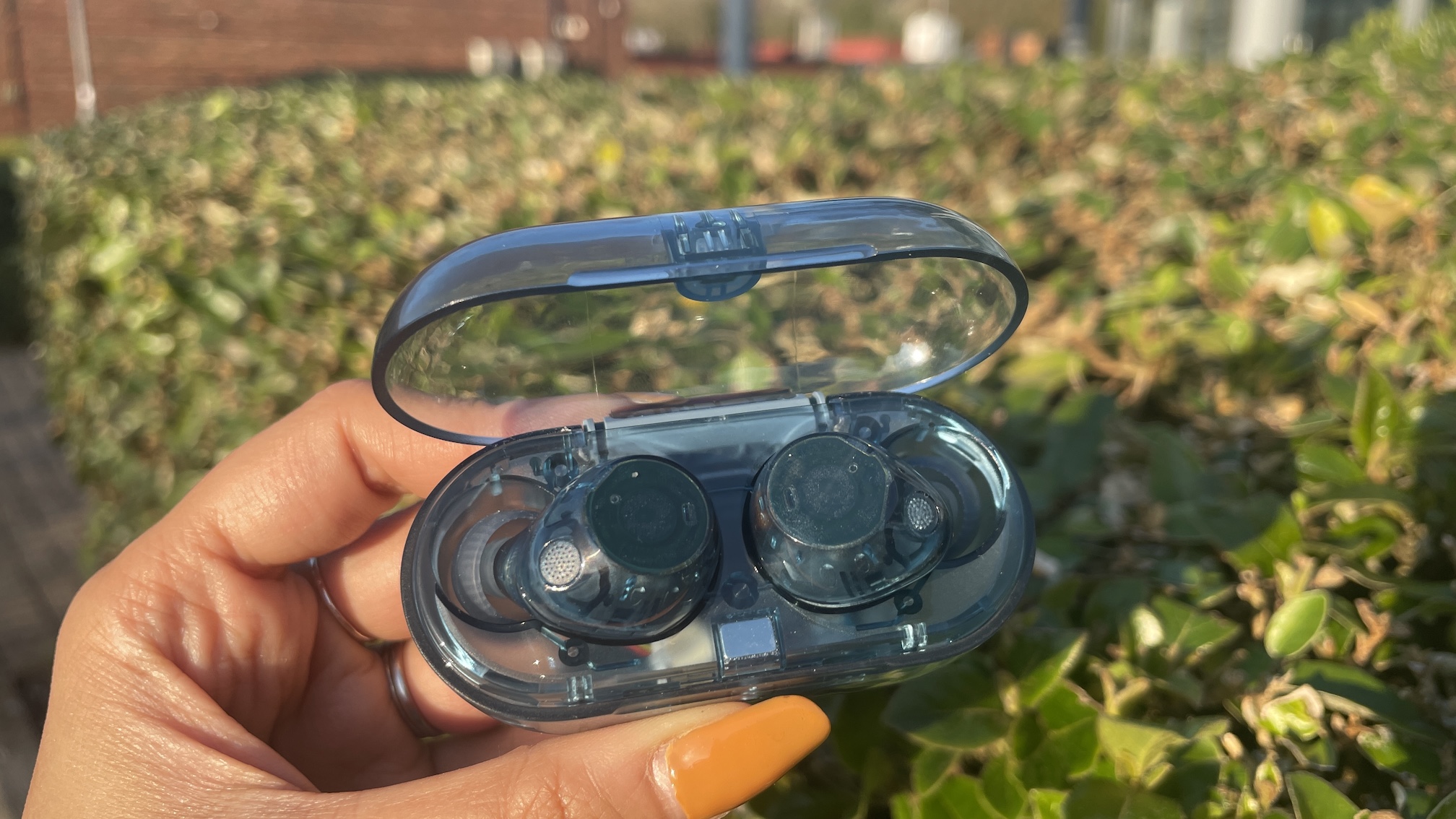
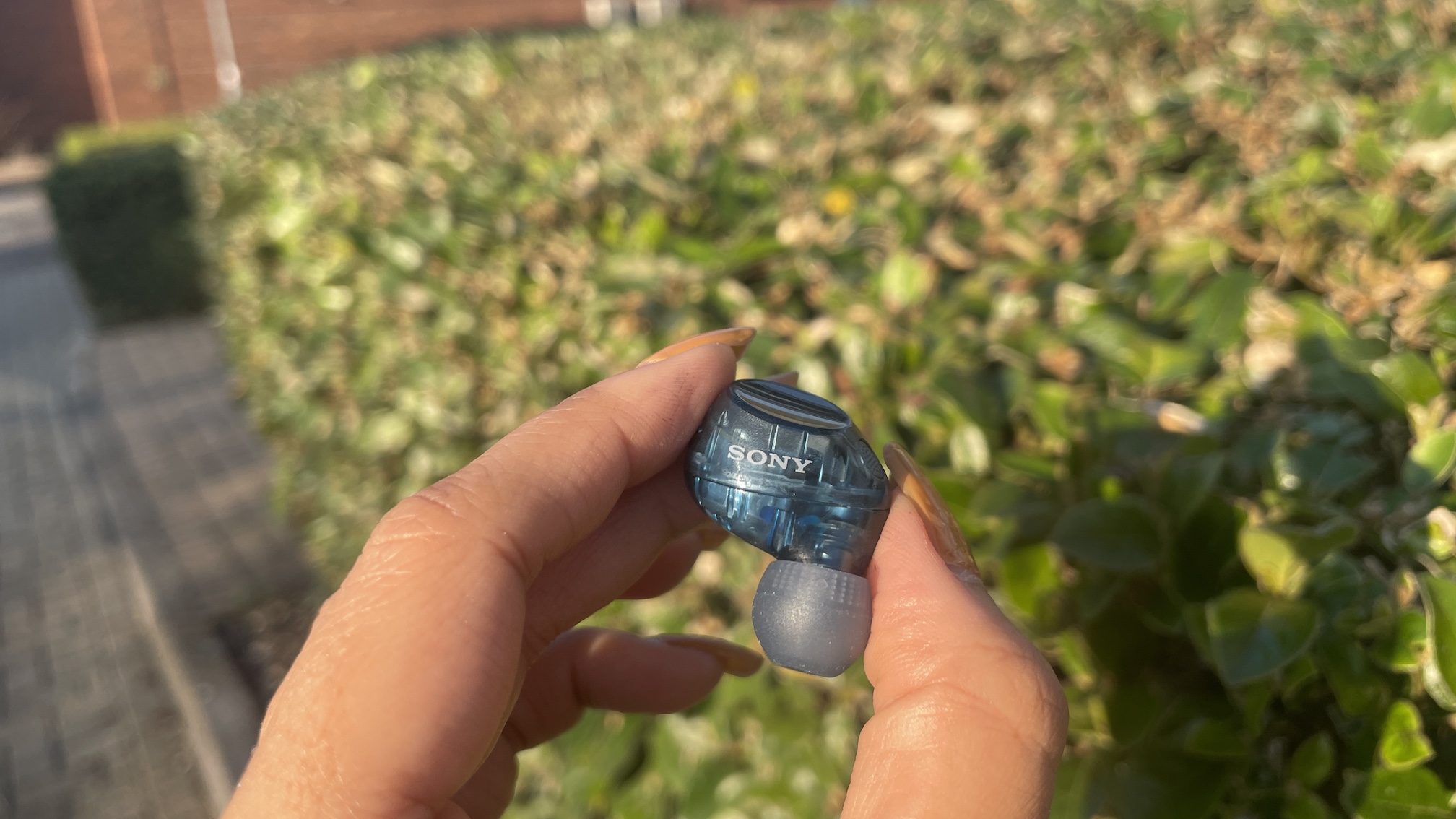
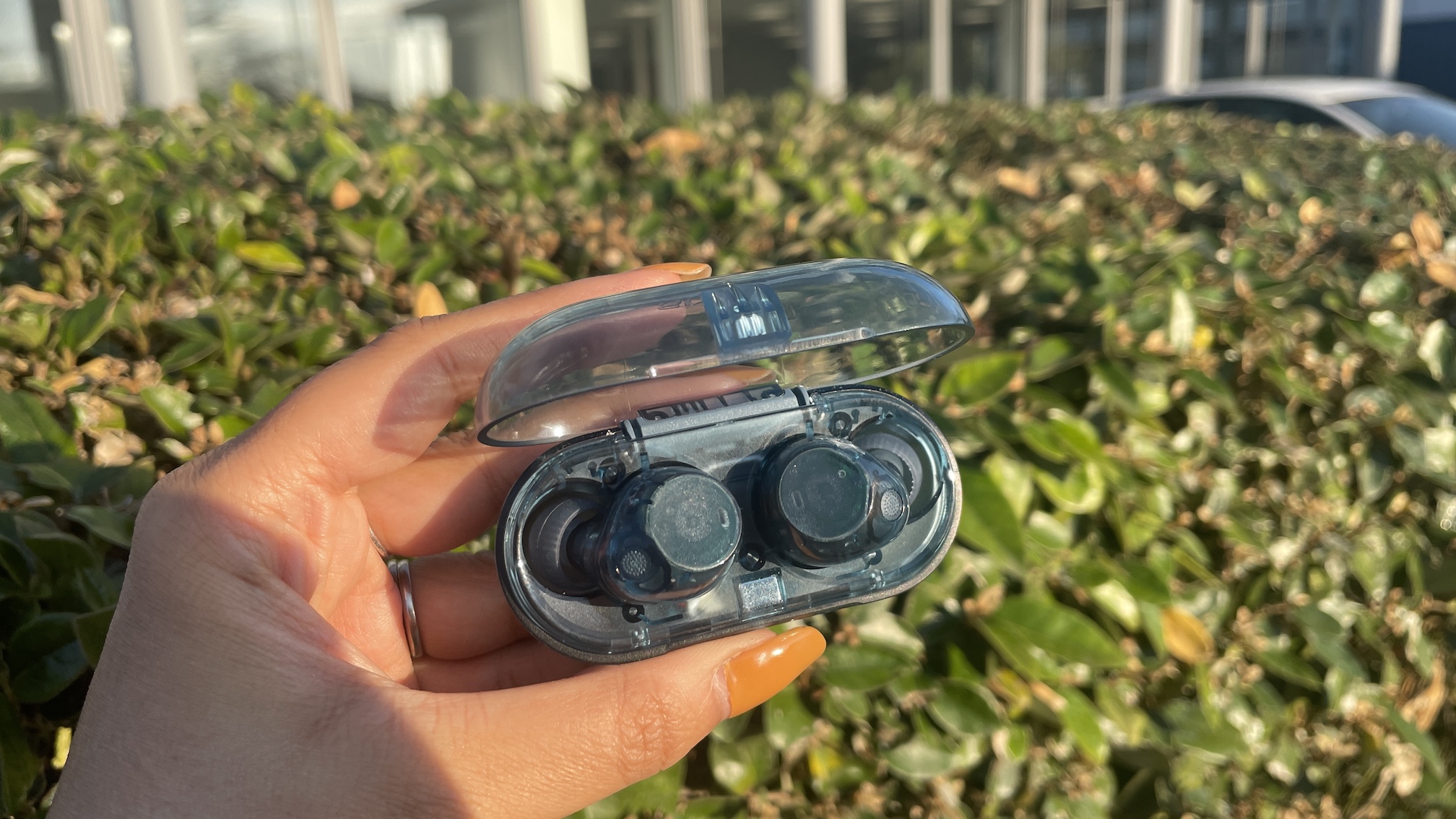
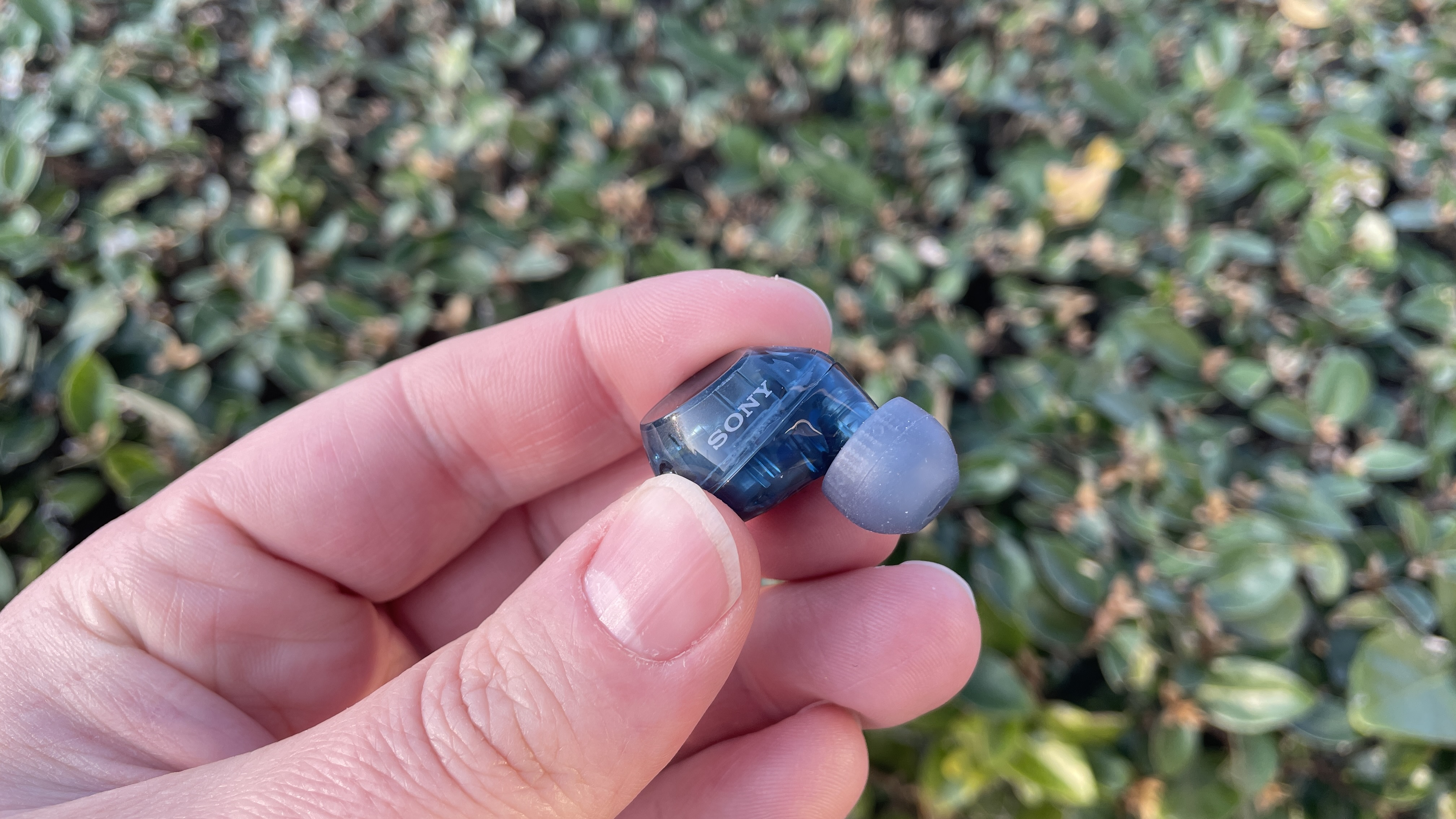
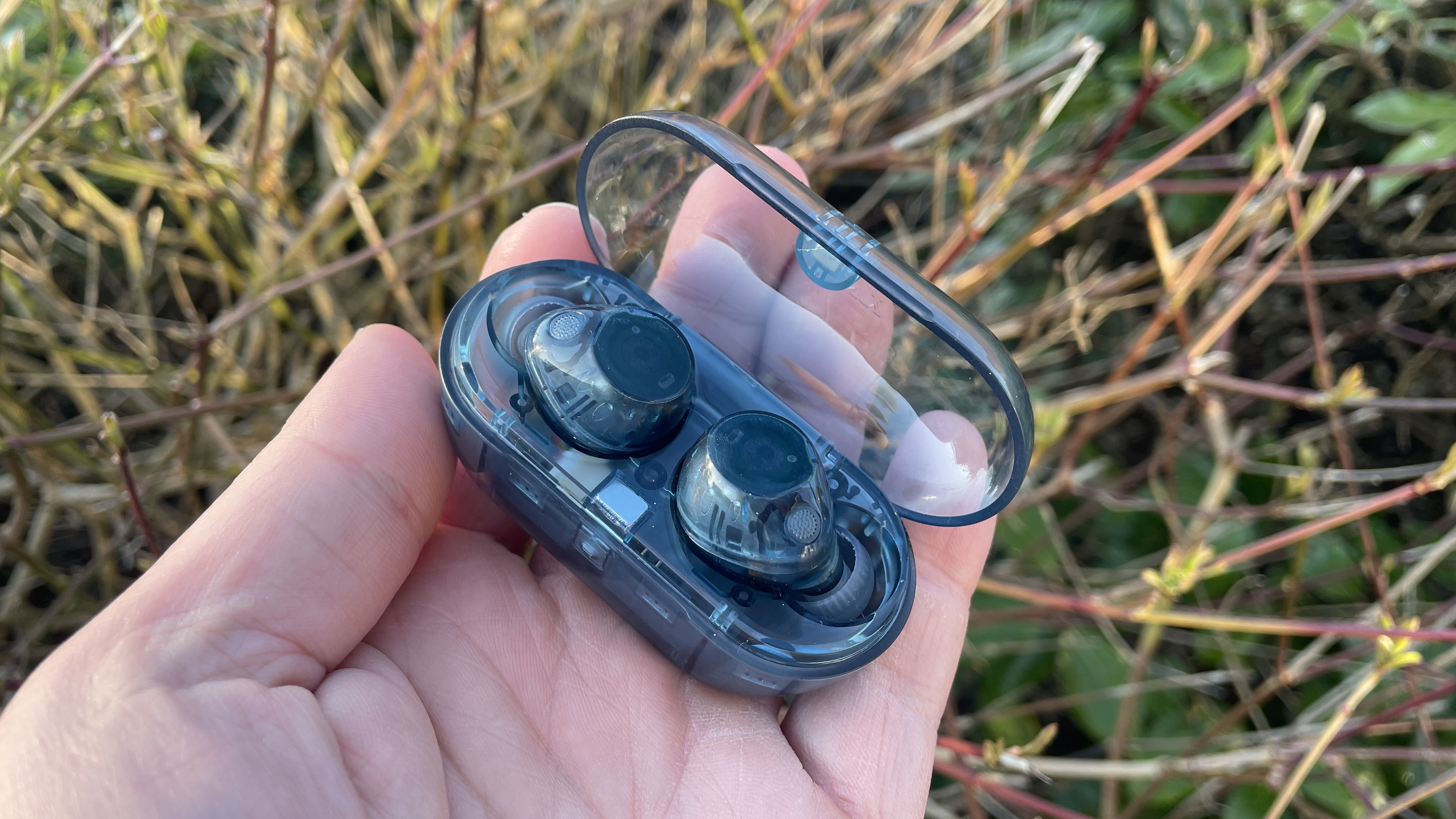
Specifications
Reasons to buy
Reasons to avoid
The Sony WF-C710 aren’t just the best cheap earbuds for mic quality, they’re some of the best wireless earbuds you’ll find at their price in general.
They are the direct successors to the Award-winning Sony WF-C700N, which we previously rated as the best budget earbuds for music and call quality.
During testing we found them to be a holistic upgrade on the older model, with the C710N’s reworded design and mic setup letting them offer noticeably improved call quality during our checks, with our reviewers’ reporting.
“We found our voices better defined and clearer while background noise, including gentle gusts of wind, was suppressed better too. We’re not talking a ridiculous amount, but enough for the reviewer on the other end of the call to notice a difference when comparing the two side by side.”
Add to this their much improved active noise cancellation, fuller low end and general clear, detailed and dynamic audio and they rapidly become an easy recommendation.
Read our full Sony WF-C710N review
Best wired
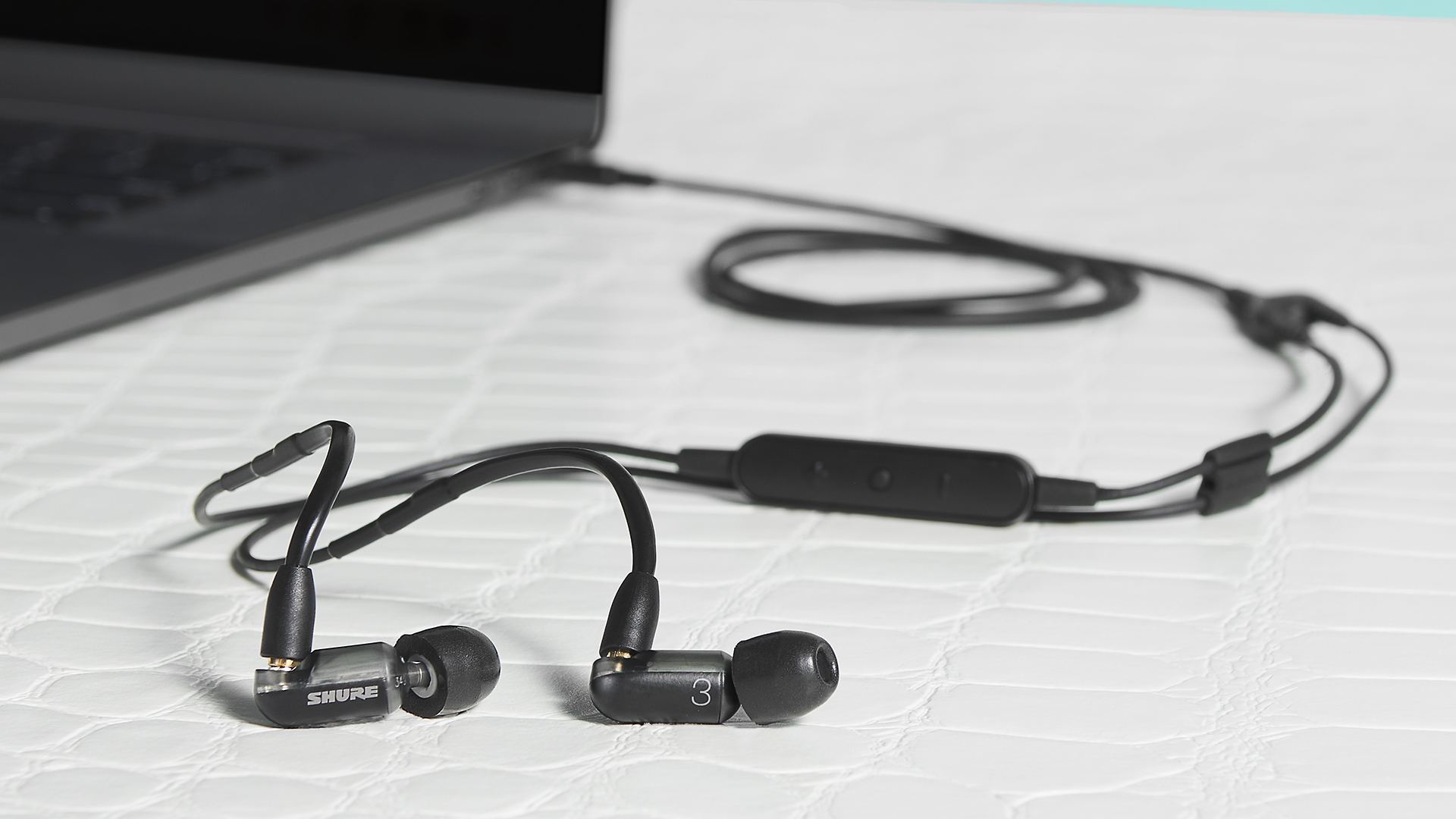
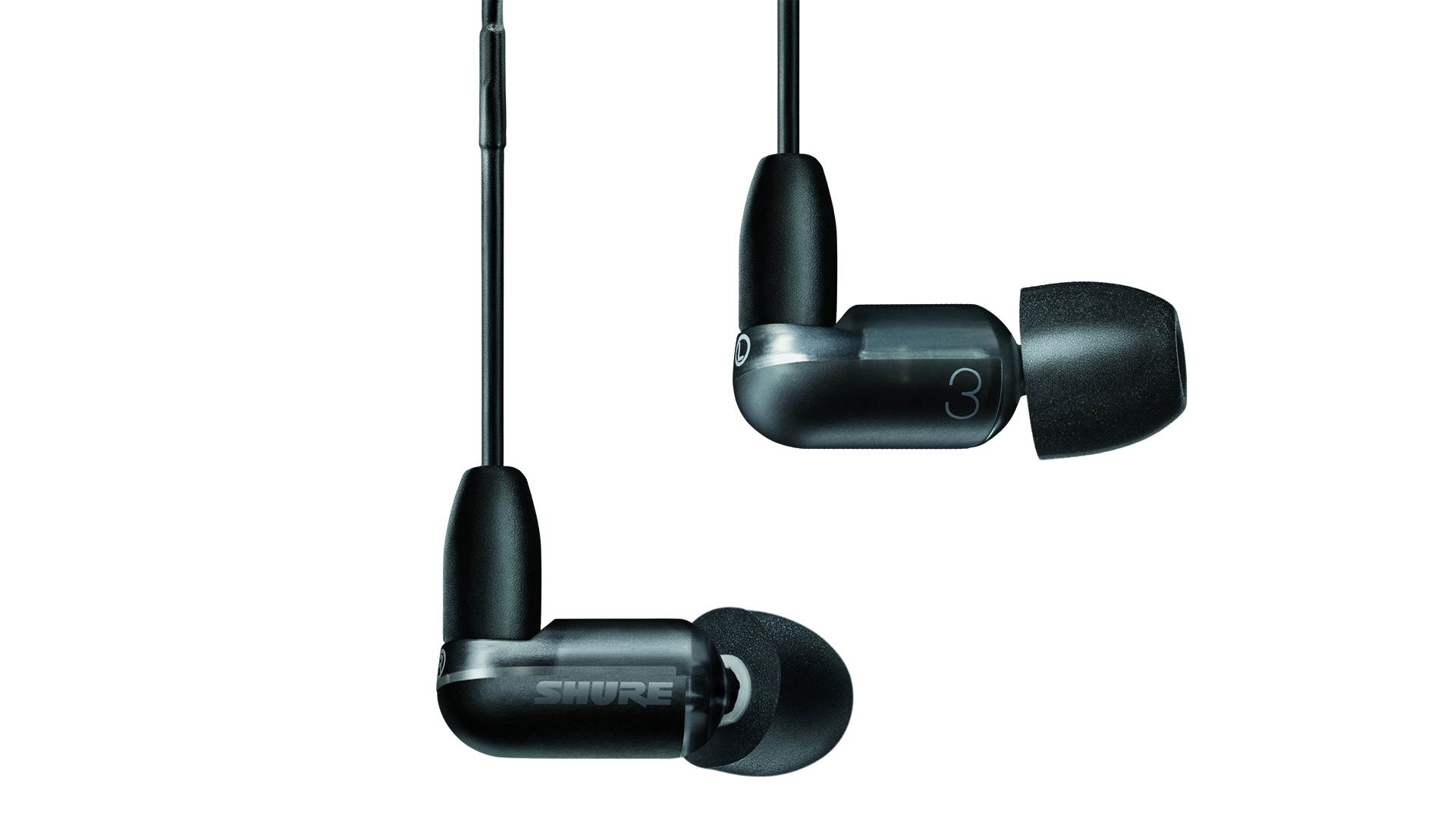
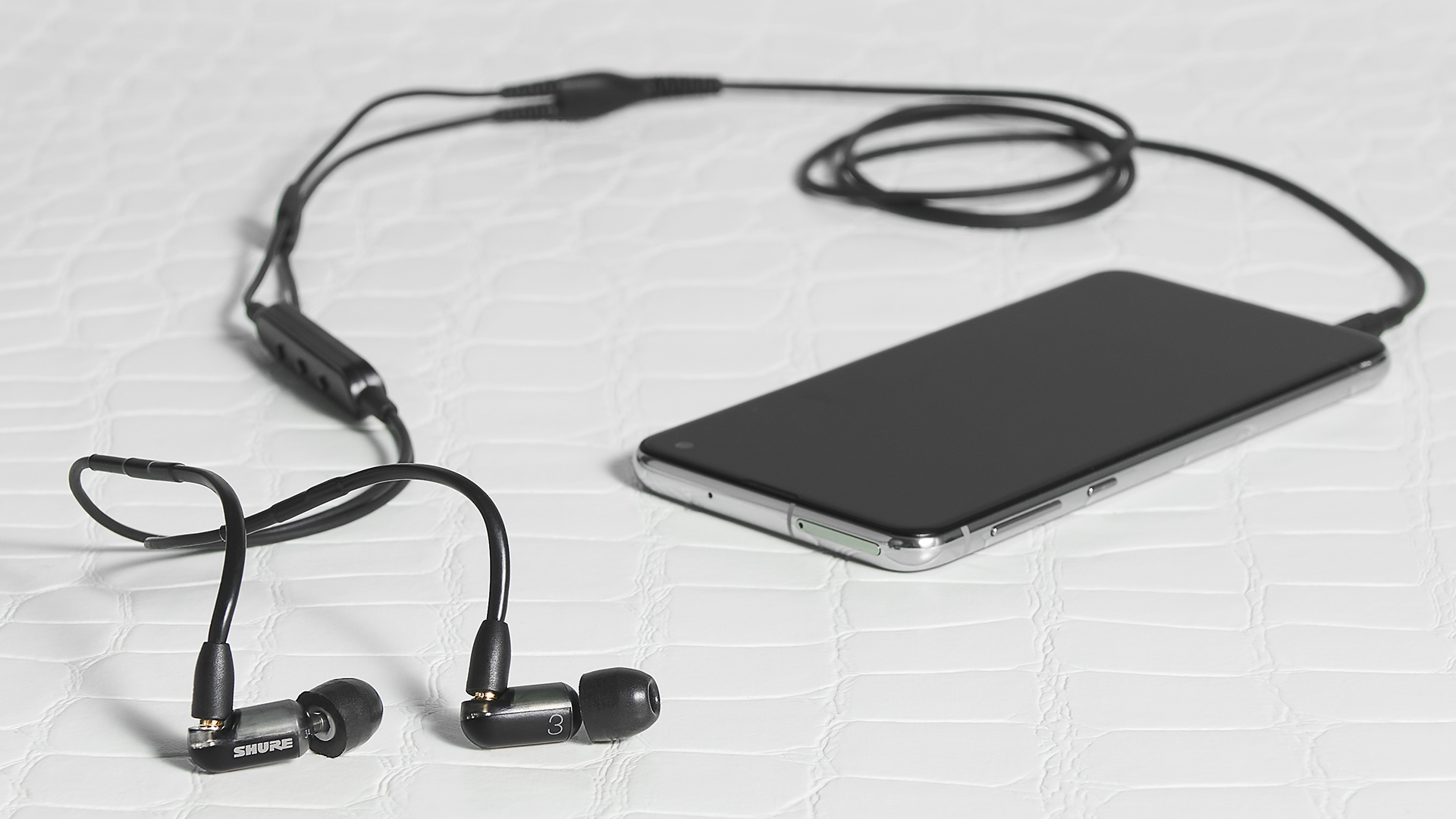
Specifications
Reasons to buy
Reasons to avoid
With a noise-isolating design (no noise cancellation tech), wired connection and 3.5mm headphone jack, you might think these Shures are a little out of step with most modern headphones. And that price! They'll have to do something pretty spectacular to convince us they're worth considering.
Thankfully, they do and they are – having now won four consecutive What Hi-Fi? Awards in 2021, 2022, 2023 and 2024. They time nigh-on perfectly, able to separate strands and knit them together in one glorious musical tapestry. The sense of rhythm and timing needs to be heard to be believed.
The same can be said of their dynamic ability. In the nicest possible way, they're the kind of headphones you can put on and just forget about. There isn’t a single element that sticks out – bass notes don’t protrude and highs don’t cut too deep. They're honest, transparent and true to the original recording. There’s detail and analysis, but never at the expense of the music's life and emotion.
They're comfortable and lightweight, too, and with nine different pairs of eartips, you're guaranteed a good fit. An in-line mic seals the deal, serving to make calls clearer than many rivals.
Read the full Shure Aonic 3 review
Best Apple earbuds
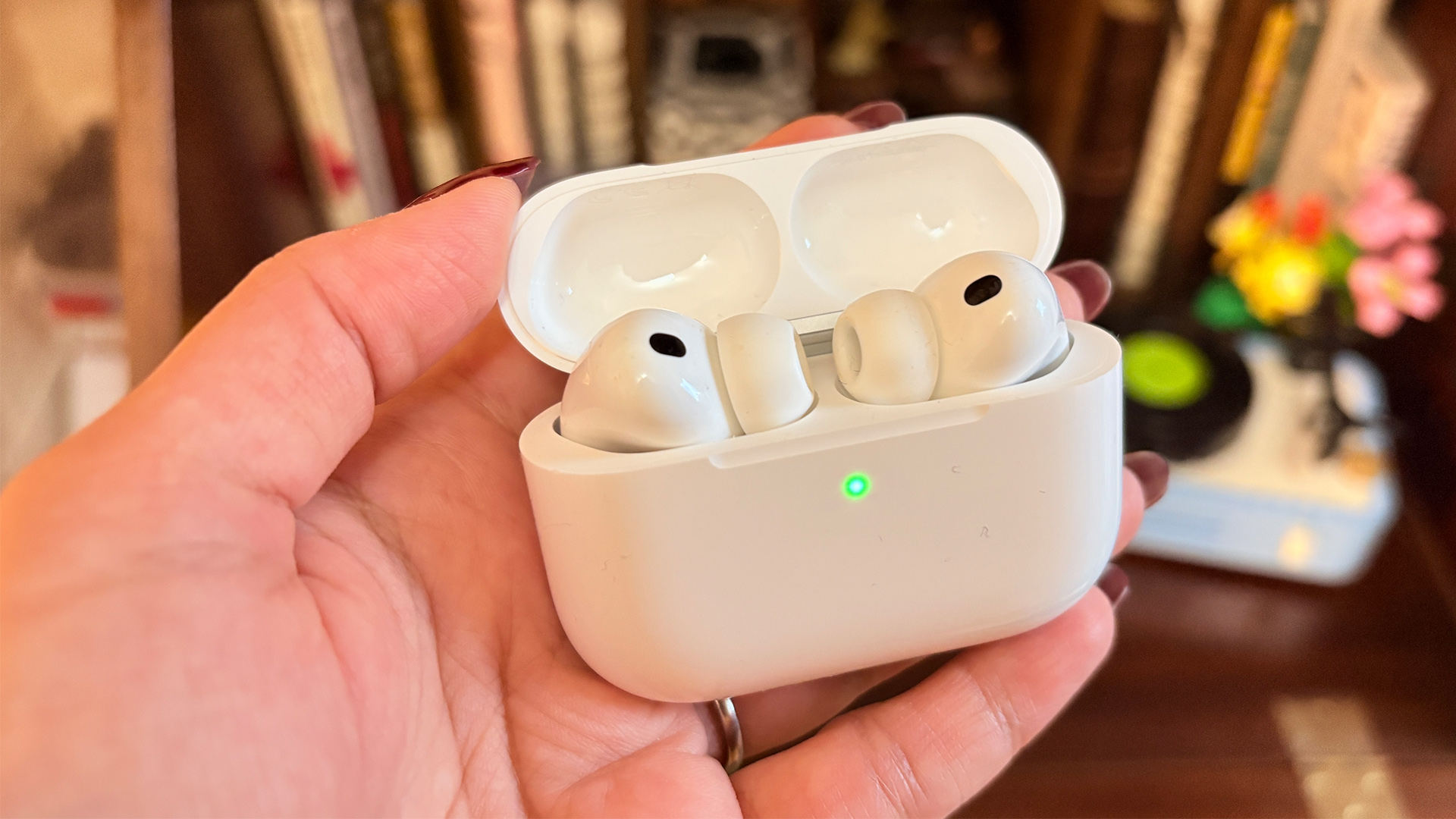
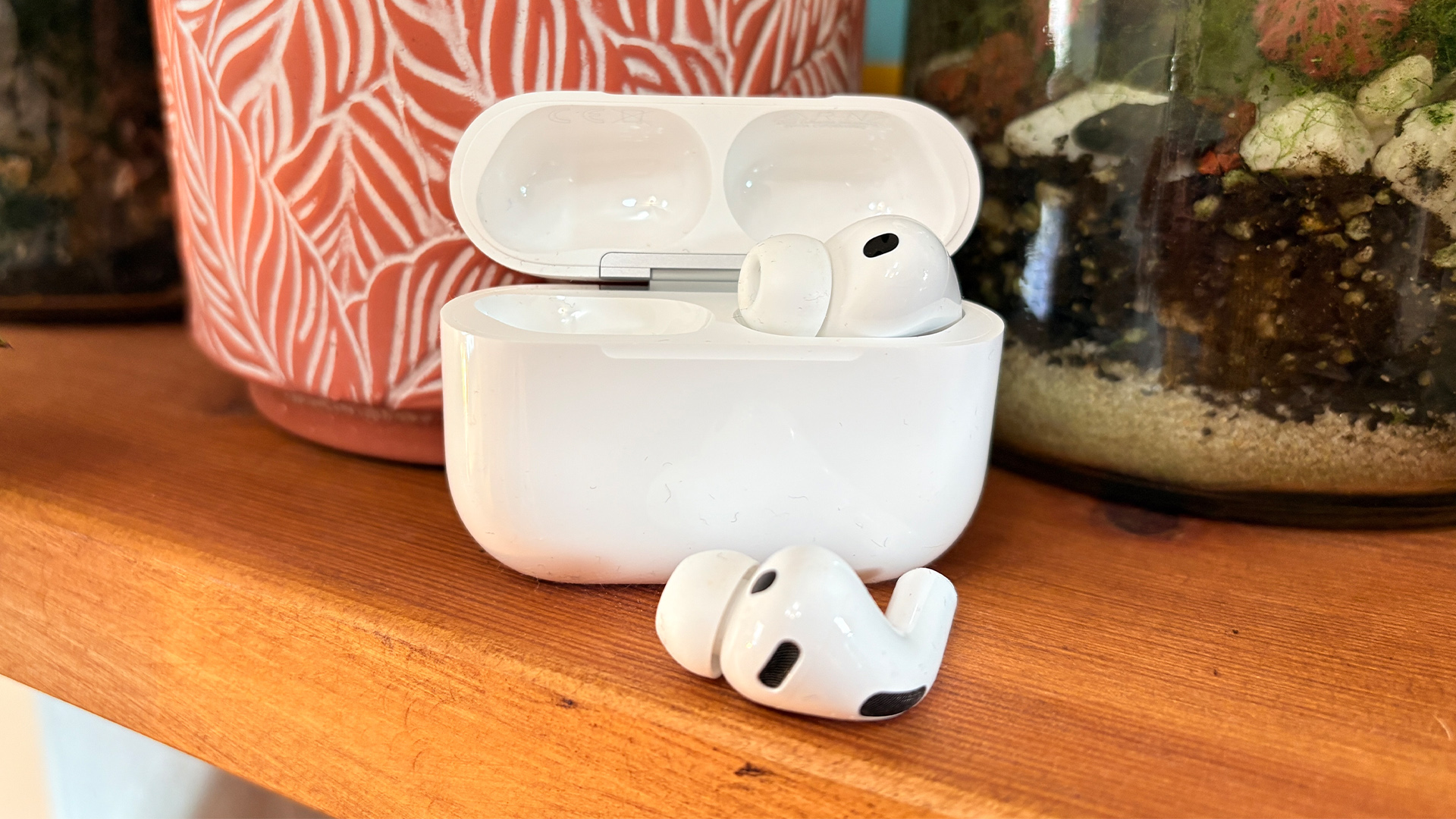

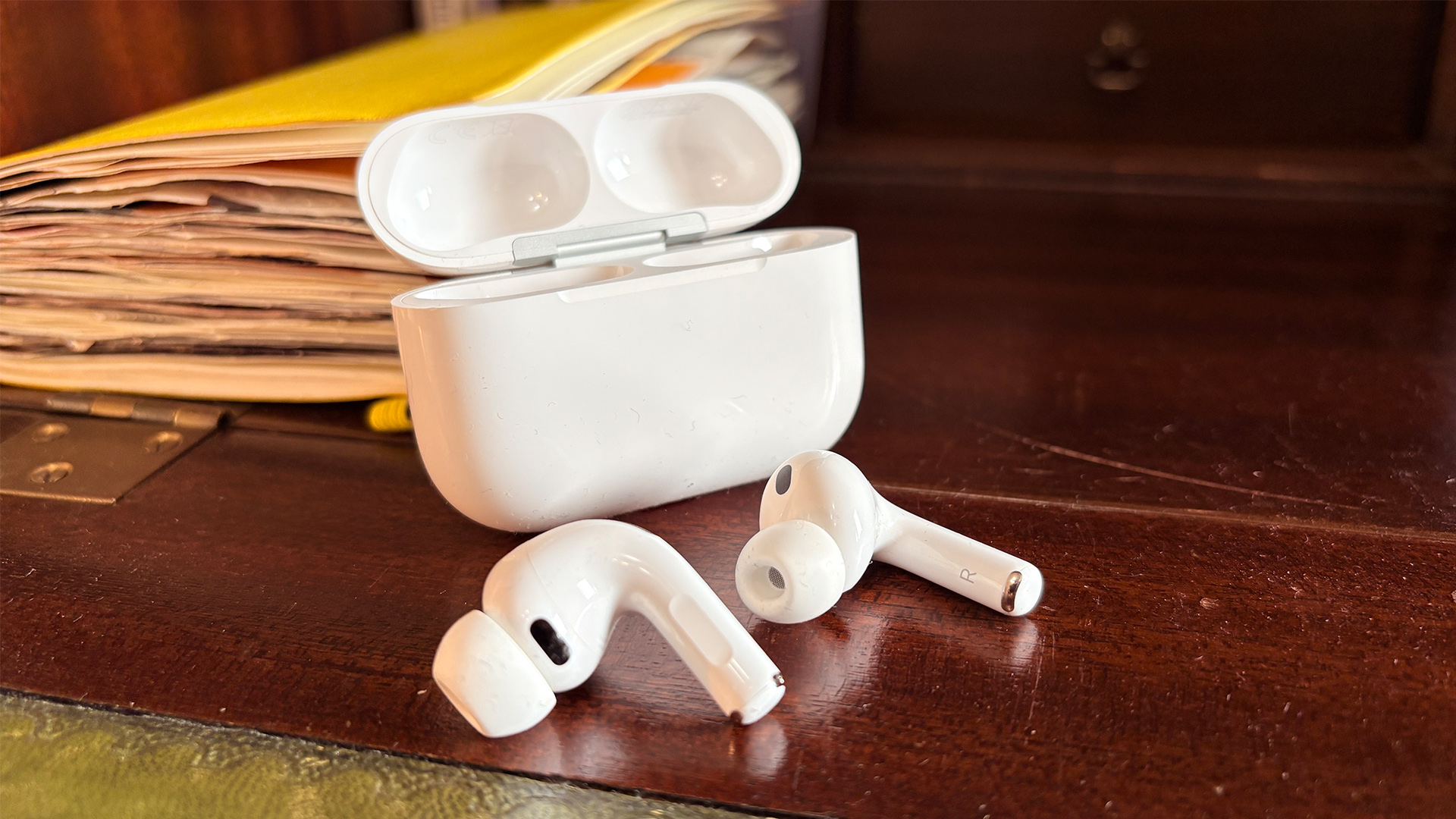
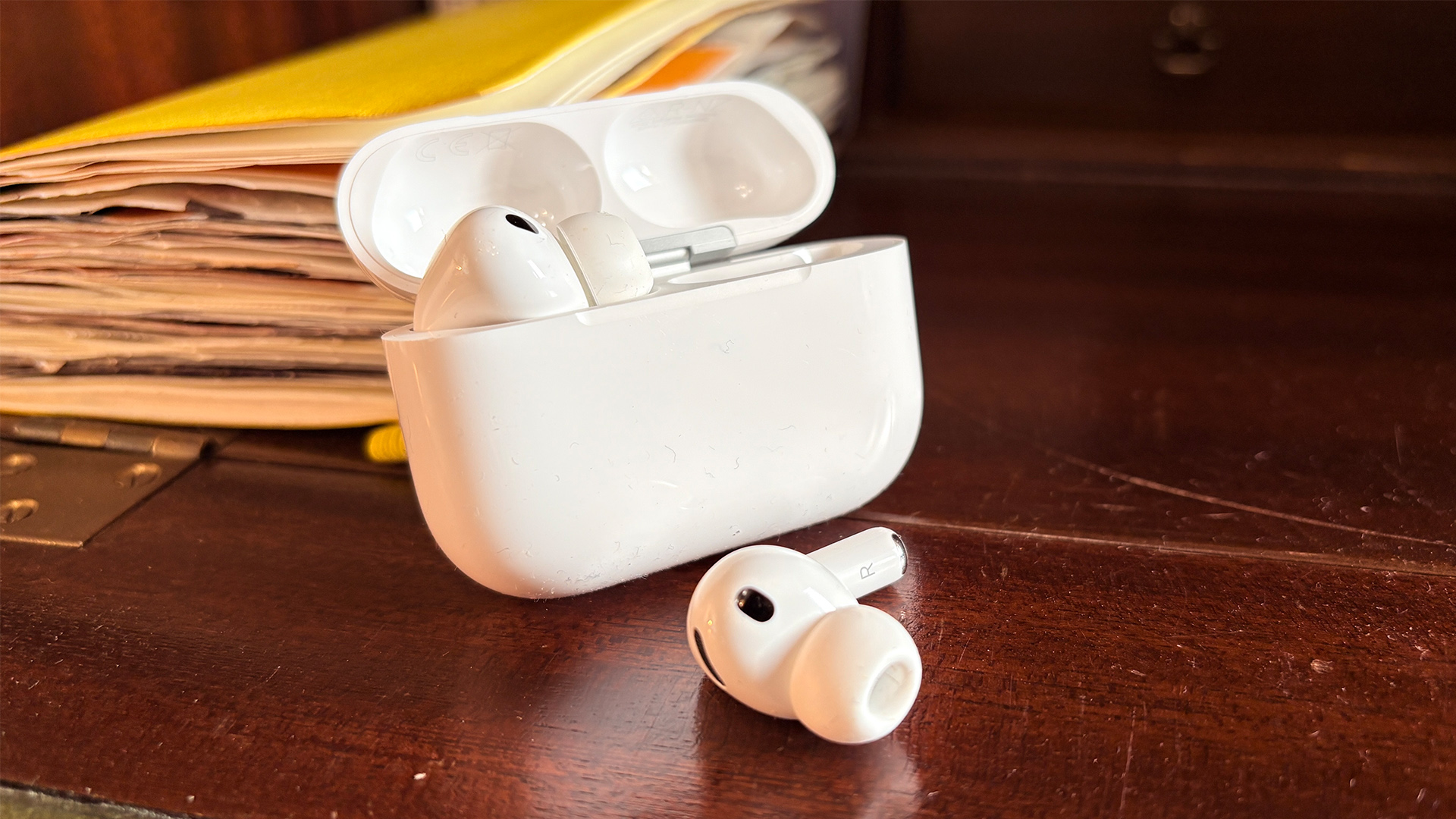
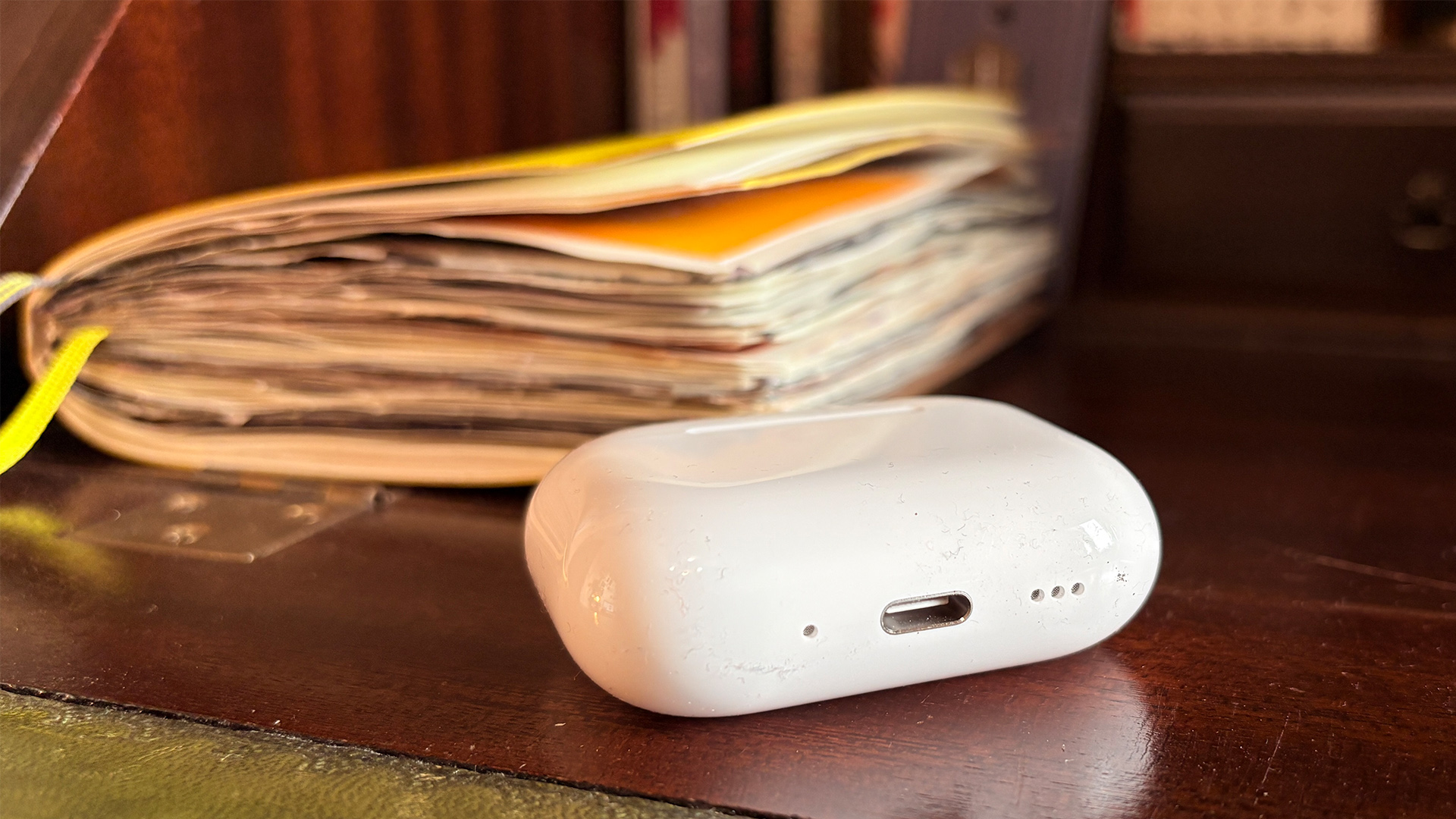
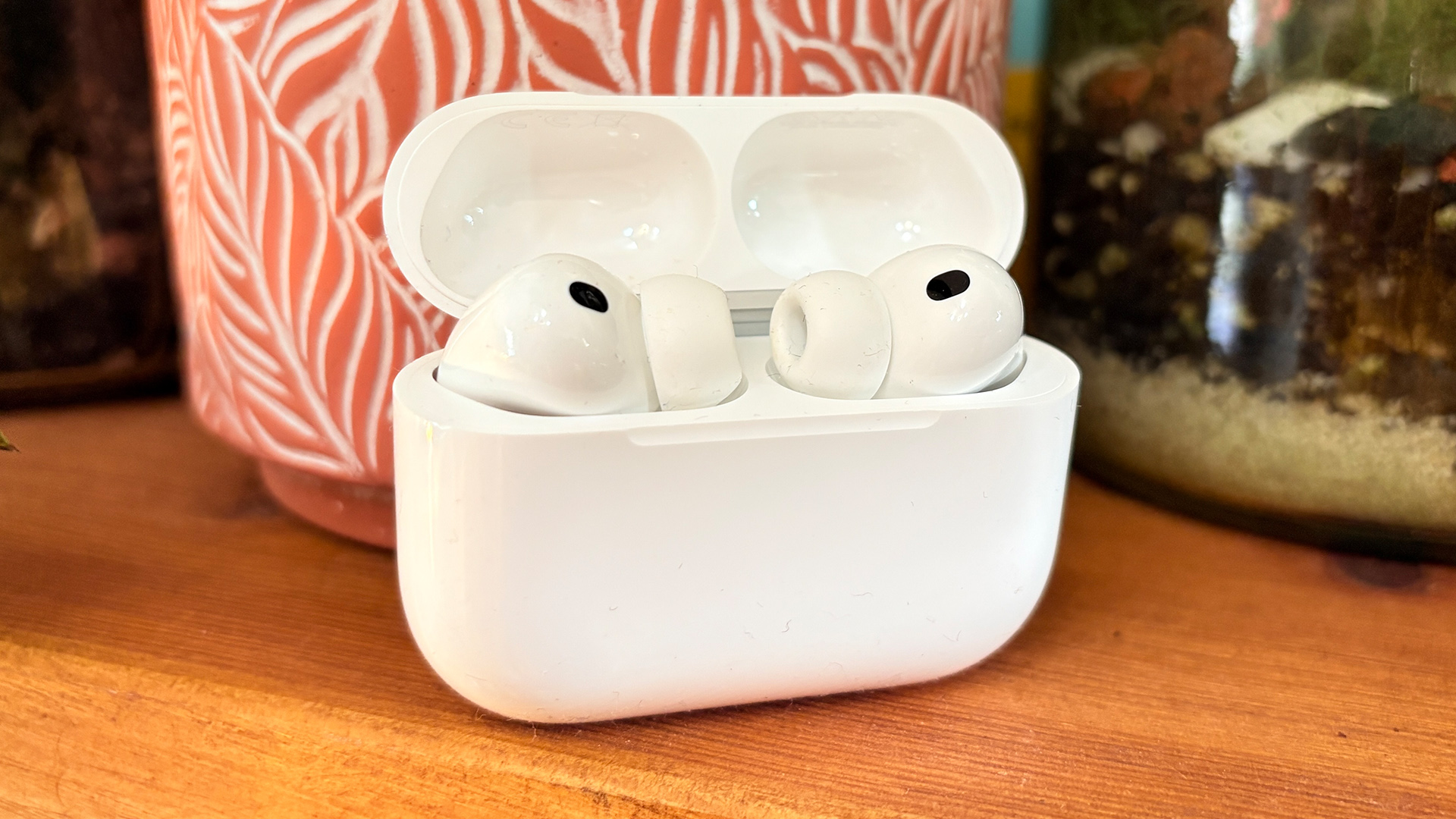
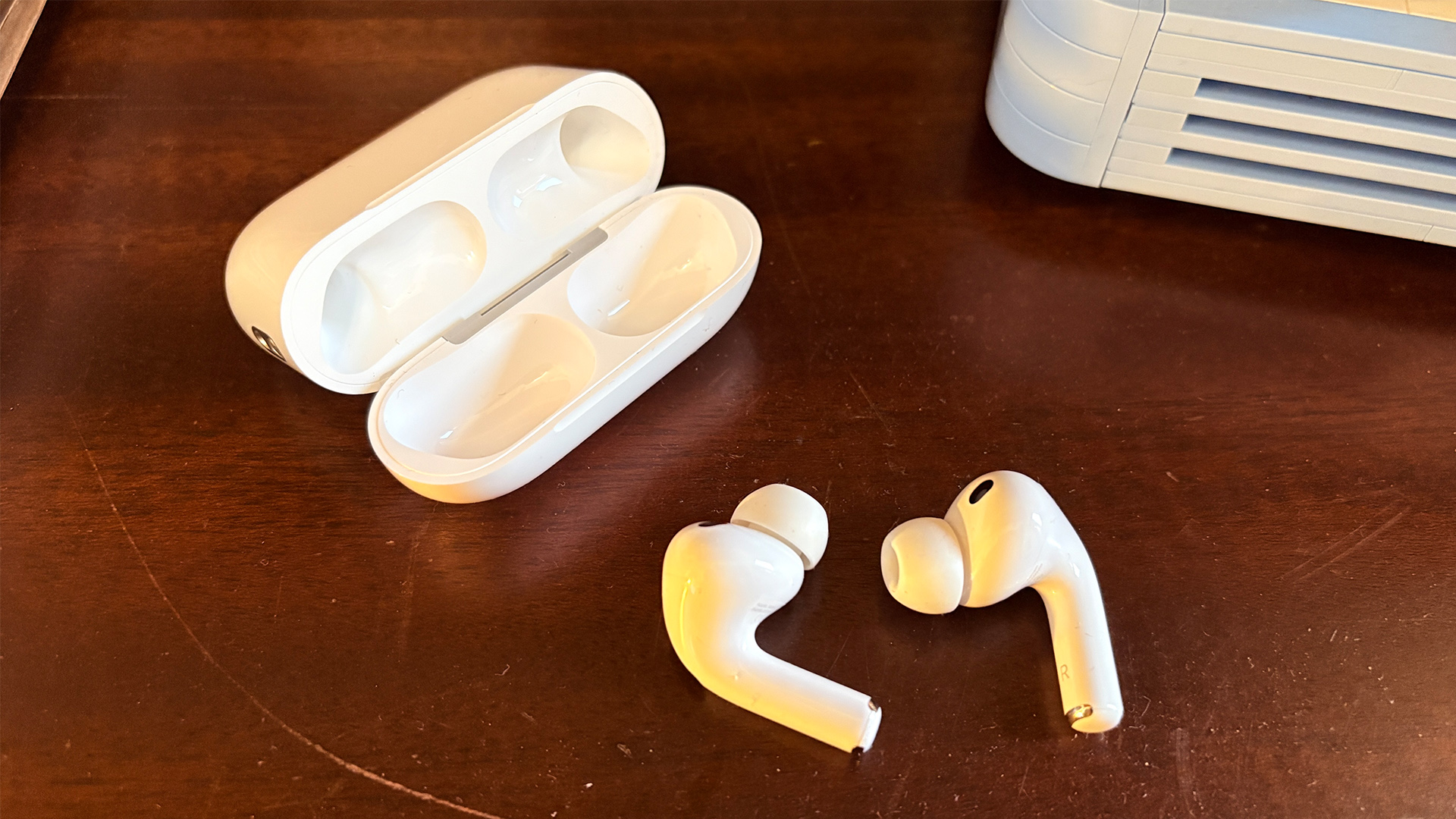
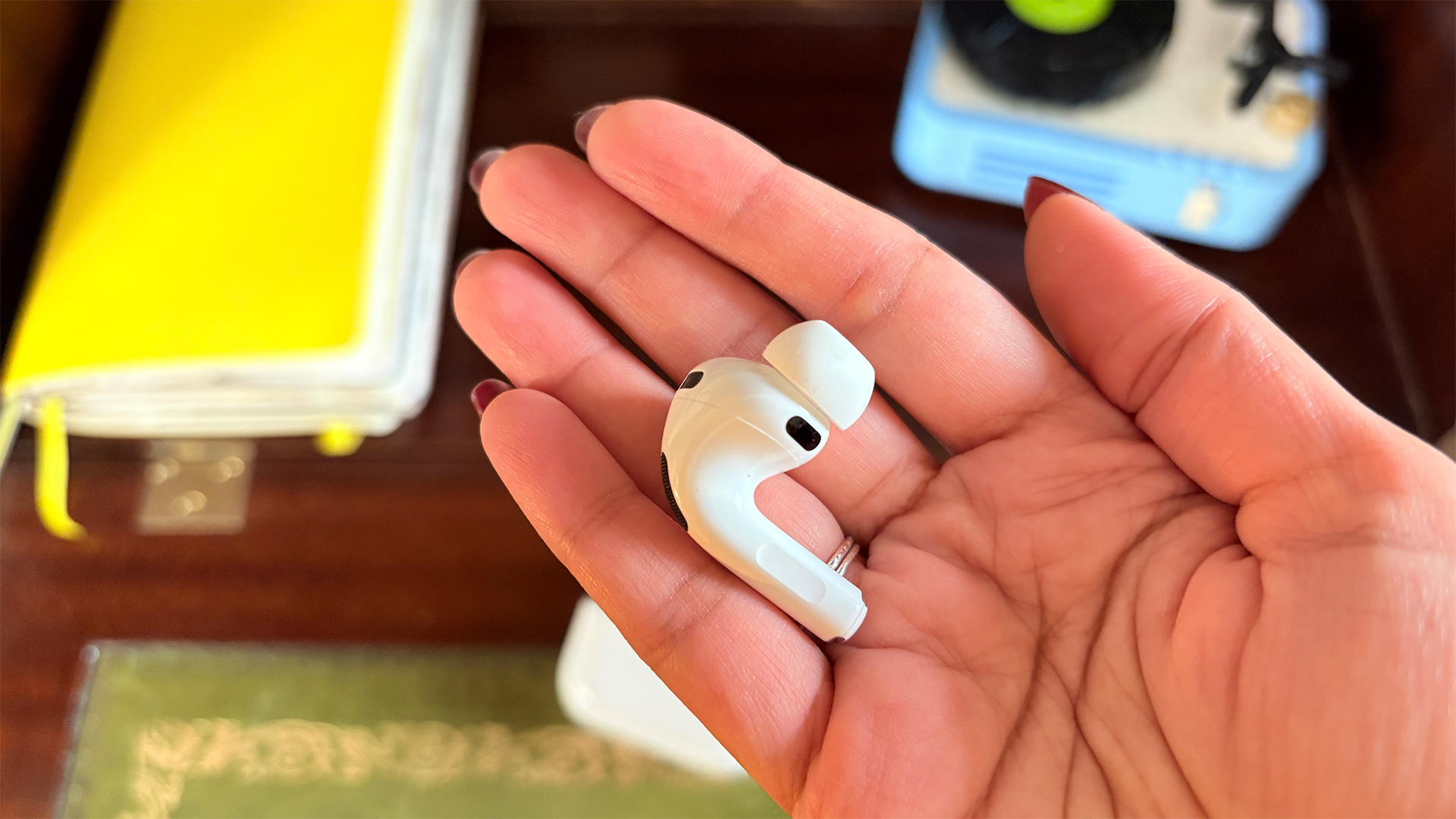
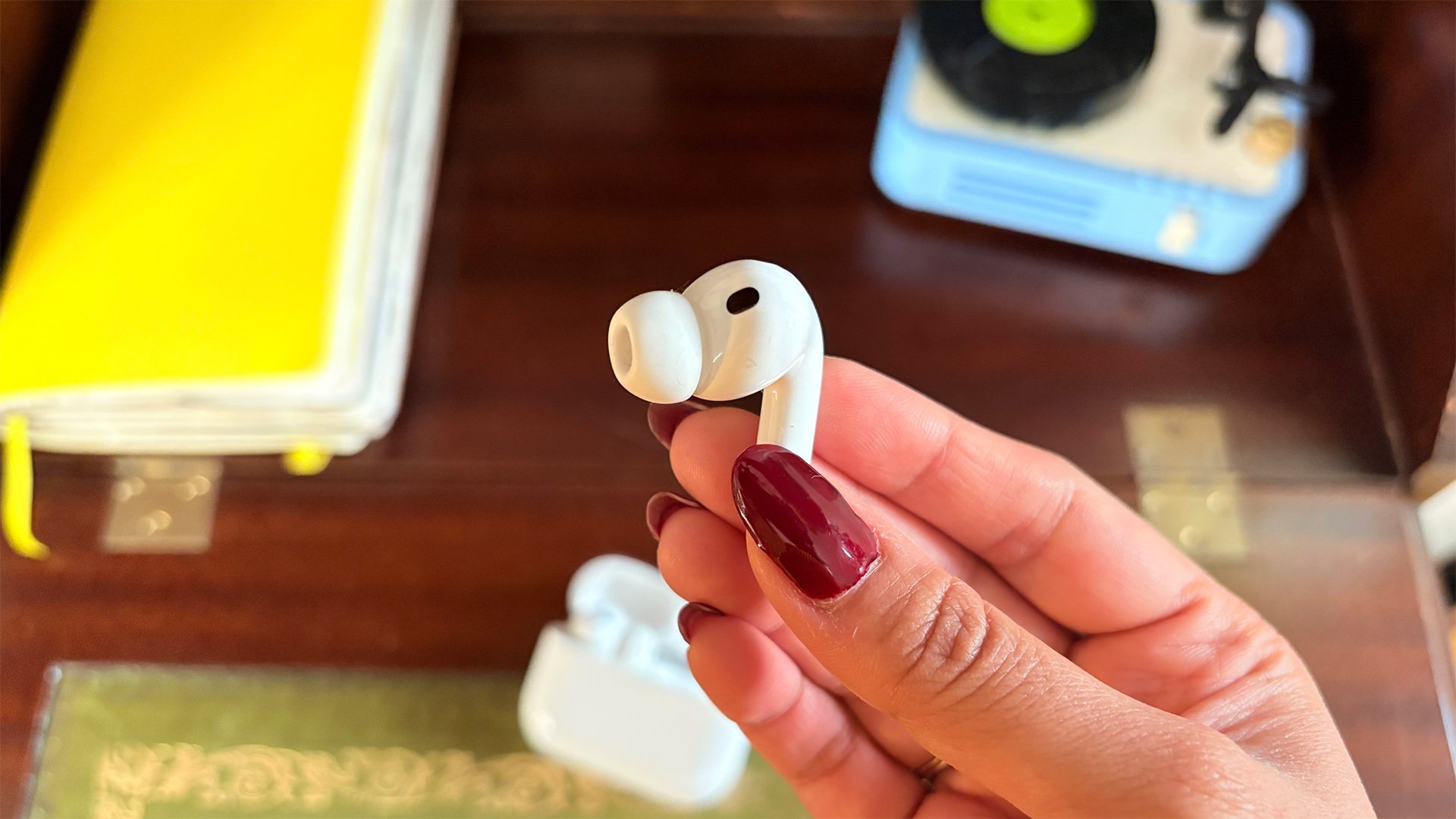
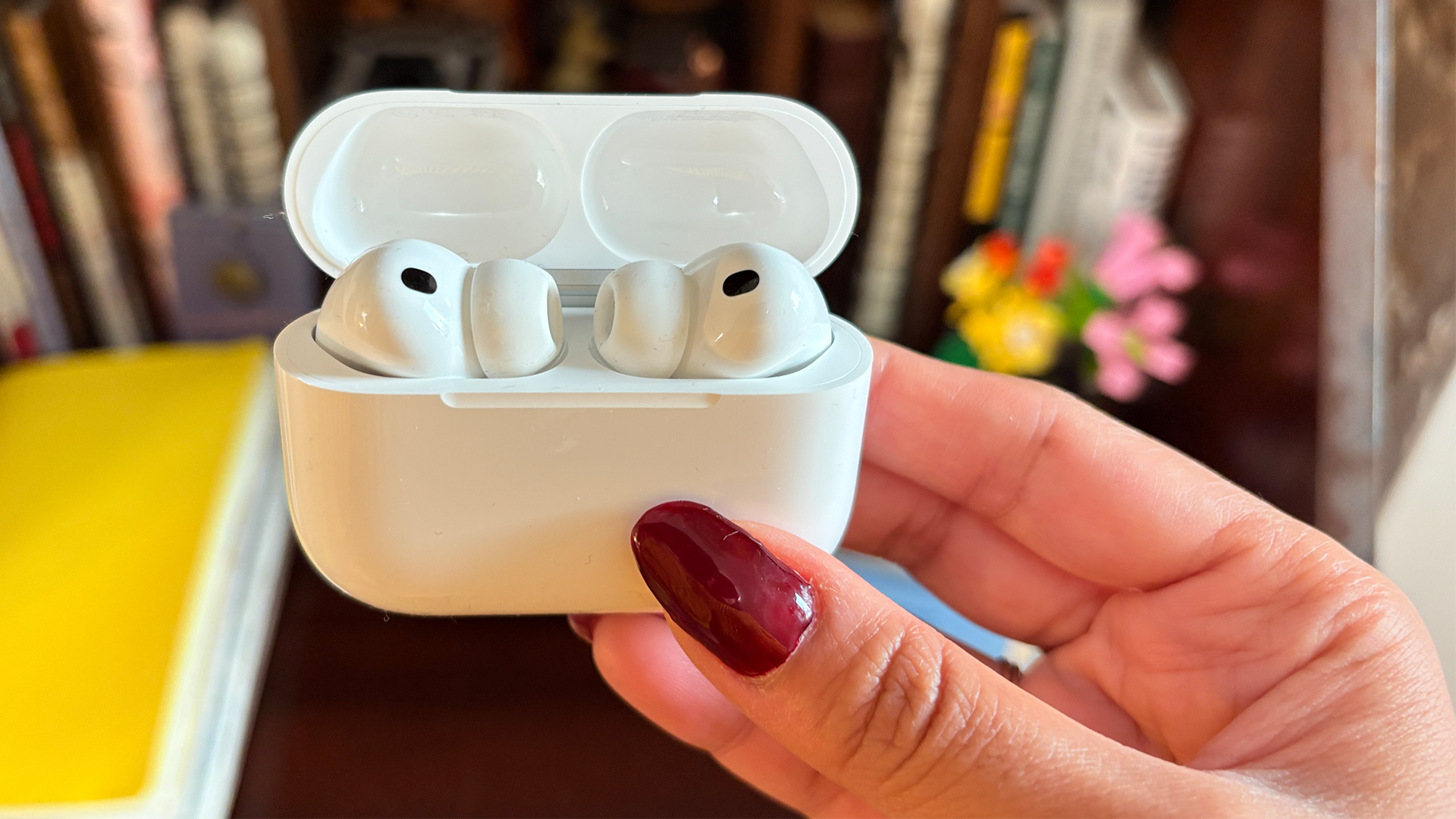
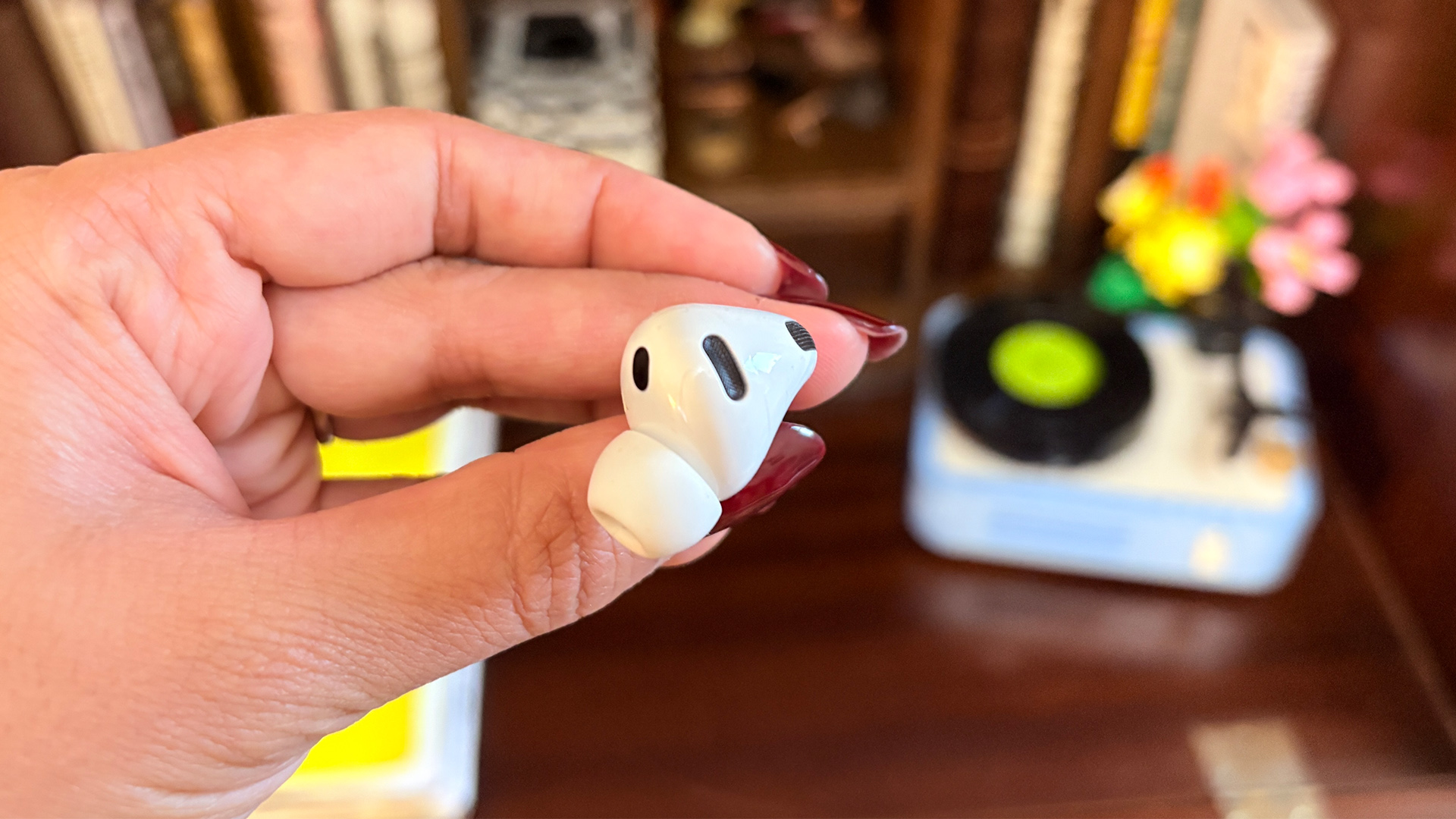
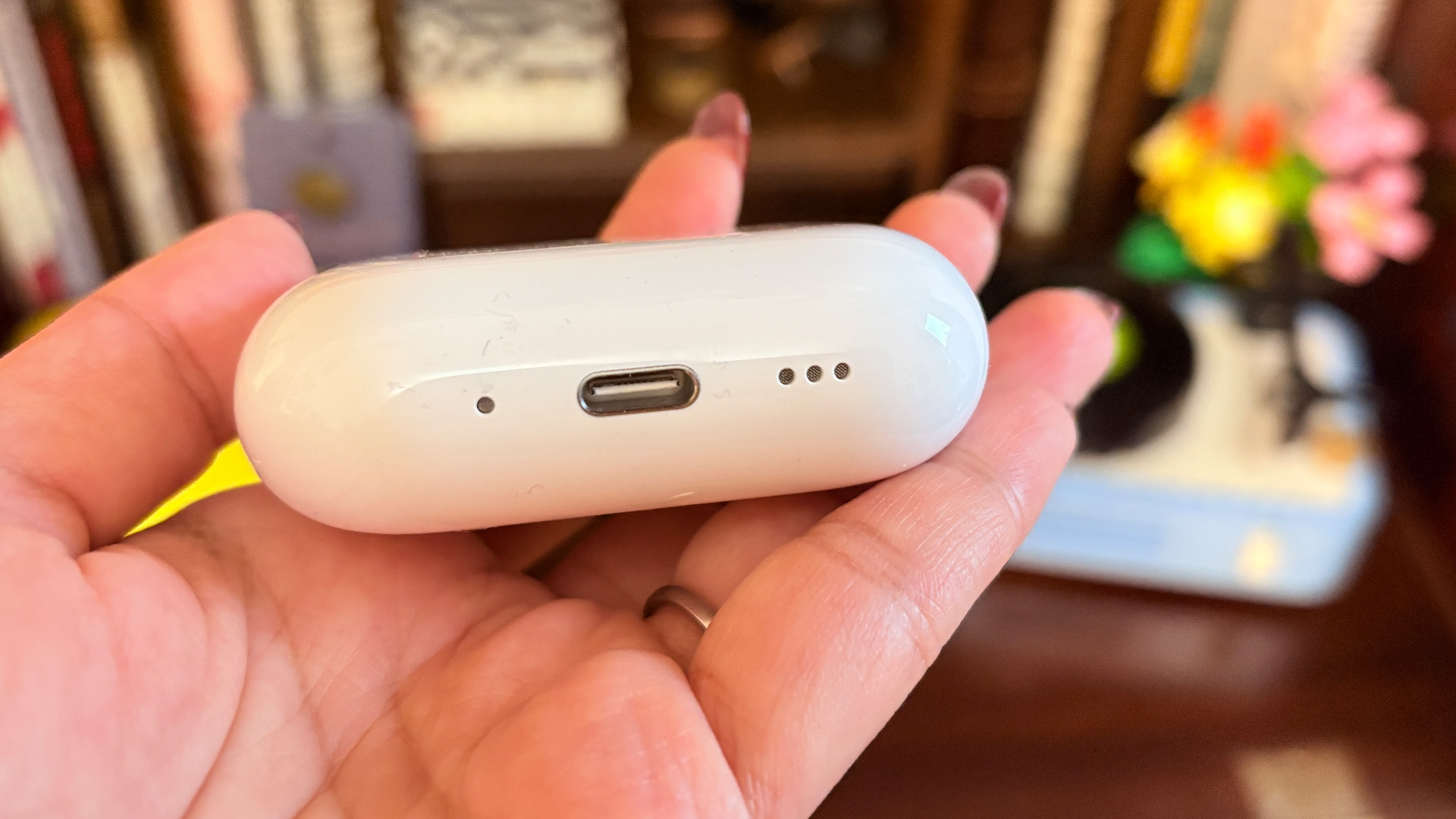
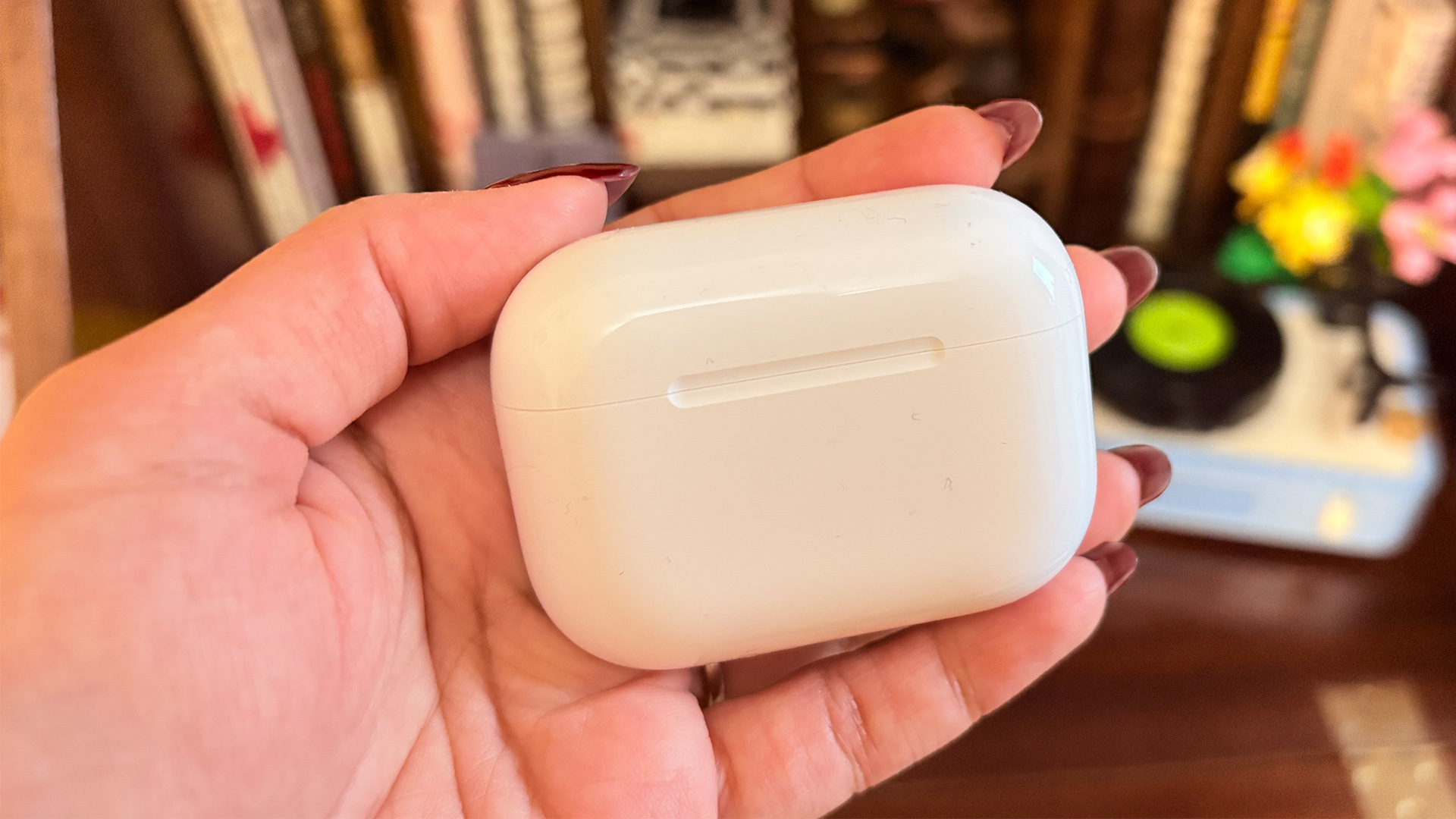
Specifications
Reasons to buy
Reasons to avoid
The Apple AirPods Pro 3 are the latest premium wireless earbuds from the iconic tech firm. And based on our testing, they are the company’s best to date, both from an audio, ANC, and call quality perspective.
A big factor for the final point is subtle changes to the earbuds' design that radically improve passive and active noise cancellation. These include new ultra-low noise microphones and the new foam-infused eartips designed to help better block out background noise.
The result is a pair of fantastic earbuds that offer some of the best mic quality you’ll get, hence our reviewers’ glowing conclusion: “call quality is clear, detailed and sounds natural, with no harshness or any of that over-processed quality to our voices that we tend to experience with many earbuds.”
If that wasn’t enough to tempt you, the Pro 3 also delivers in the main area we care about: audio quality.
Thanks to improvements to their tuning and drivers, the buds offer noticeably better audio than their predecessors. Whether it was bopping pop or thundering classical arrangements, the AirPods 3 Pro delivered a spacious, powerful, dynamic sound that delighted our reviewers throughout testing.
Read the full Apple AirPods Pro 3 review
Best Samsung earbuds
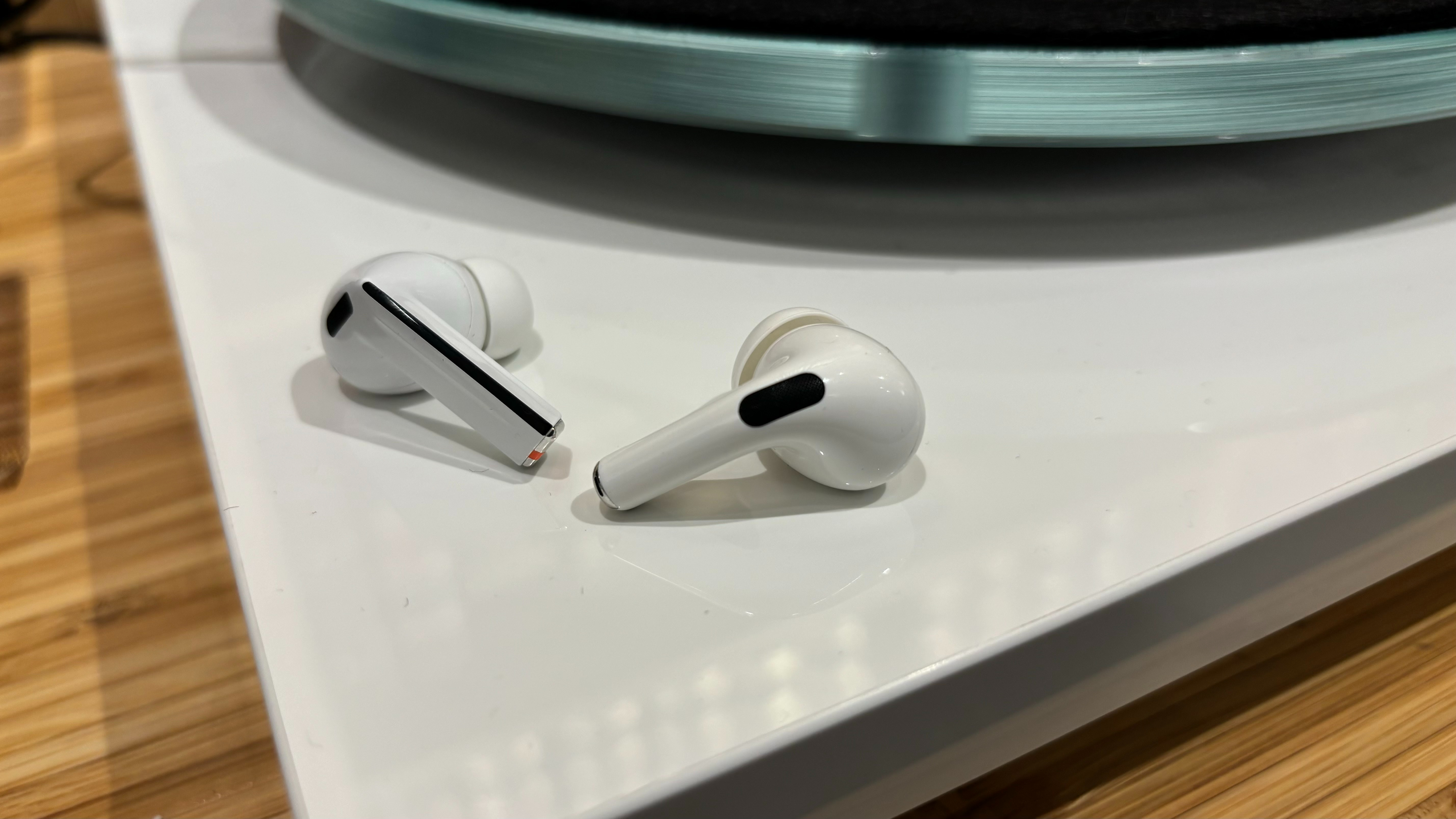
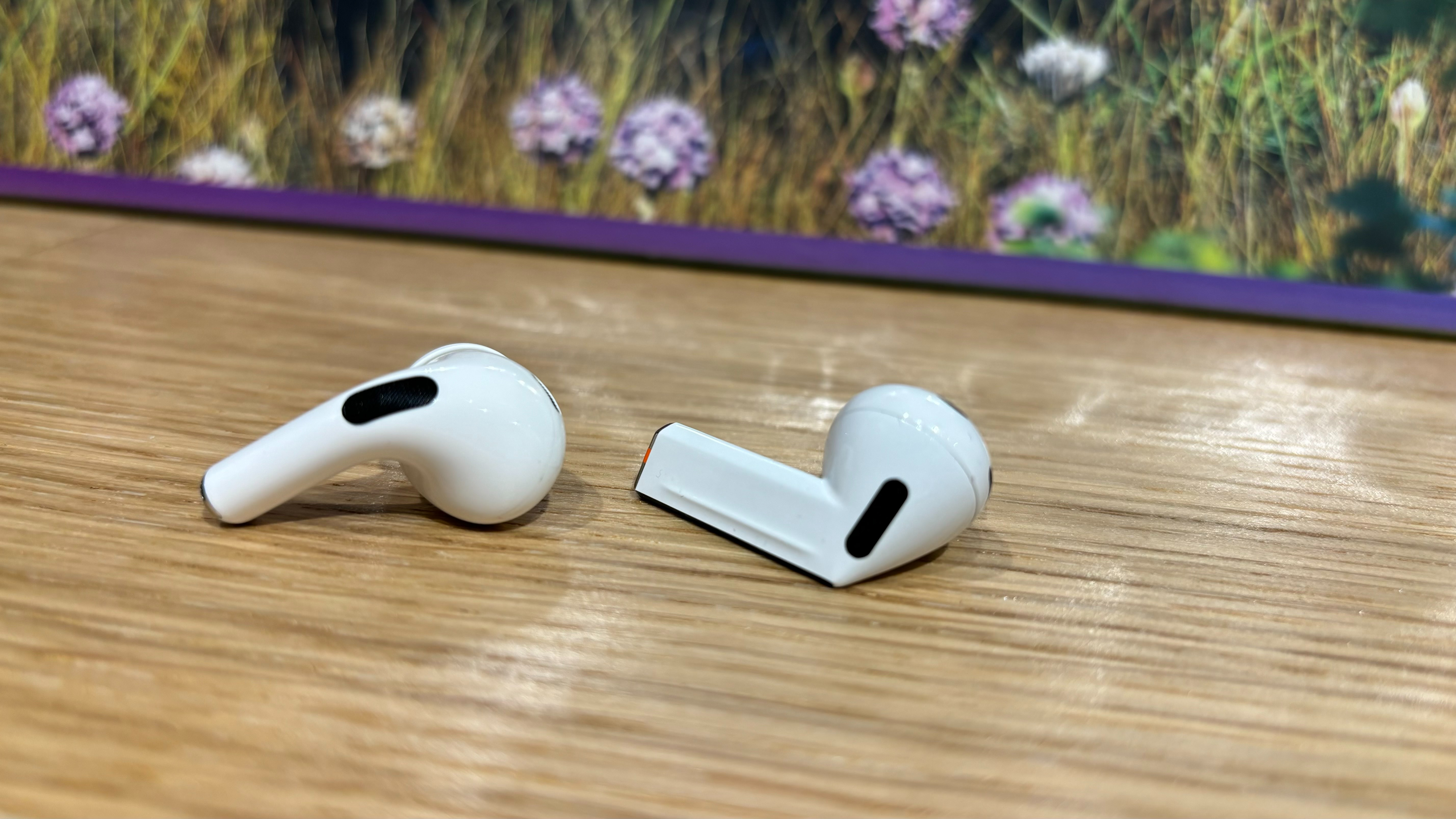
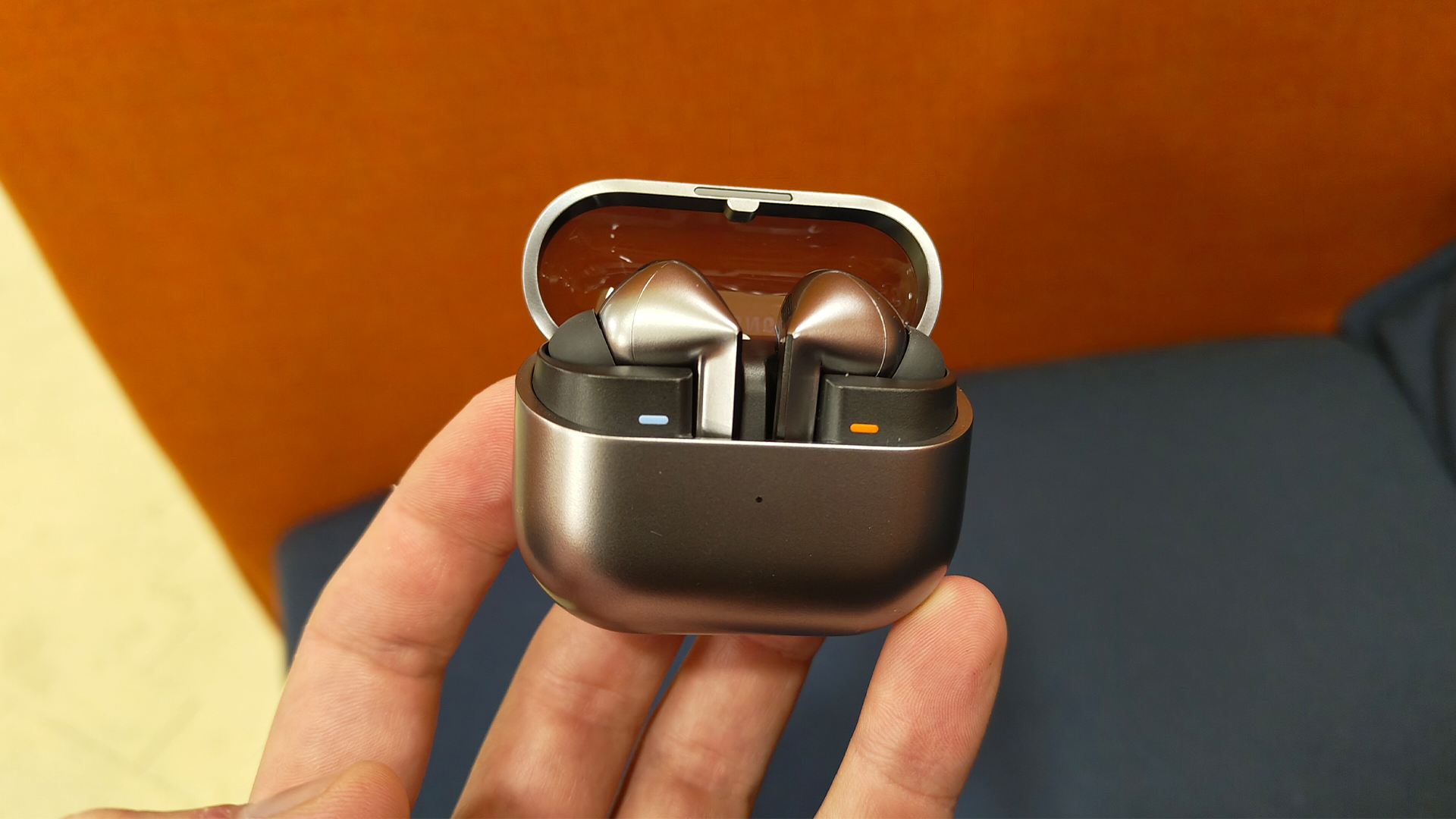
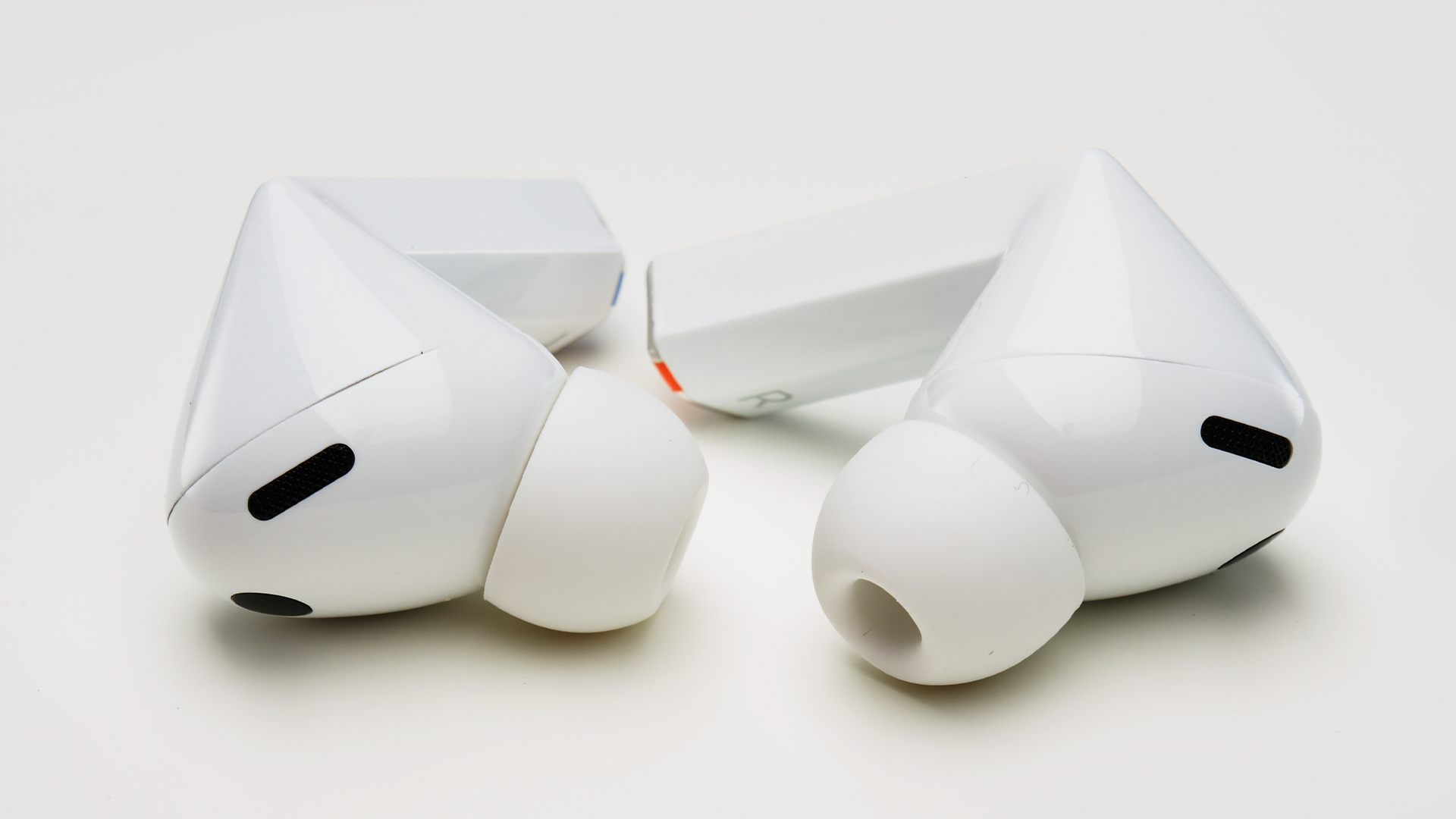
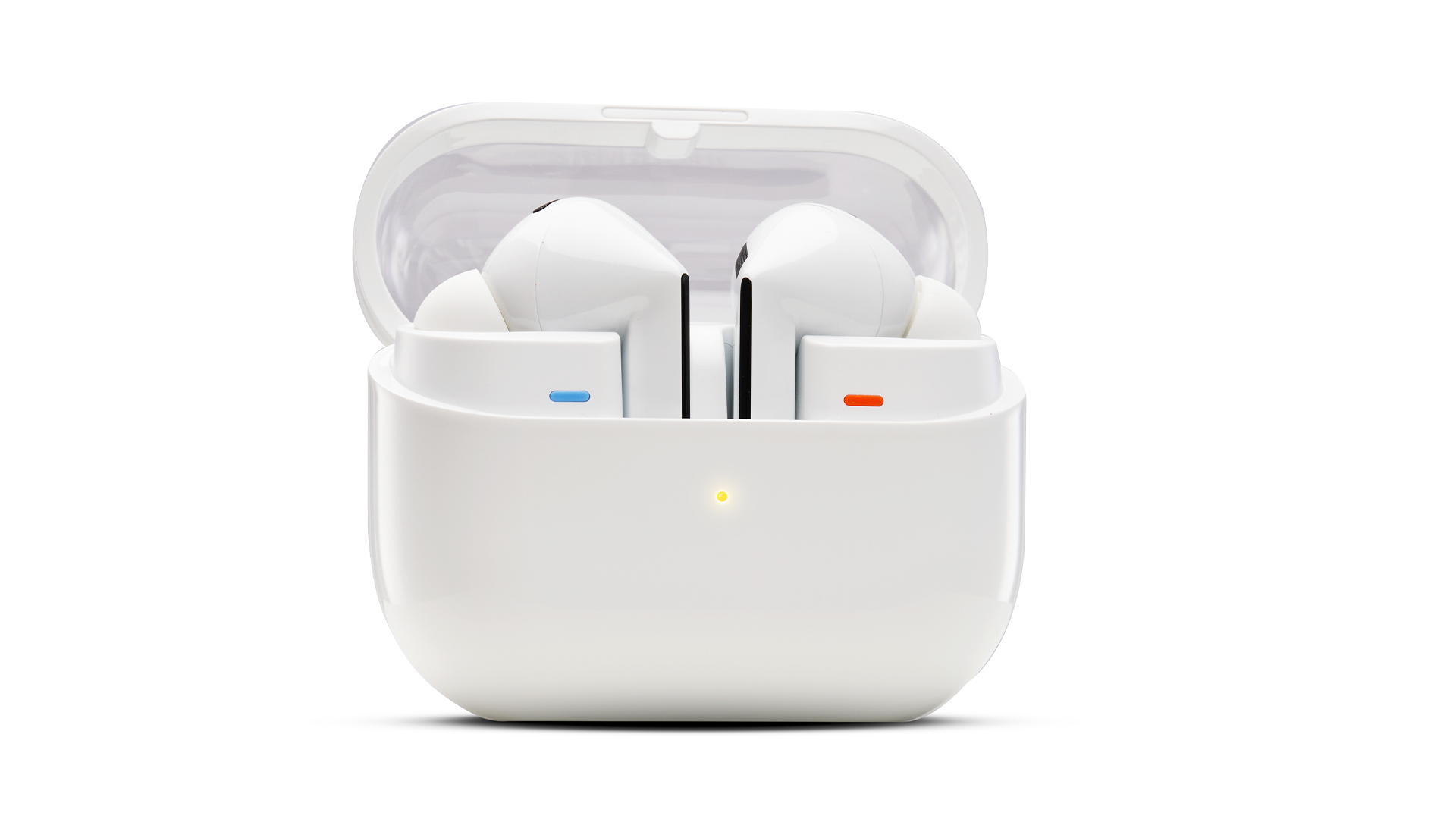
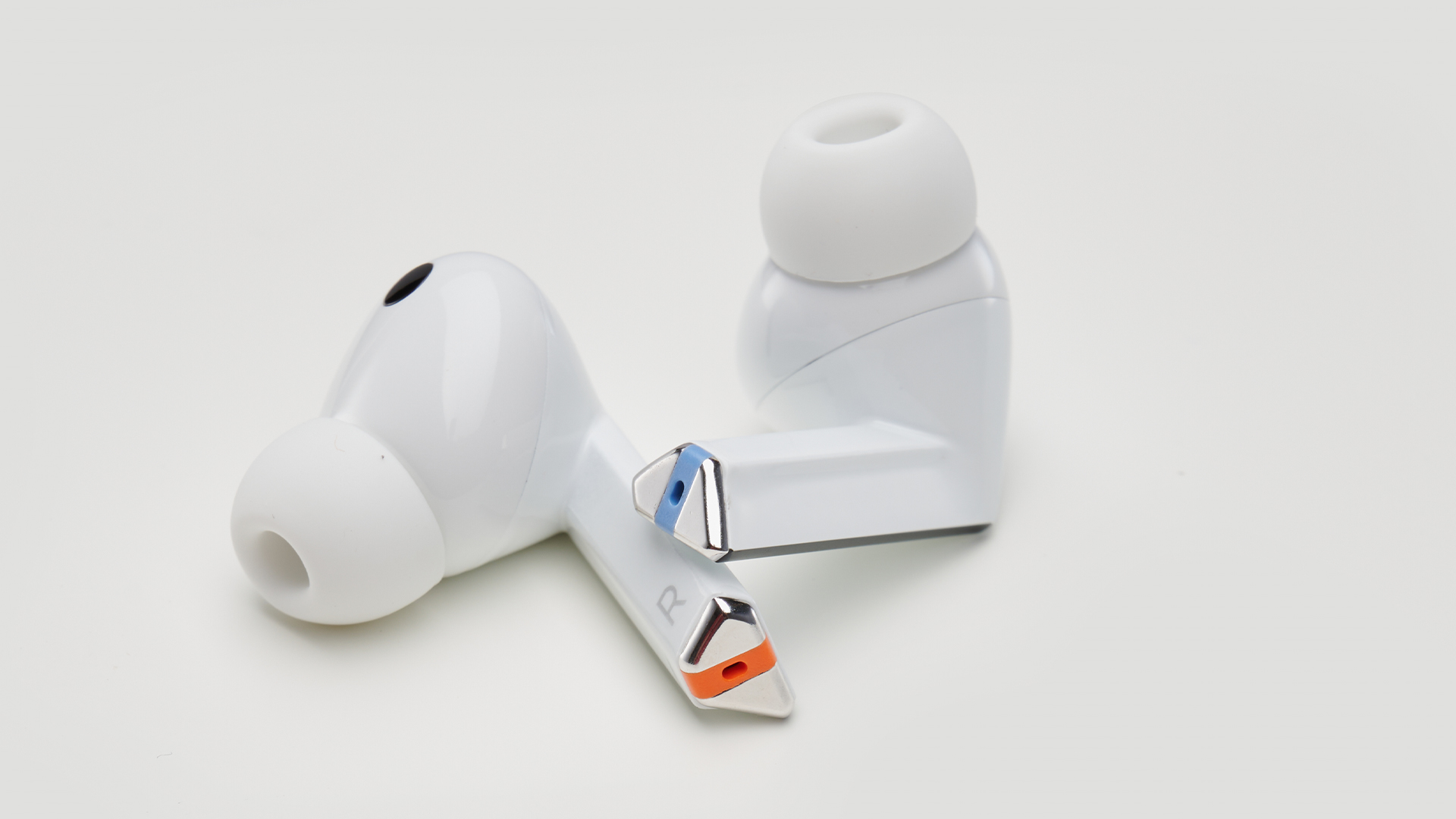
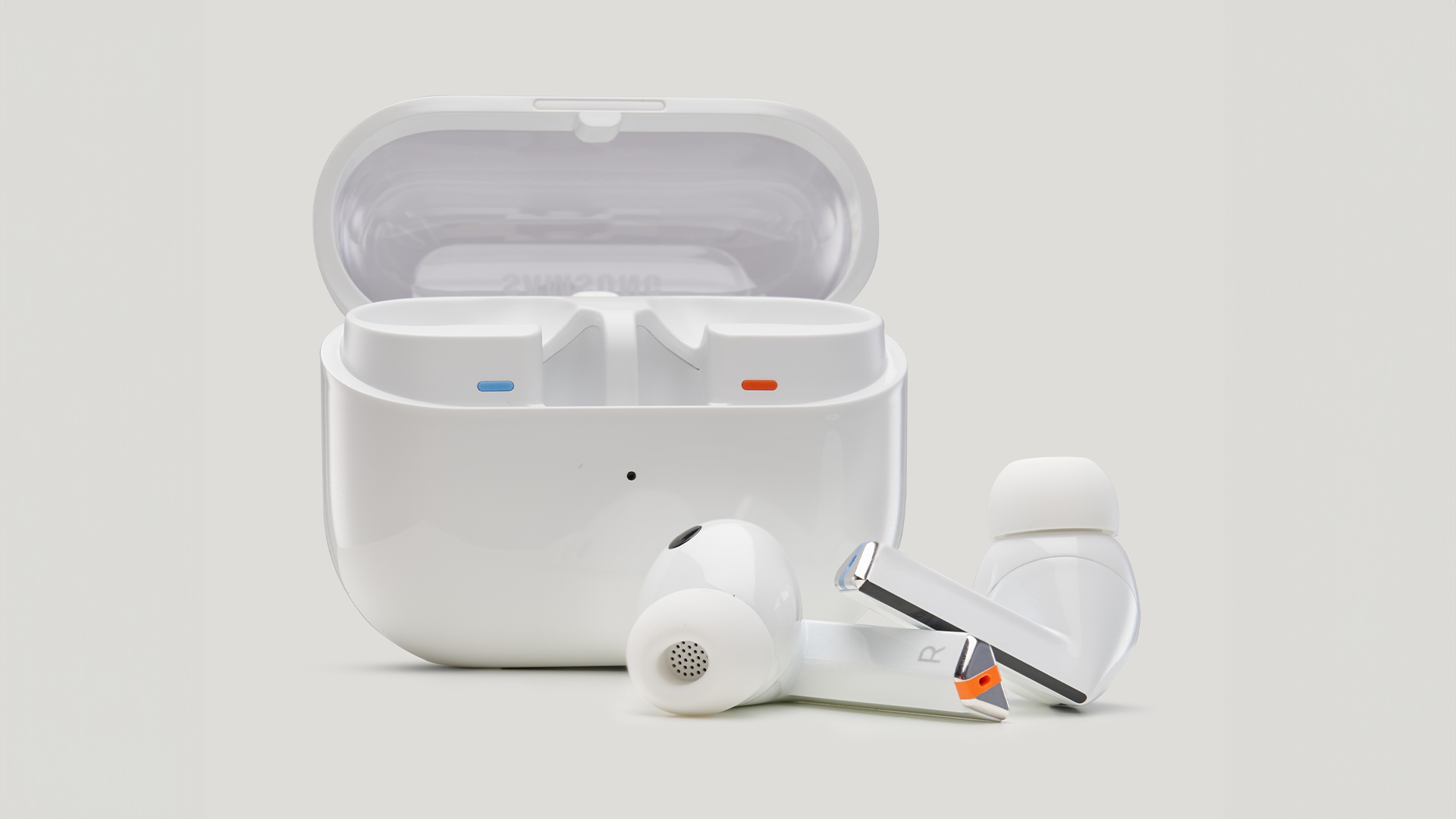
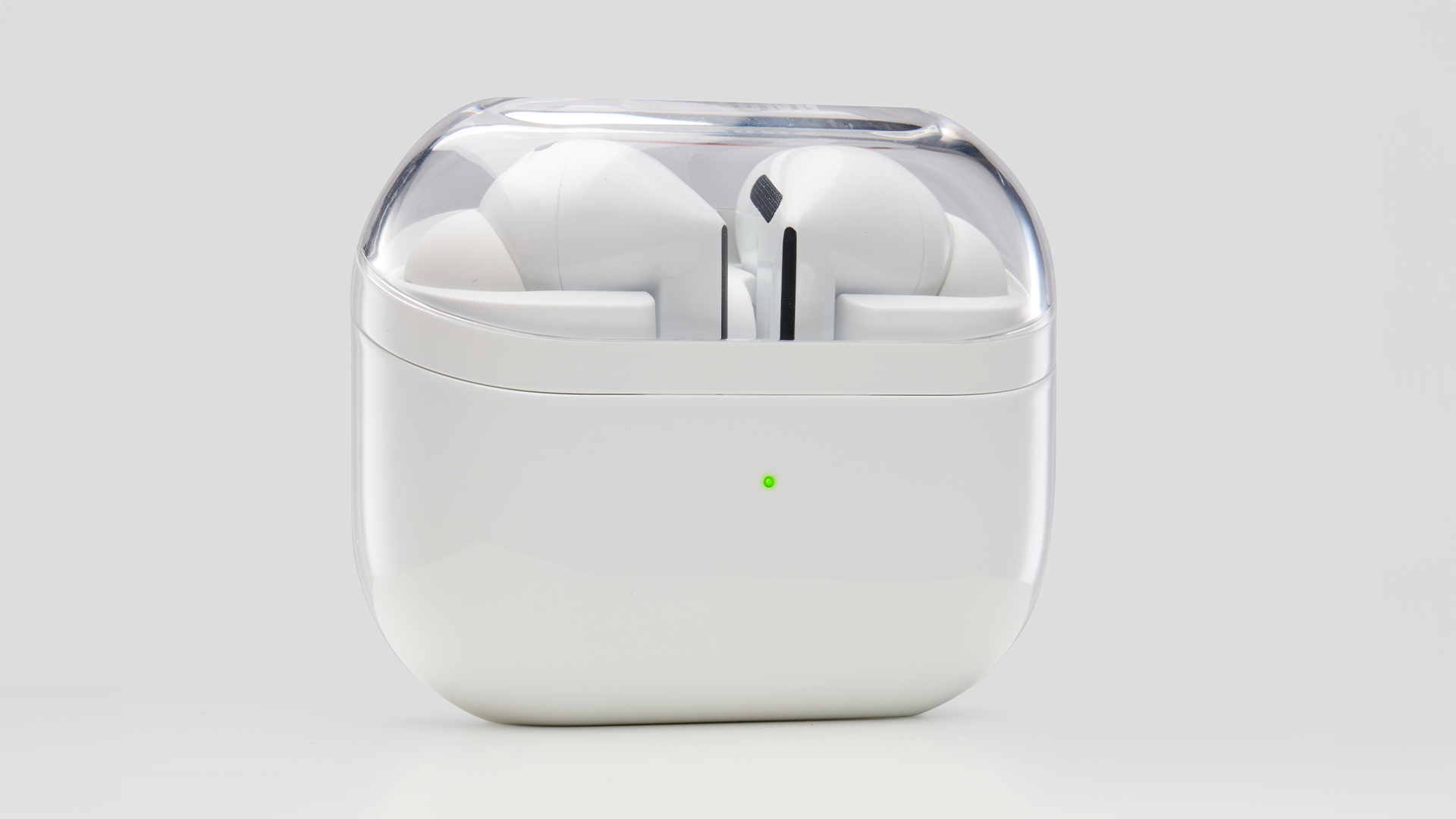
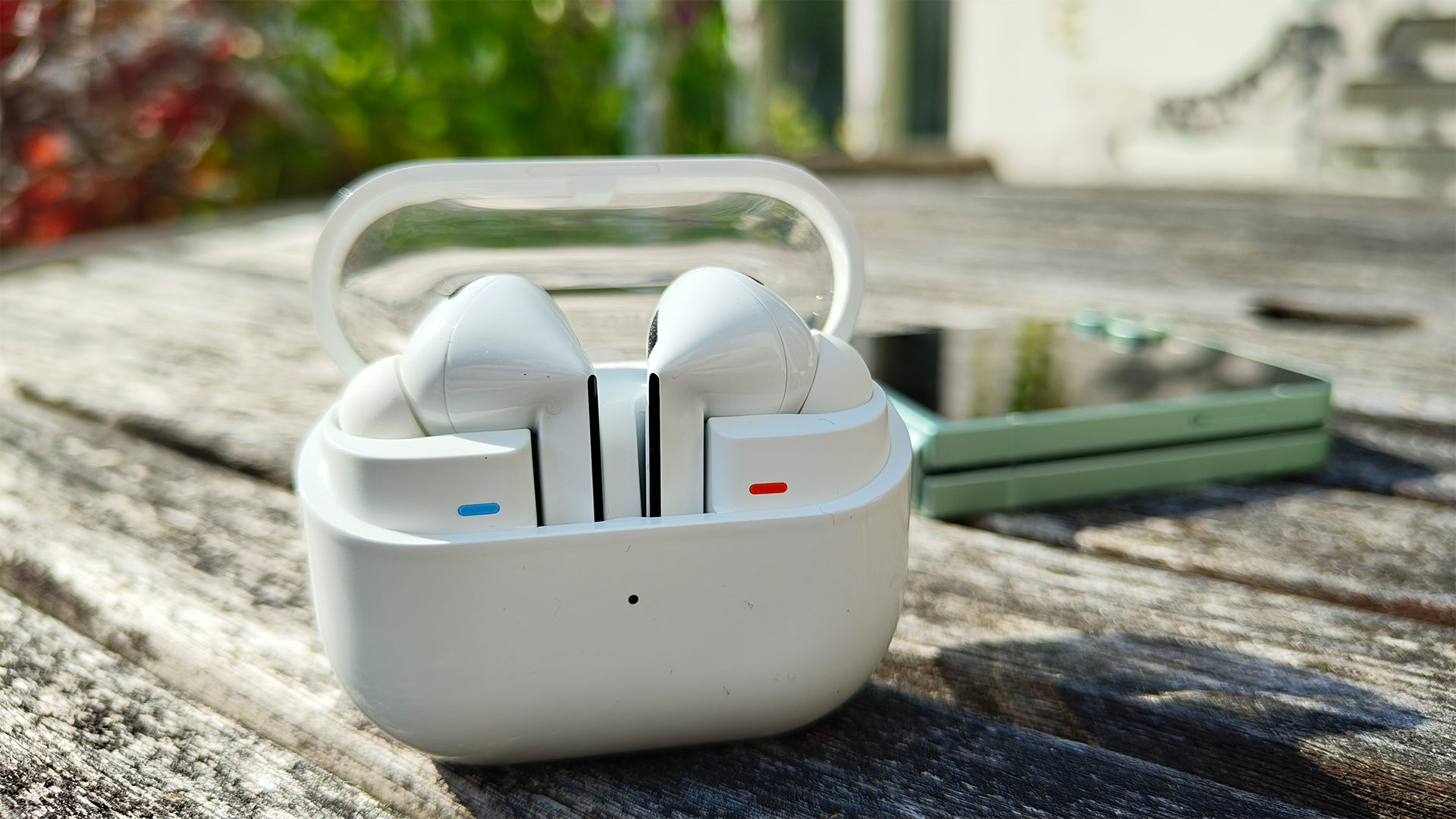
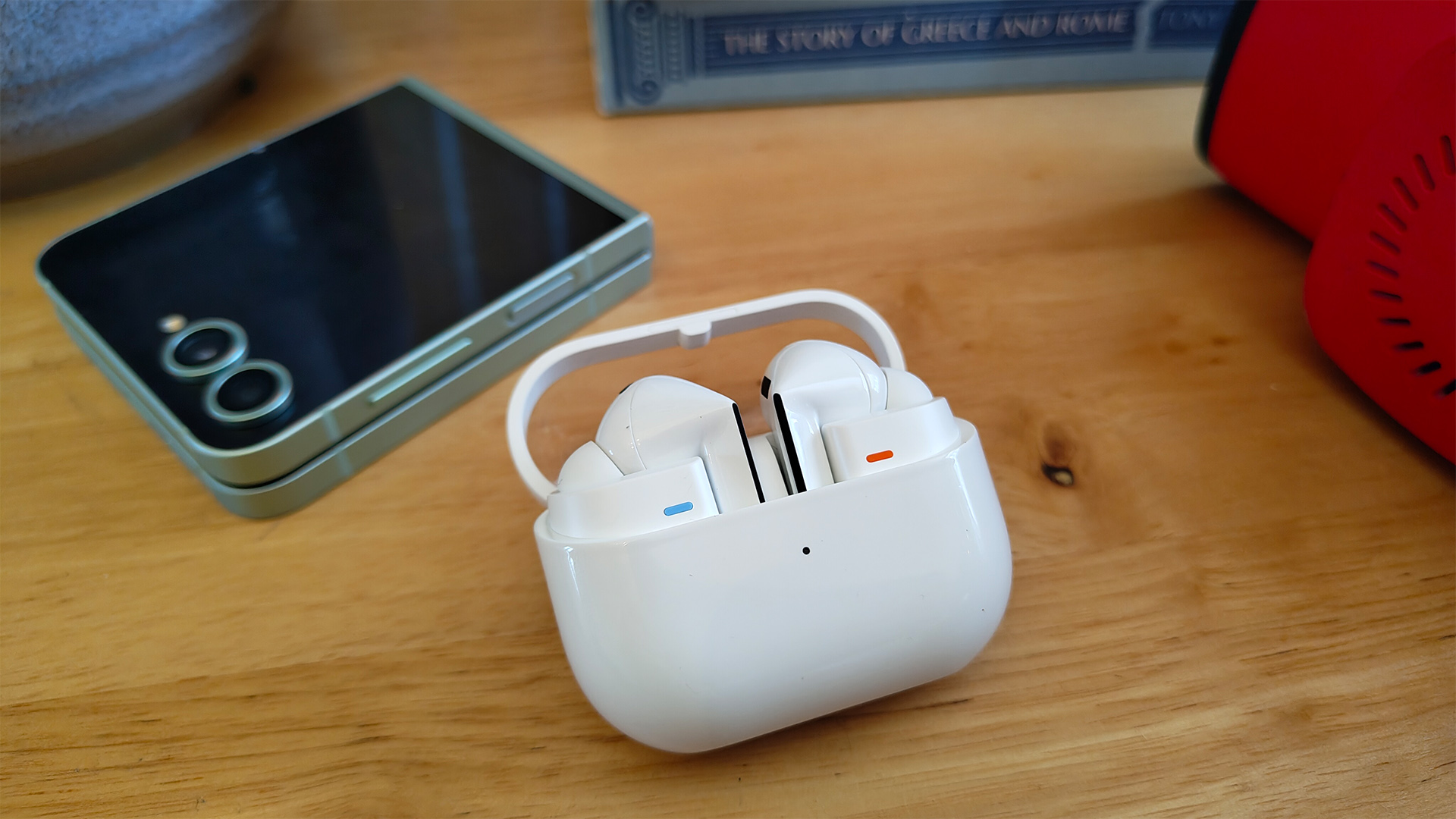
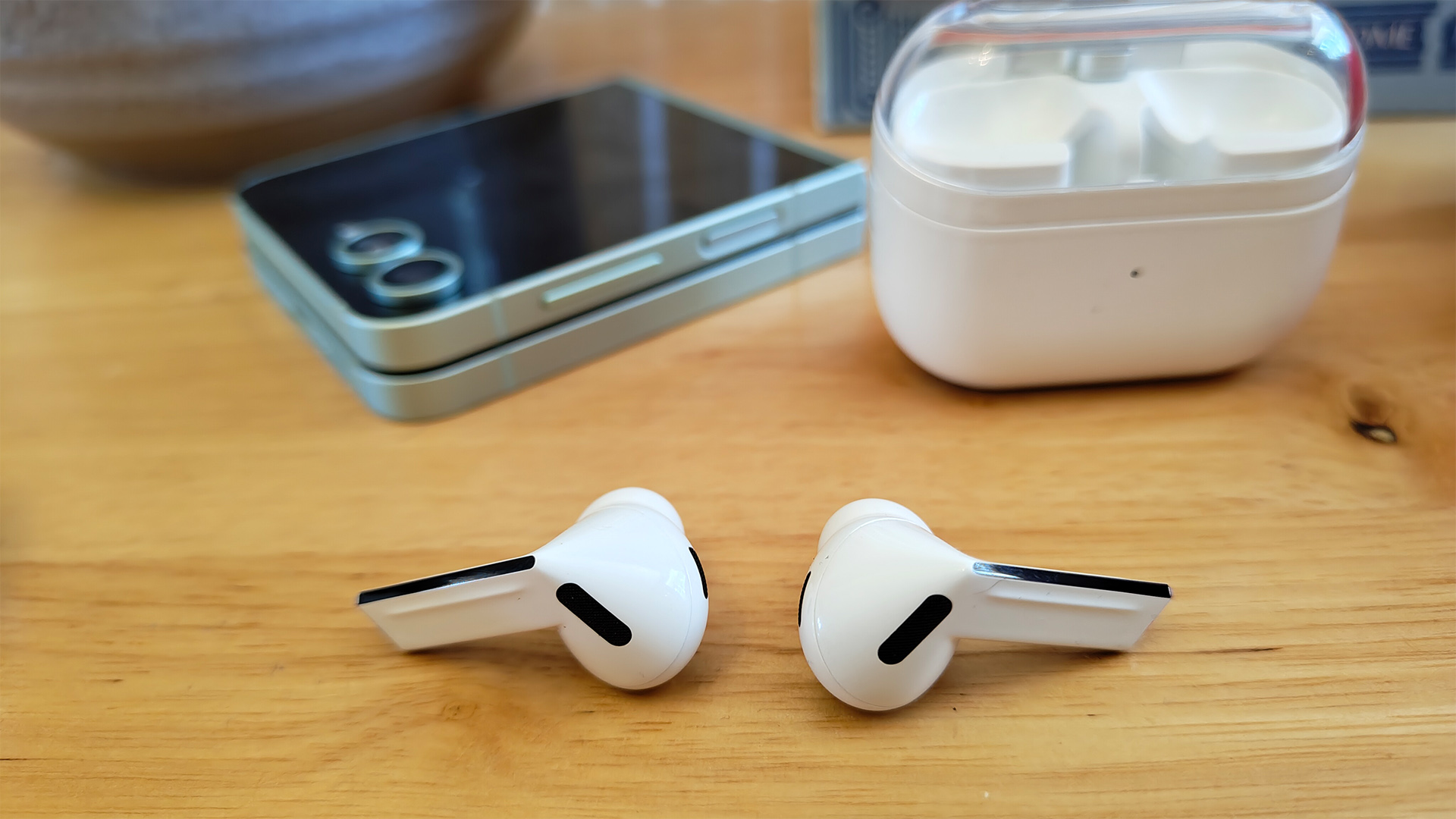
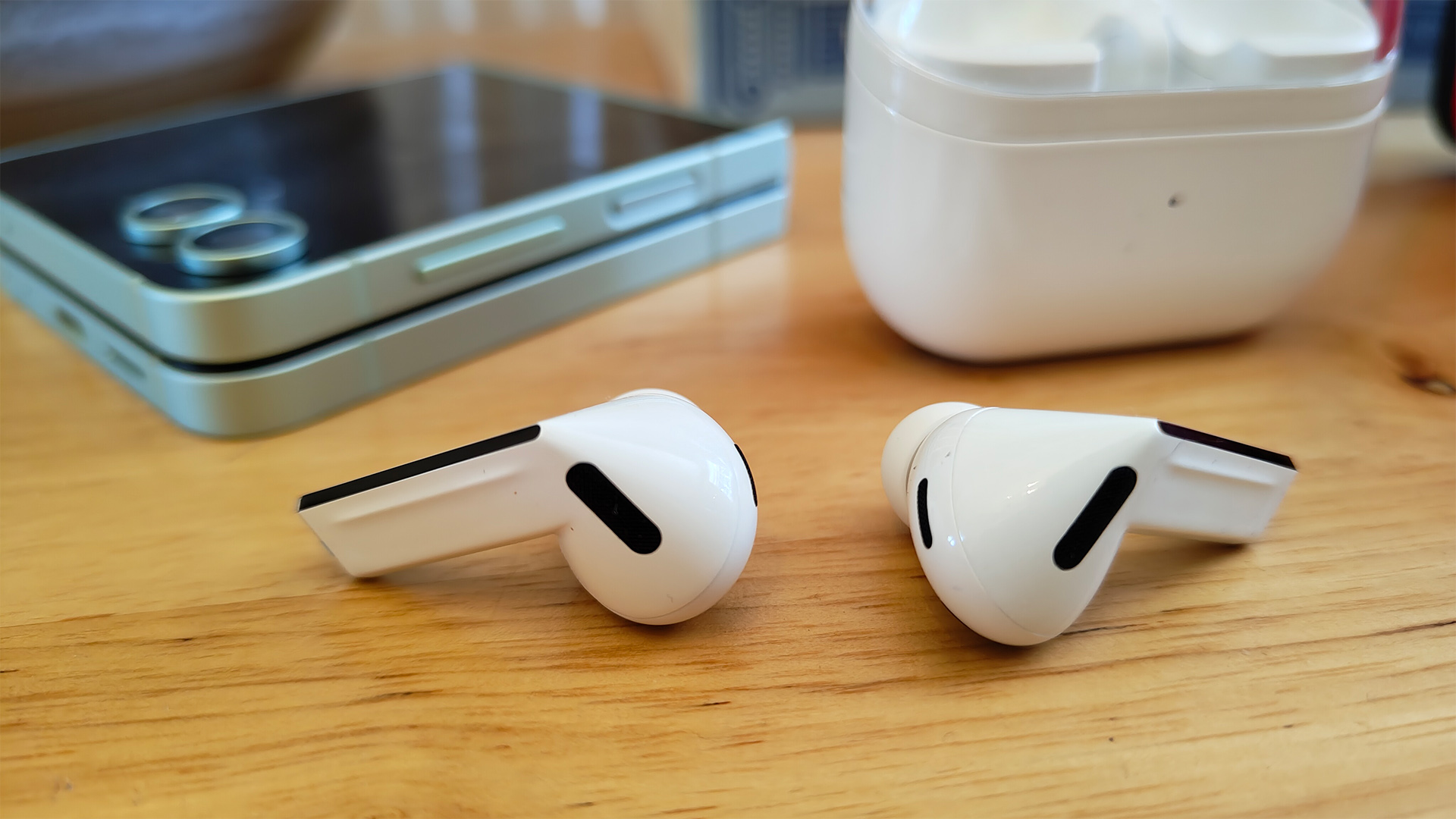
Specifications
Reasons to buy
Reasons to avoid
The Galaxy Buds 3 Pro are Samsung’s direct answer to the Apple AirPods Pro, and in many ways they follow the same formula. They include everything from Samsung’s take on Spatial Audio and head tracking to new advanced active noise cancellation. The in-ear, tipped earbuds even look similar from a distance.
The unique selling point that earns them a place in this list, is their excellent call quality. Samsung has put a lot of effort designing the Galaxy Buds 3 Pro to offer brilliant call as well as audio quality. Key measures include 15kHz of bandwidth specifically for calls as well as advanced voice-tracking AI algorithms designed to help improve call audio, even in difficult conditions.
Testing them in our viewing rooms with varying levels of ambient noise and the real world, we found the buds uniformly delivered excellent results. Hence why our reviewers’ reported: “the new buds sound solid, clear, natural and with pleasing levels of vocal depth during a team Zoom meeting.”
For Samsung fans they’re a particularly great choice as on top of reliable audio quality, they also include support for Samsung's proprietary SSC UHQ hi-res codec. This allows for transmission of up to 24-bit/96kHz music files over Bluetooth when the buds are paired with a modern Galaxy Phone as their source.
The only downside is that, like the AirPods you need a Samsung phone to unlock all their best features. This, plus their high price is the main reason we only recommend them to Samsung fans/owners in this list.
Read our full Samsung Galaxy Buds 3 Pro review
Best for ANC
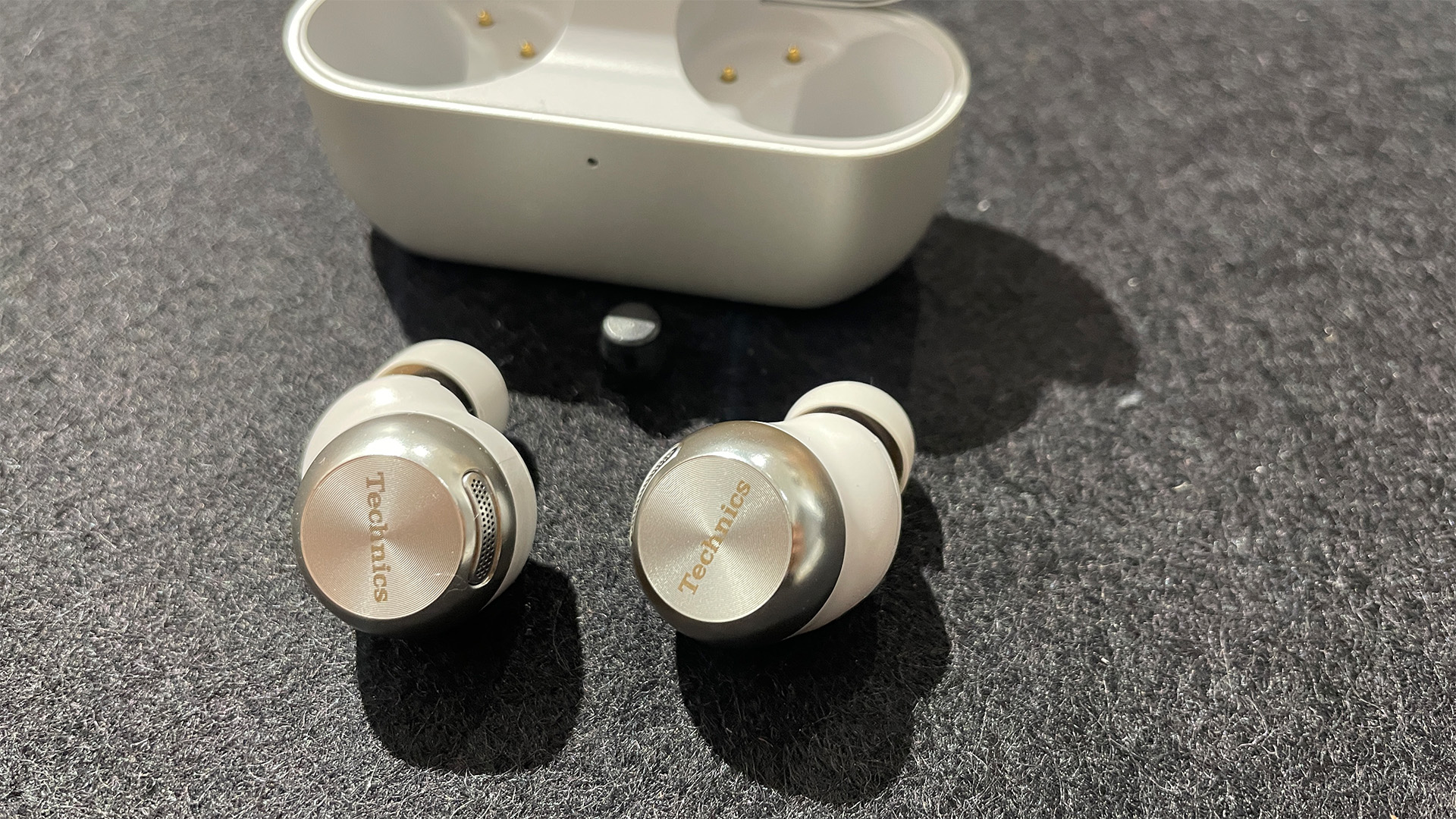
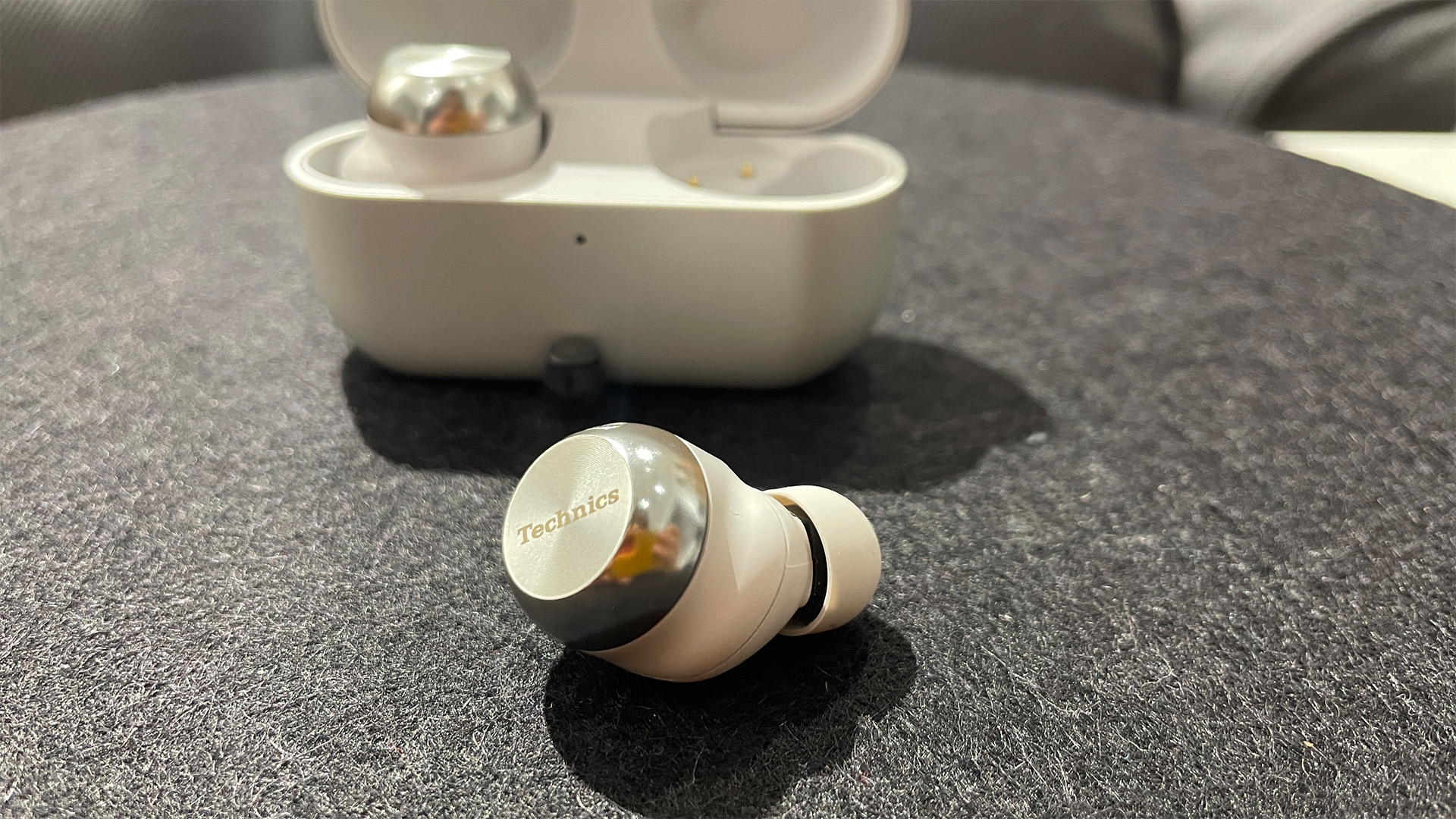
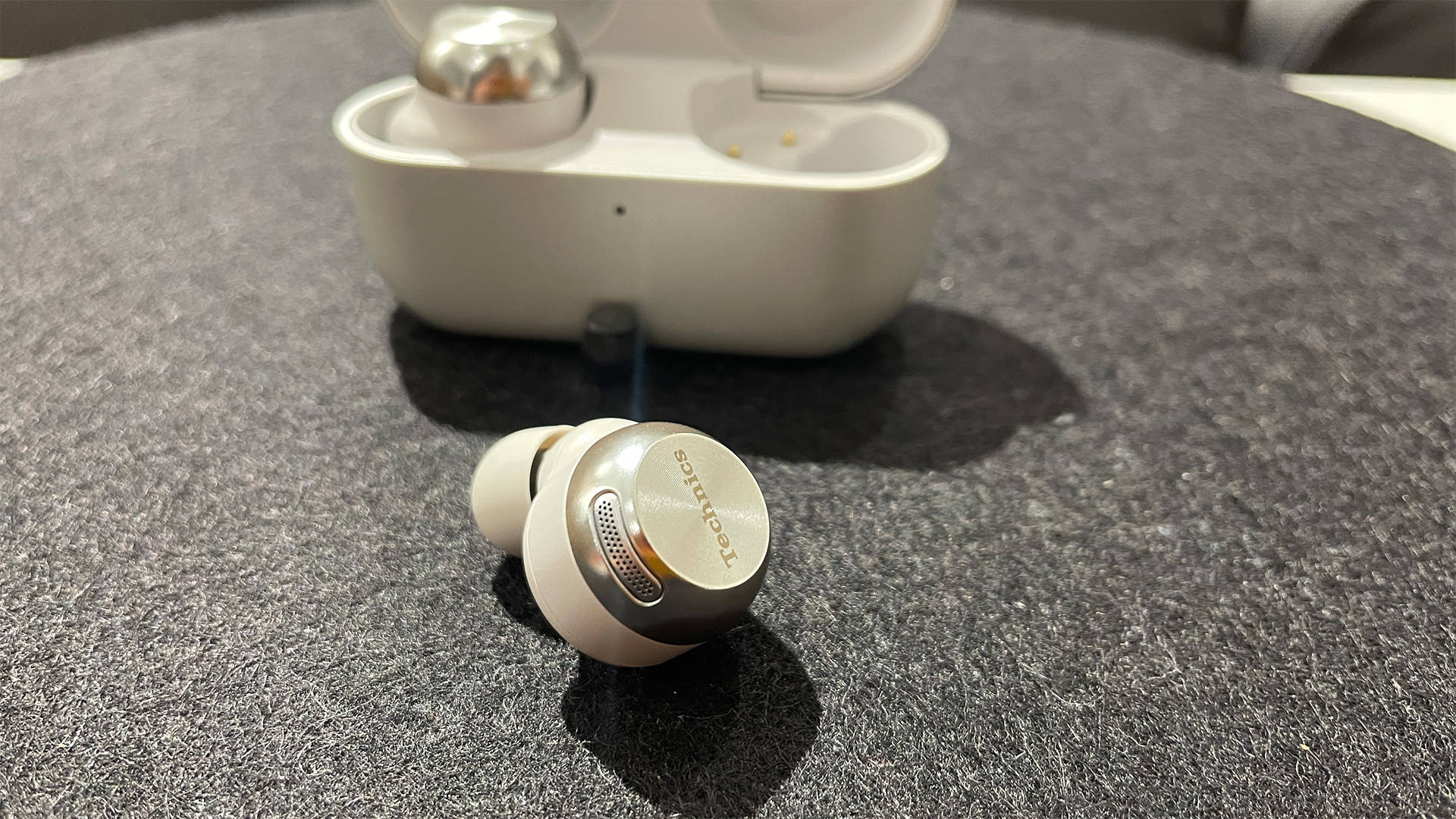

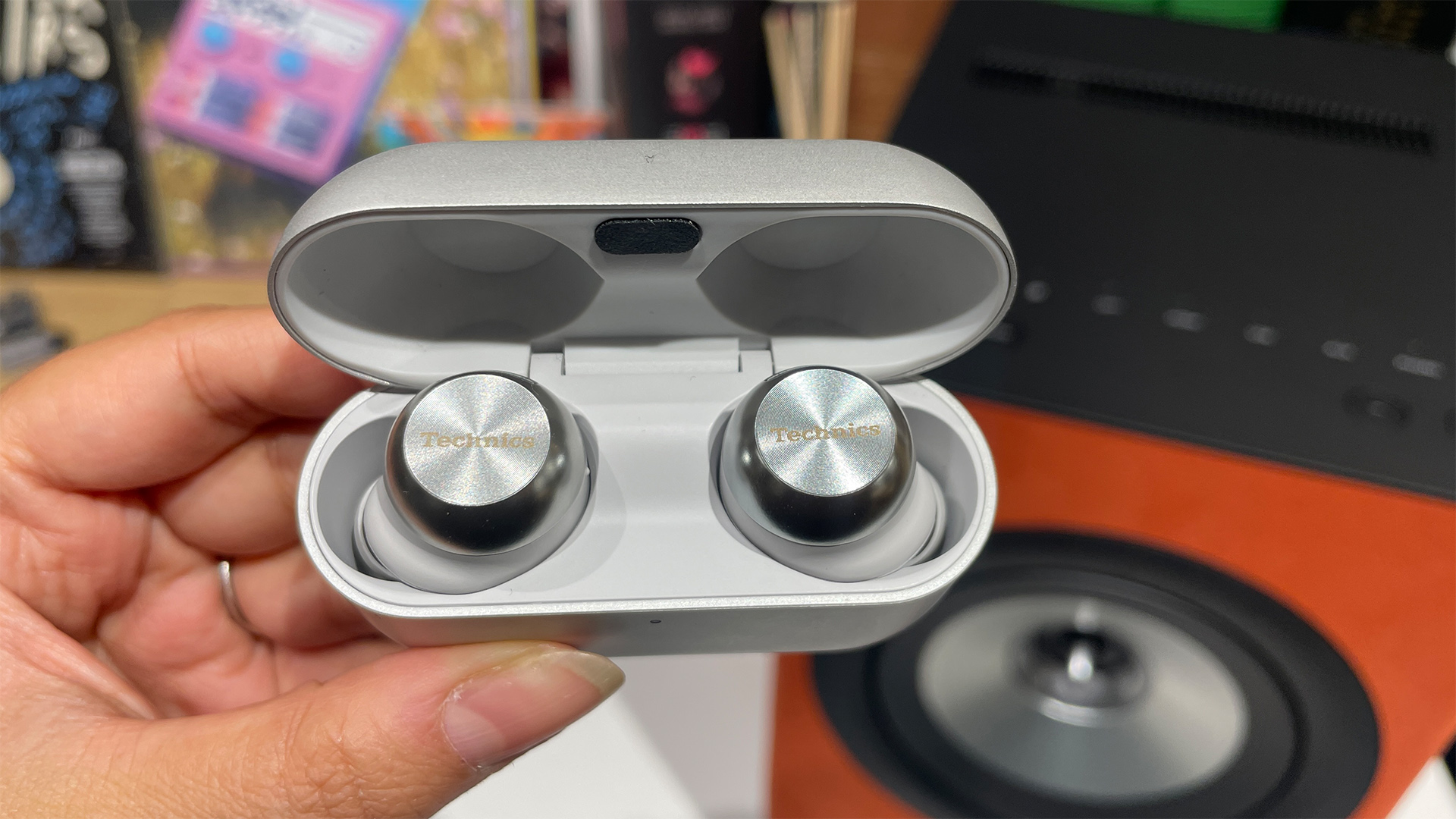
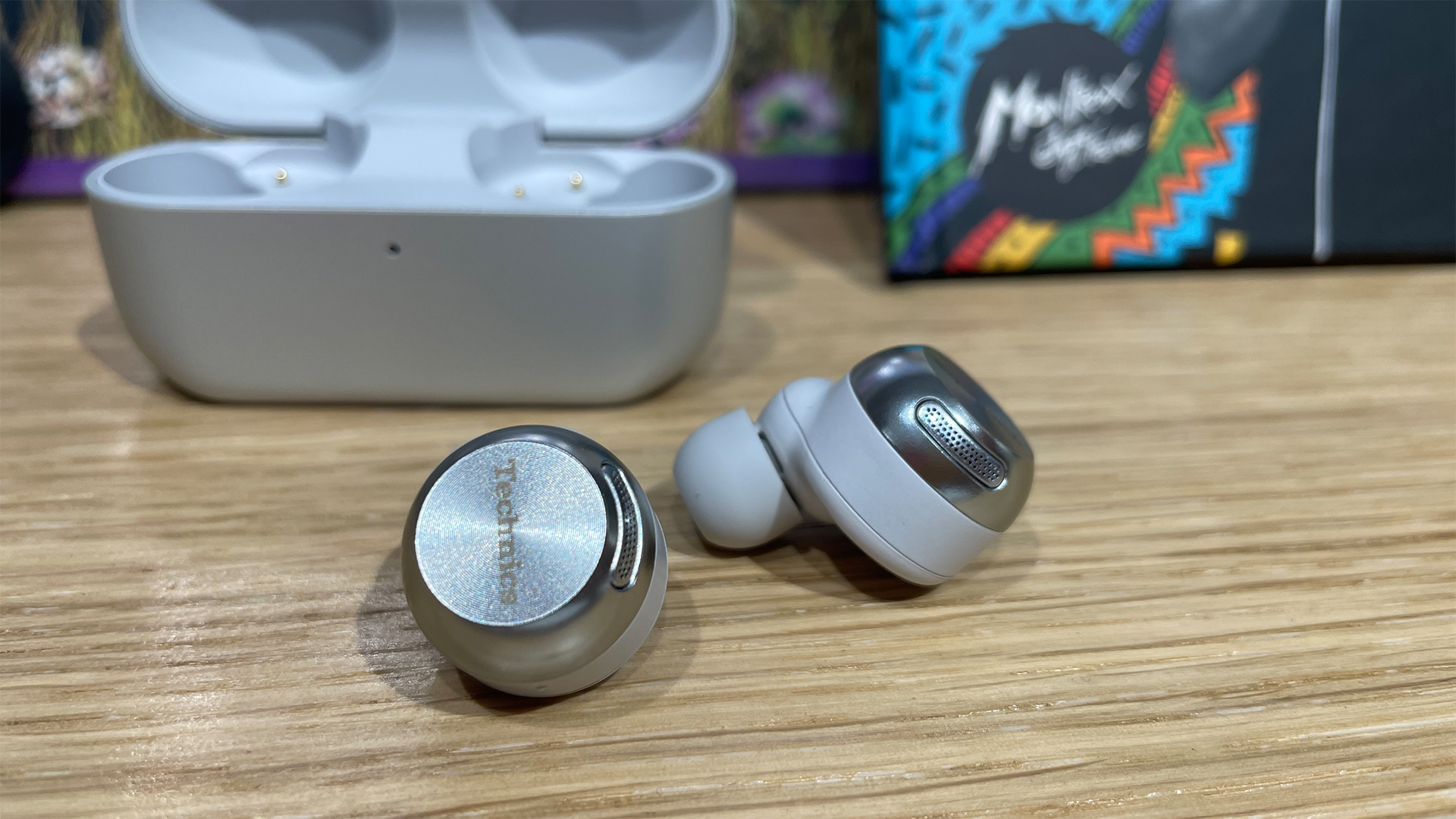
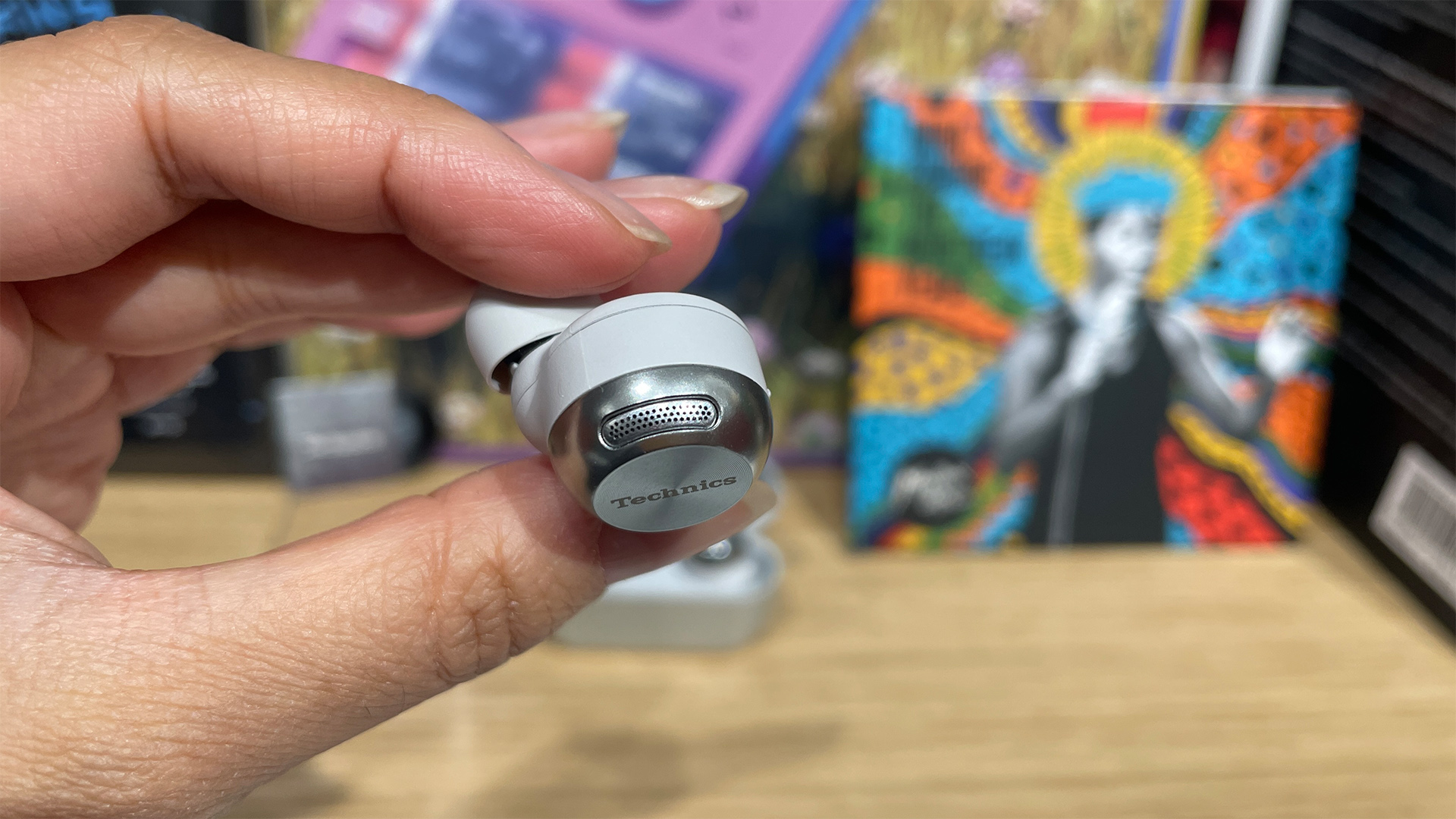
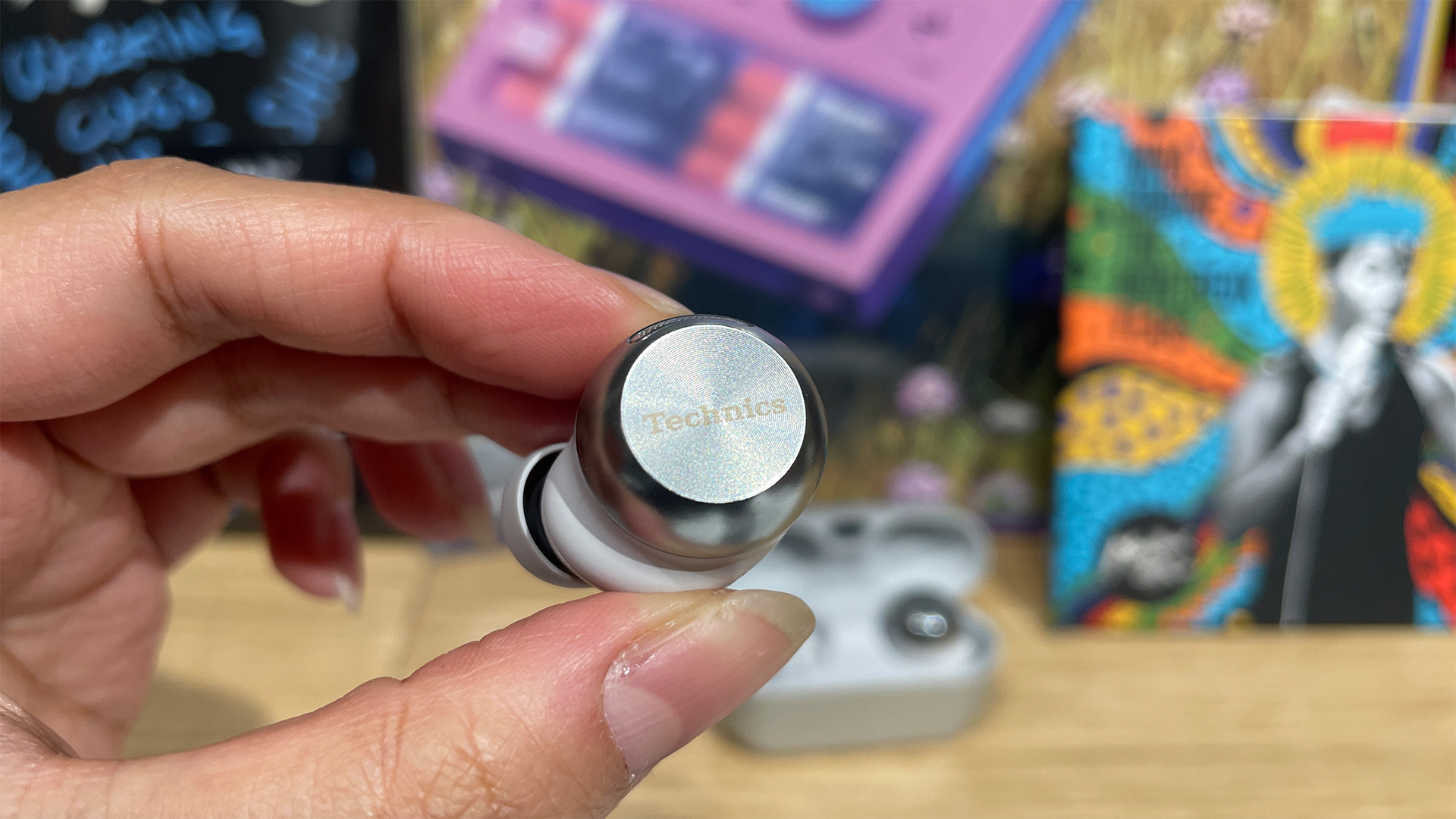
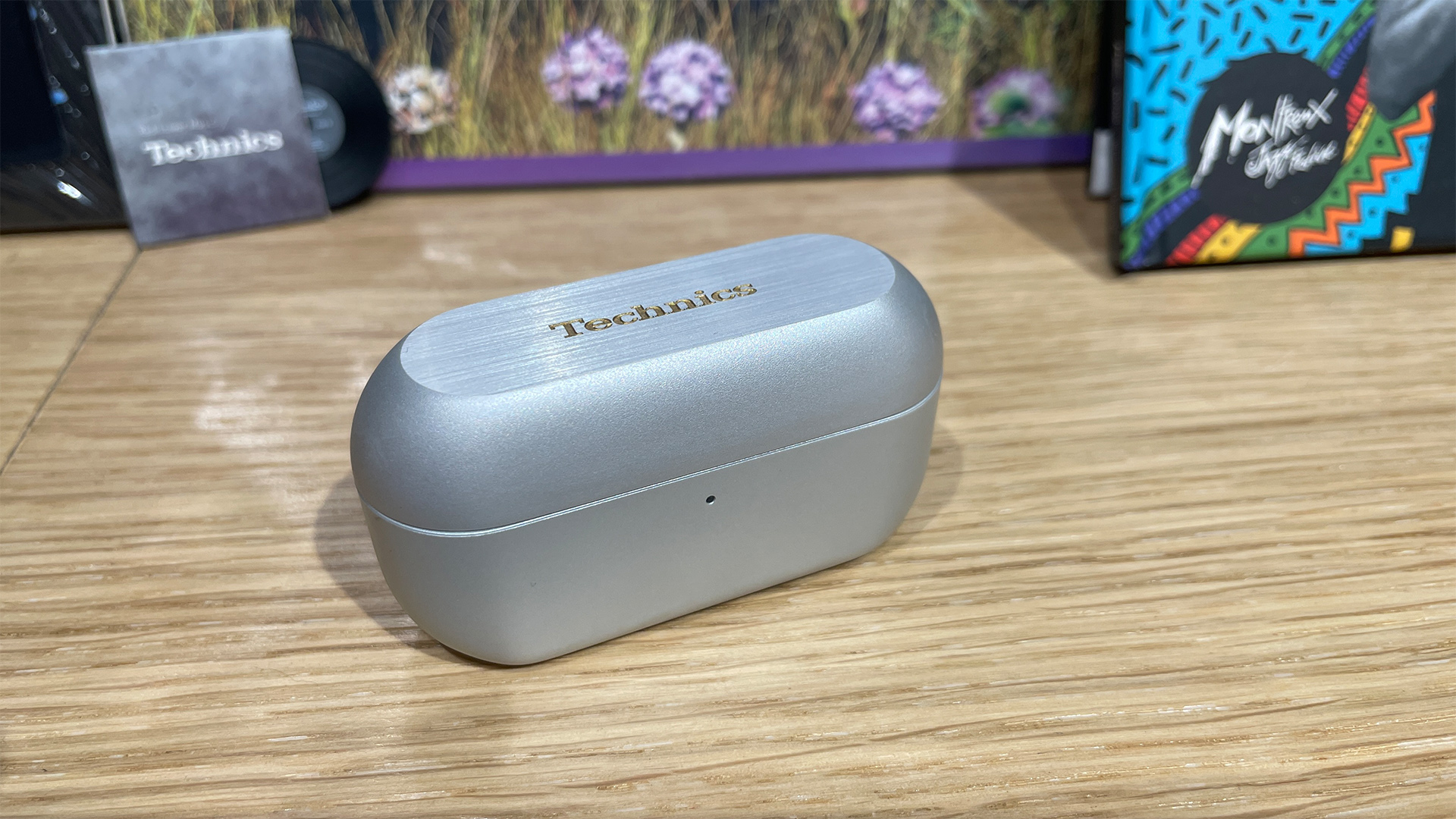
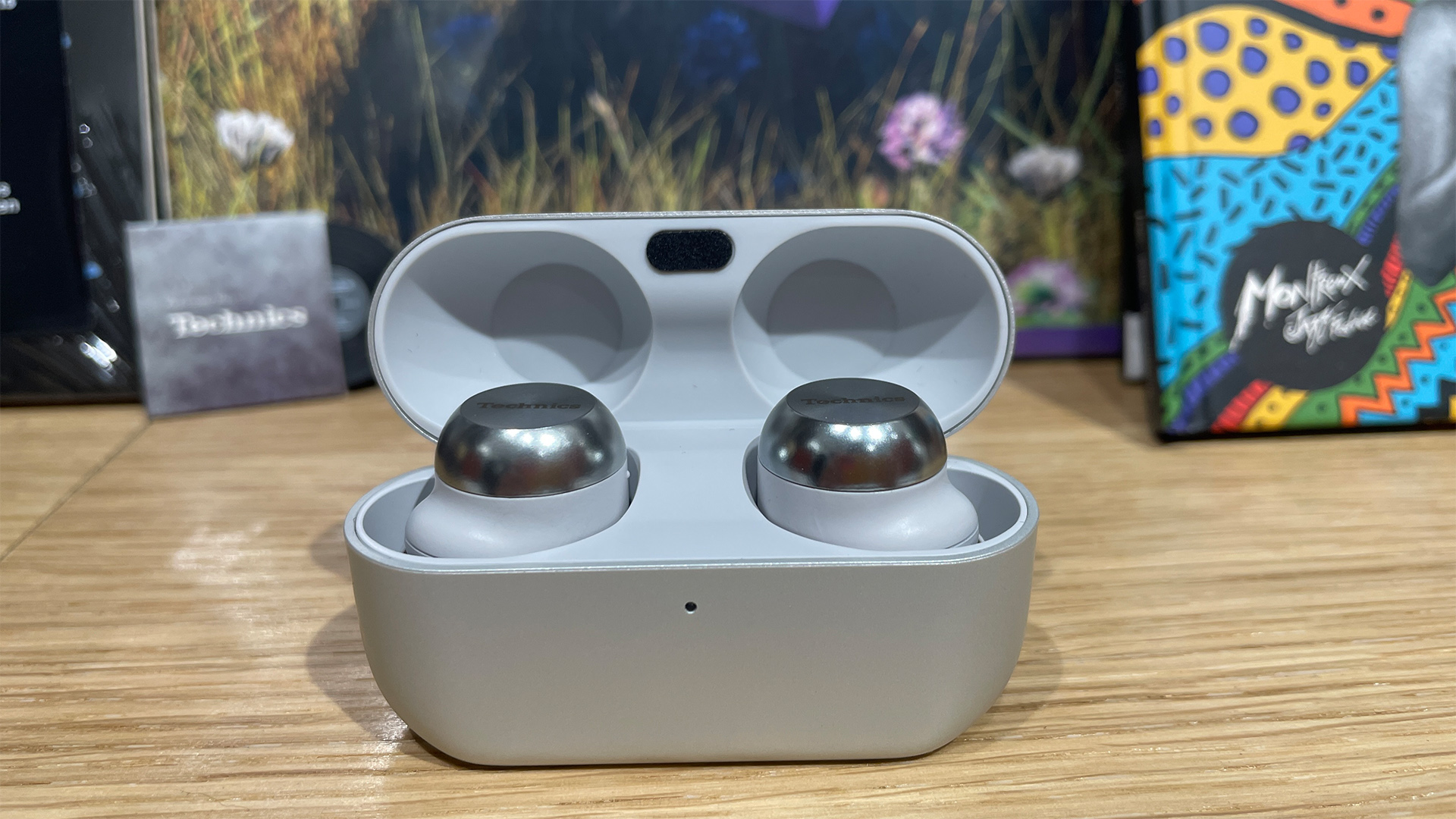
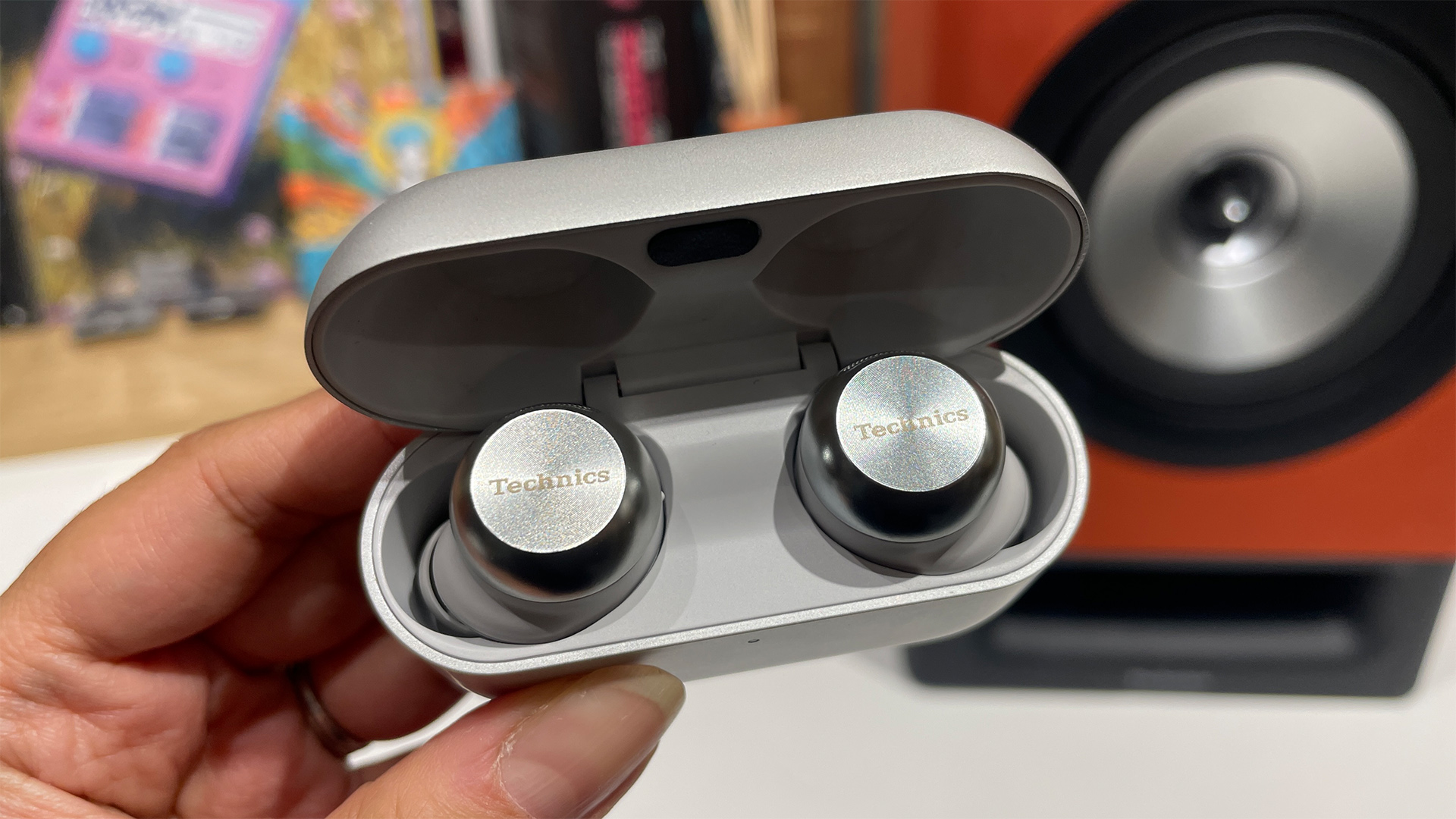
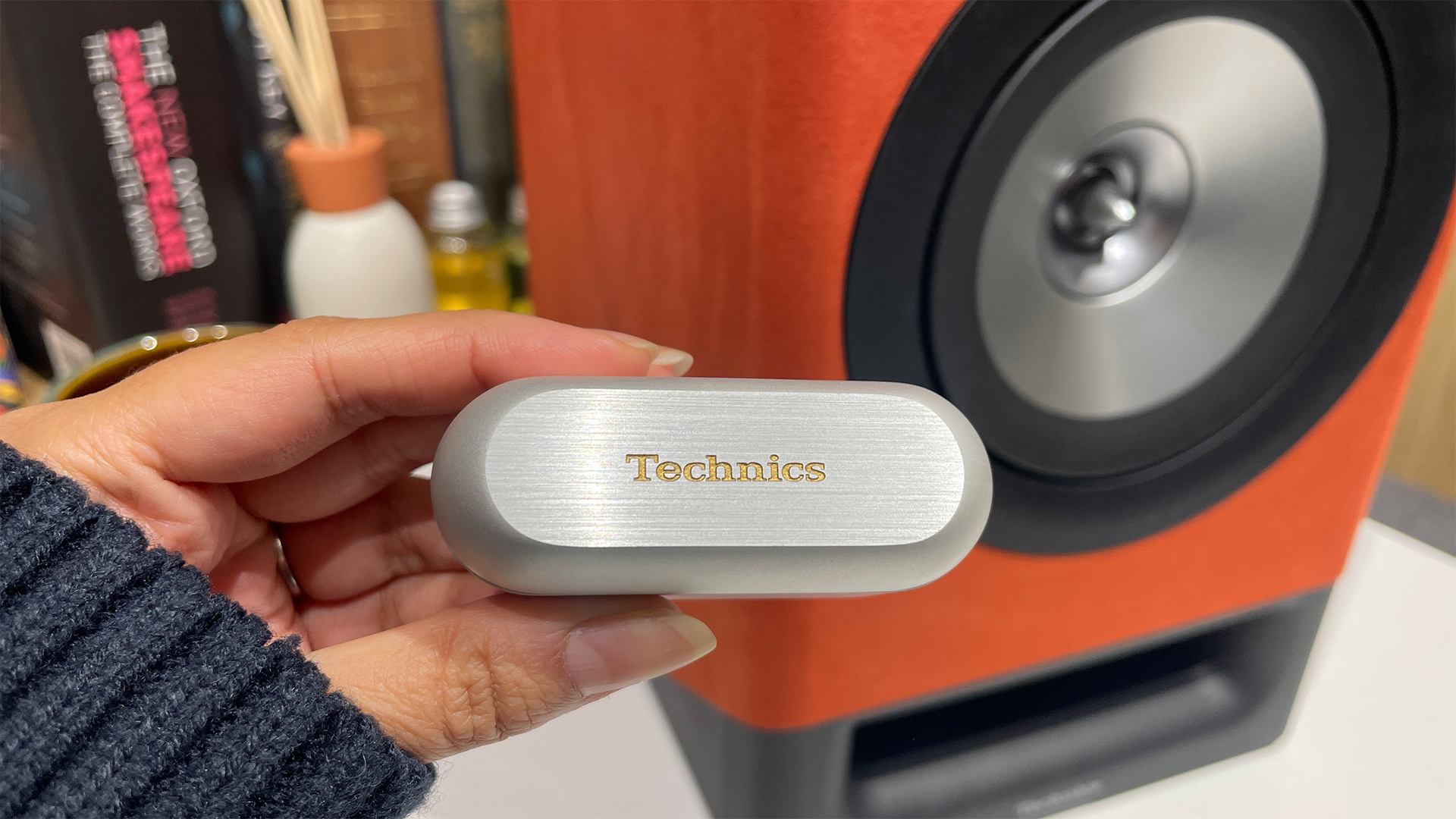
Specifications
Reasons to buy
Reasons to avoid
Not only are the EAH-AZ100 the finest Technics wireless earbuds we’ve ever tested, but they’re also the best option if you care about powerful ANC as well as mic and audio quality, based on our testing.
Launched at the start of 2025, the earbuds were immediately a hit with our reviewers, offering an expressive, spacious and generally engaging sound.
But it’s the ANC that really stood out. While it’s not quite as powerful as what you get on Bose, the AZ100 still blocks out sounds, including low-end engine noise, better than any other set on this list.
Add to this their custom ‘Voice Focus AI’ noise reduction tech and solid fit, which let them deliver clear, albeit occasionally mechanical-sounding, voice quality during calls, and they easily earn a place on this list.
As we said in our Technics EAH-AZ100 review:
“The AZ100 is a well-thought-out design, with a comfortable fit, useful features and scope for customisation at nearly every step. But it’s the elevated performance that combines the Technics’ strengths of clarity, detail and spaciousness with the punch, presence and dynamic impact we were hoping for that clinches the deal.”
Read our full Technics EAH-AZ100 review
Also consider
- Bose QuietComfort Ultra Earbuds: If you want a fantastic sounding pair of ANC wireless earbuds with mic quality just shy of the main recommendations in this list the Bose QuietComfort Ultra Earbuds are the ones to get.
- Apple AirPods Max: If you’re an Apple fan and don’t mind spending a lot of money then the AirPods Max are a fantastic sounding set of over-ears from the iPhone maker that also delivers excellent call quality.
- Sony WF-1000XM4: They may not be the latest model, and not offer quite as good mic quality, but if you want to save some cash Sony's previous generation earbuds are worth considering.
How to choose the best headphones with a mic for you
As a baseline, given our focus on audio, all the headphones on this list need to deliver solid musical performance, though for this specific guide, we’ve weighted mic quality more heavily than we normally would.
That’s why you’ll see the entries are different to our best headphones, best wireless earbuds and various other buyer's guides where mic quality is less of a core focus. With that in mind, here’s what we look for when testing headphones and earbuds with a mic.
Call quality is the core area we expect headphones with a mic to deliver on. If the mics can’t deliver crystal clear call quality then they’re not going to appear on this list. But that’s just the start of our mic checks. On top of voice delivery, for wireless sets we also factor in connection stability. No matter how good a mic is, the headphones won’t be able to deliver good call quality if they’re prone to signal dropouts.
As a hi-fi focused brand, while we factor in mic quality more than normal in this list, audio quality is another key metric any headphone needs to deliver on before we can recommend it. Whenever we check headphones we have our testers listen to a variety of different tracks from various genres using a range of sources to make sure they deliver good audio.
If the headphones support the technology, reliable ANC (active noise cancellation) is another key area we expect most modern headphones with a mic to deliver on. In fact, every model in this list bar the wired Shure in-ears feature it (and appears somewhere on our best noise-cancelling headphones and best noise-cancelling earbuds guides too). ANC is a key area that can help headphones with a mic block out background noise.
Many of the sets on this list are wireless, which is why we also want them to deliver reliable battery life. If you’re looking for headphones with a mic specifically, you’re likely on calls regularly. So having a set that’ll run dry after a few hours of use isn’t practical.
Comfort is the final big factor we check for when choosing the best wireless headphones and earbuds with a mic. Like any pair of headphones or item you wear, comfort is a key factor. With that in mind, we expect any headphones or earbuds with a mic we test to offer a comfortable fit, and reliable seal even when worn for prolonged periods.
How we tested these headphones with a mic
Multiple testers making direct comparisons: We test headphones with a mic with the same methodology we do with any product. Specifically, multiple reviewers test the products independently and then compare notes. This ensures it is never one tester's opinion.
When making performance comparisons with competing products we think buyers will also be considering, we test the two directly against each other to ensure our findings are based on real-world use, not our memory.
Call quality: When testing headphones for mic quality we run a variety of call quality tests. These include taking calls in indoor and outdoor conditions. Indoors we use them with general office background noise and light conversations in the background. Outdoors we run them in windy conditions, an area most mics struggle with, and busy train stations. In each instance, we get a team member in a controlled quiet environment to report back on the call/voice quality.
Audio: Testing audio quality, we play a variety of test tracks in our dedicated listening rooms and out in the world, with the headphones connected to our reference system, and any other sources we think are appropriate to the product’s price. The tracks we use are designed to gauge key factors including their detail, dynamism, rhythmic precision and more.
Battery life: Where applicable we always check how much battery life headphones with a mic offer. To do this we check how many hours of music playback they offer with ANC on and off. We also check how much battery life is drained when using the mic on video and voice calls.
ANC: When testing headphones with a mic, we check how effective their active noise cancellation is. To do this we use them to listen to music and take calls in environments with various levels of background noise. These range from our office to busy train stations and windy outdoor environments.
Comfort: We check if headphones with a mic can provide a comfortable fit for a variety of head sizes during our testing process. This involves multiple members of the team wearing and using them during the review process. During this, we check everything from the clamping force and the number of band adjustment options on over-ears. For in-ears, we check if they have enough tip options to provide a comfortable fit, with a solid seal for most common ear sizes.
FAQ
Can you use headphones with a mic for gaming?
Headphones with a mic can be used for gaming, if they have the right connectivity to pair with the console or PC you're playing on. Most regular wireless headphones feature Bluetooth connectivity, which works with most PCs and the PS5. Cabled sets will require a 3.5mm to work. Be warned, Bluetooth isn’t the best option for call quality. This is why most dedicated gaming headsets, which are different to headphones, are either cabled or come with 2.4GHz wireless dongles, which connect directly to the console via USB. This provides a much better connection that is less prone to dropouts. On top of this, gaming headsets also tend to have dedicated boom mics, which can offer better call quality, compared to headphone mics, based on our testing.
Do all headphones have a mic?
Mics are an increasingly common feature in headphones and earbuds, especially the wireless variety. But there are still a number of headphones that don’t come with a mic. You should always check the spec sheet to make sure they have a mic, if that’s a deciding factor. On top of that, be aware many headphones mics are an afterthought, as most brands prioritise other features like audio quality, battery life and active noise cancellation for their consumer headphones.
Are over-ear or in-ear headphones with a mic better?
Based on our testing it depends on the specific headphones and earbuds you’re comparing. When testing headphones we find there are massive differences in call quality and mic performance across every form factor. It’s best to do your research on the specific set you’re interested in rather than assume one design is better holistically when it comes to mic quality.
What’s the difference between headphones with a mic and a headset?
What Hi-Fi? is a consumer brand, so the options in this list are all consumer headphones with microphones, rather than dedicated headsets designed for either work or gaming. The headphones in this list are primarily designed for listening to music, rather than taking work calls or chatting on Discord. Headsets are the reverse, with business-to-business models focussing purely on helping people take and make voice or video calls. Gaming headsets equally are more focussed on letting players communicate while playing online.
The latest hi-fi, home cinema and tech news, reviews, buying advice and deals, direct to your inbox.
Joe has been writing about tech for 20 years, first on staff at T3 magazine, then in a freelance capacity for Stuff, The Sunday Times Travel Magazine (now defunct), Men's Health, GQ, The Mirror, Trusted Reviews, TechRadar and many more. His specialities include all things mobile, headphones and speakers that he can't justifying spending money on.
- Alastair StevensonEditor in Chief

